SAT Test Prep
CHAPTER 3
BUILDING AN IMPRESSIVE VOCABULARY
1. The College Hill Method for SAT Word Power
2. The 2,000 Key SAT Words and 200 Key SAT Roots: Vocabulary Units 1–7

1 THE COLLEGE HILL METHOD FOR SAT WORD POWER
A strong vocabulary is essential to achieving a top SAT critical reading score. But building a solid vocabulary doesn”t mean just memorizing thousands of flashcards. In fact, the way most students use flashcards is not only dull, but utterly ineffective. Believe it or not, you”ve been using a much better system for years. If you”re a normal 16-year-old, you have about a 40,000-word vocabulary. Did you memorize all those words with flashcards? No. You didn”t “study” them at all. You just absorbed them by trying to understand and communicate with the people around you.
When you take words out of the context of real communication, your brain”s “vocabulary machine” doesn”t work very well. So don”t just study flashcards to memorize word meanings in isolation. Instead, follow these rules while using the College Hill flashcard system (which is discussed below) to study the words in the lessons in this chapter.
Surround Yourself with Good Language
When you were a baby, you were surrounded by people with much stronger vocabularies than yours, so your vocabulary grew very quickly. As you got older, however, your vocabulary grew to match that of the people you hung out with, so its growth slowed. How do you rev it up again? Talk to smart adults. Hang around friends with good vocabularies. Read collegelevel books. Watch documentaries on television rather than mindless game shows, soap operas, and reality shows. Listen to National Public Radio. Read The New York Times Op-Ed page and Sunday Magazine. Read articles and stories from Harper”s, Atlantic Monthly, New Yorker, The Nation, and Scientific American.
Use Your New Vocabulary with Friends and Family
To build your vocabulary, you have to try out your new words. If you feel self-conscious about trying out new words (and most teens do), find a close friend or relative to practice vocabulary with—maybe a friend who”s also prepping for the SAT. On the next couple of pages we”ll give you lots of good strategies for building vocabulary with a friend.
Analyze Words as You Read and Speak
As you run across new words, think about their roots, their synonyms, and their antonyms. The 49 lessons in this chapter include 200 of the key roots, prefixes, and suffixes, as well as lists of synonyms and antonyms for each word. Reinforce your new words by breaking them into their roots, prefixes, and suffixes and connecting them to other words that share them. For instance, if you want to learn the word magnanimity, you should notice that it has three parts: magna (great) + anima (spirit or life) + -ity (suffix indicating a quality). It means generosity, and you should see why from its roots.
Use the Patterns of Words in Sentences
When you run across a new word in a sentence, make a guess about its meaning based on how it”s used. Consider this sentence: Even her favorite toy could not placate the screaming child. Even if you have never seen the word placate before, you should be able to tell from the sentence that it is a verb. Even more, you can tell that it”s something a favorite toy might do to a screaming child (even though it wasn”t successful in this case). Since screaming children need to be calmed down, and since toys often can do that, it”s a good bet that placate means something like “calm down.”
Simplify Your Task by Connecting Words in Groups
Memorizing is always easier when you can group the information into chunks. Most words are related to other words with the same basic meaning (synonyms), the opposite meaning (antonyms), or the same root (cognates). The lessons in this chapter help you to group words in many ways: into theme groups (such as “words about talking”), synonym groups, antonym groups, and cognate groups.
Connect New Words to Your Own Experience or Knowledge
To learn a new word, you must connect it to something you understand. Word meanings aren”t isolated facts to memorize. Think about how to use your new words. For instance, when learning the word enervate (to weaken or decrease in strength or vitality), think about what enervates you (a 4-hour standardized test, perhaps?) or about examples of enervation in books you”ve read (such as the enervation of Moby Dick as Captain Ahab hunts him down). Visualize them and say them out loud: “The SAT can be an enervating experience,” and “Moby Dick was enervated by the incessant chase and his many harpoon wounds.”
Consider Alternative Strategies Such as the ALIVE Visual Mnemonic System
Some words are hard to memorize because they have obscure meanings or are hard to connect to other words. For such words, College Hill Coaching”s ALIVE visual mnemonic system is a great tool. Here”s how it works:
1. Break down the sounds of the word, and turn those sounds into a picture. Let”s say that you”re trying to learn the word polemic. First, break down its syllables. It sounds like pole and lemon, so imagine a lemon on the end of a pole. (You might break it down differently, for instance, aspole and Mick. That”s fine, as long as you turn it into a picture!)
2. Imagine a picture for the meaning of the word. Polemic means “a strong verbal or written attack,” so you might visualize someone arguing loudly with a politician at a debate. Try to picture someone you actually know, if possible, someone with strong opinions.
3. Put the two pictures together into one. See the debater hitting the politician with the lemon on the end of the pole. The crazier the picture, the better!
4. Make your image come ALIVE. As you visualize your picture, make it come ALIVE—active, linking, illogical, vivid, and exaggerated. Here”s how:
• Give the picture action by making it move like a wacky animated cartoon.
• Make sure the picture links two things: the sound of the word and the meaning of the word.
• Make the picture bizarre and illogical so that it”s more memorable.
• Make it so vivid that you see it in 3-D, in color, and in rich detail.
• Work on exaggerating the picture so that the meaning of the word “pops out.”
Keep a Vocabulary Notebook
Keep a small notebook handy when you”re reading. When you run across a new or interesting word, jot it down so that you can look it up later and make a flashcard for it using the system described below. Have a good collegiate dictionary handy, too—one with a pronunciation guide and etymology for each word.
Study with the College Hill Coaching Flashcard System—10 Minutes a Day
Flashcards are enormously helpful for building vocabulary, but only if you use them the right way. Get in the habit of making and studying 30 to 40 flashcards per week of SAT words from this chapter, your practice tests, or your reading. But don”t just make plain old flashcards. College Hill flashcards are far more effective. Each one looks like the figures at the top of this page.
When you”ve made a card for any word from the lessons in this chapter, check it off the list. Keep your cards handy in a plastic recipe box, and study them daily for at least 10 minutes. Don”t just study these cards to memorize definitions by rote. Instead, shuffle through the following seven study methods on a regular basis.
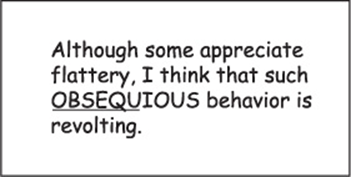
Front: Write a meaningful sentence using the word. Write the word in CAPITALS and underline any roots.
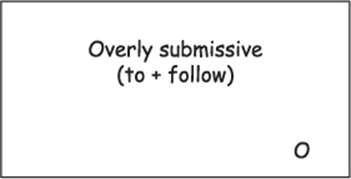
Back: Write the definition of the word, then, in parentheses, the definition of any roots or affixes. Beneath, write the first letter of the word.
• Study Method 1. Your friend reads you the word, and then you create a new sentence using that word. The sentence must show that you understand the meaning of the word. For instance, “The boy was obsequious” doesn”t really show that you know what obsequious means.
• Study Method 2. Your friend reads you the word, and then you give its roots and, for each root, as many words as you can that share that root.
• Study Method 3. Your friend reads the definition from the back of the card and gives you the first letter of the word, and then you give the word.
• Study Method 4. Your friend reads the word, and then you describe three different situations in which the word would be appropriate.
• Study Method 5. Your friend reads the word, and then you teach your friend any clever ALIVE mnemonics you have created for the word.
• Study Method 6. Your friend reads the sentence, and then you give the definition of the word.
• Study Method 7. Post a bunch of flashcards around your room where you”ll see them every day. Think of appropriate places to post them, such as narcissist on the mirror, lethargic on the bed, and so on.
Check Your Understanding with the Review Exercises
At the end of each vocabulary unit in this chapter is a set of exercises to check your understanding of the words you”ve studied. Do them faithfully at the end of each seven-lesson unit. They provide great reinforcement and help you to see which words you may need to go back and review.
Vocabulary Unit 1
Vocabulary Lesson 1: Get to the Point!

![]() concise (adj) brief and to the point (con- altogether + cis cut)
concise (adj) brief and to the point (con- altogether + cis cut)
Ricky, try to be a bit more concise in this paper; the assignment was for a three-page paper; yours was 106.
Synonyms: succinct, terse Antonyms: prolix, discursive, protracted, circumlocutory, verbose
![]() laconic (adj) disposed to using few words (from Latin term for Spartans, who spoke little)
laconic (adj) disposed to using few words (from Latin term for Spartans, who spoke little)
I”ve known Lucy for ten years, but she”s so laconic that I hardly know anything about her past.
Synonyms: taciturn, reticent Antonyms: garrulous, loquacious
![]() succinct (adj) spoken or written in a clear and precise manner
succinct (adj) spoken or written in a clear and precise manner
Because commercial time during the Super Bowl runs over $3 million per minute, it”s good to be succinct.
Synonyms: terse, concise Antonyms: prolix, discursive, protracted, circumlocutory, verbose
![]() brusque (adj) rudely abrupt
brusque (adj) rudely abrupt
My girlfriend tends to be brusque when she”s mad; she just tells me to “talk to the hand.”
Synonyms: curt, abrupt, petulant
![]() abridge (v) to shorten a written text
abridge (v) to shorten a written text
The dictionary was 1,400 pages long before it was abridged by the publishers to 850 pages.
Synonym: abbreviate Antonyms: augment, amplify, protract
![]() brevity (n) quality of succinct expression (brev- brief + -ity quality of)
brevity (n) quality of succinct expression (brev- brief + -ity quality of)
Speeches at the Academy Awards are not known for their brevity; they often go on long past their allotted time.
Synonyms: conciseness, pithiness, succinctness, laconism
![]() conspire (v) to plan together secretly to commit an illegal act (con- together + -spire breathe)
conspire (v) to plan together secretly to commit an illegal act (con- together + -spire breathe)
Synonyms: collude, collaborate
![]() concur (v) to agree (con- together + -cur run)
concur (v) to agree (con- together + -cur run)
Synonyms: accord, harmonize, cohere
![]() concord (n) a state of harmony (con- together + -cord heart)
concord (n) a state of harmony (con- together + -cord heart)
Synonyms: unanimity, consensus
![]() congenital (adj) existing at birth (con- together + gen born)
congenital (adj) existing at birth (con- together + gen born)
Synonyms: innate, inborn
![]() schism (n) a division into political or religious factions (cis cut)
schism (n) a division into political or religious factions (cis cut)
Synonyms: faction, rift, divergence
![]() incisive (adj) having or indicating keen insight (in- in + cis cut)
incisive (adj) having or indicating keen insight (in- in + cis cut)
Synonyms: acute, keen, astute, canny, perspicacious, judicious, shrewd
Vocabulary Lesson 2: Think Before You Judge

![]() judicious (adj) showing sound judgment; prudent (jud- judge + -ious full of)
judicious (adj) showing sound judgment; prudent (jud- judge + -ious full of)
After much thought, I decided that the most judicious thing to do was to avoid the swamp full of alligators.
Synonyms: prudent, sensible, circumspect, sagacious Antonyms: improvident, rash
![]() adjudicate (v) to hear and judge a case (jud- judge + -ate to do)
adjudicate (v) to hear and judge a case (jud- judge + -ate to do)
Sometimes when my two children fight, I feel like I”m adjudicating a capital crime rather than settling a quarrel.
![]() astute (adj) shrewd; keen
astute (adj) shrewd; keen
The young Sherlock Holmes was quite the astute investigator; he always unraveled even the toughest mysteries.
Synonyms: sagacious, shrewd, incisive, canny, perspicacious Antonyms: vacuous, vapid, obtuse
![]() scrutinize (v) to examine carefully (scruta examine + -ize to do)
scrutinize (v) to examine carefully (scruta examine + -ize to do)
Before buying an apple, scrutinize it to be sure that it has no bruises.
Synonyms: analyze, peruse
![]() pragmatic (adj) concerned with practical outcomes
pragmatic (adj) concerned with practical outcomes
The architects chose a solarium design that was less aesthetic than pragmatic: it was not beautiful, but it kept heating and lighting costs down.
![]() perjure (v) to lie under oath (per- through + jur oath)
perjure (v) to lie under oath (per- through + jur oath)
The mobster told blatant lies while on the stand, perjuring himself to keep his partners out of jail.
Synonym: prevaricate
![]() prudent (adj) using good judgment (prudentia knowledge)
prudent (adj) using good judgment (prudentia knowledge)
It would not be prudent to sneak out of your room again tonight; your parents will ground you if they catch you!
Synonyms: judicious, sensible Antonyms: improvident, rash
![]() jurisprudence (n) the science or philosophy of law (jur- law + prudentia knowledge)
jurisprudence (n) the science or philosophy of law (jur- law + prudentia knowledge)
![]() jurisdiction (n) the sphere of authority or control (jur- law + dictio declaration)
jurisdiction (n) the sphere of authority or control (jur- law + dictio declaration)
Synonym: domain
![]() adjure (v) to command solemnly, as under oath (ad- to + jur oath)
adjure (v) to command solemnly, as under oath (ad- to + jur oath)
Synonyms: enjoin, entreat, beseech
![]() adjudge (v) to determine based upon law (ad- to + jud judge)
adjudge (v) to determine based upon law (ad- to + jud judge)
Synonym: adjudicate
![]() acumen (n) keenness of judgment (acus sharp)
acumen (n) keenness of judgment (acus sharp)
Synonyms: discernment, perspicacity, shrewdness
![]() inscrutable (adj) beyond comprehension or examination (in- not + scruta examine)
inscrutable (adj) beyond comprehension or examination (in- not + scruta examine)
Synonyms: enigmatic, recondite, abstruse
![]() allegation (n) a formal accusation (ad- to + legare dispute)
allegation (n) a formal accusation (ad- to + legare dispute)
Synonyms: contention, assertion, charge
Vocabulary Lesson 3: Let”s Talk About It

![]() eloquent (adj) well spoken (e- out + loqu talk)
eloquent (adj) well spoken (e- out + loqu talk)
She is an eloquent spokeswoman for animal rights; she conveys her ideas with great ease and fluidity.
Synonyms: articulate, fluent Antonym: inarticulate
![]() loquacious (adj) very talkative (loqu- talk + -ious full of)
loquacious (adj) very talkative (loqu- talk + -ious full of)
That guy never stops talking; now I understand why they call him “Loquacious Larry”!
Synonyms: garrulous, voluble Antonyms: laconic, taciturn, reticent
![]() circumlocution (n) evasive speech; talking around the subject (circum- around + loqu talk)
circumlocution (n) evasive speech; talking around the subject (circum- around + loqu talk)
The politician had perfected the art of circumlocution; he knew exactly how to avoid answering direct questions.
Synonym: evasion
![]() colloquial (adj) conversational; using everyday language (co- together + loqu talk)
colloquial (adj) conversational; using everyday language (co- together + loqu talk)
I like Professor Thompson because she is so colloquial; yesterday she said my thesis idea was “really cool.”
![]() grandiloquent (adj) speaking in a pompous manner (grand- great + loqu talk + -ent adjective)
grandiloquent (adj) speaking in a pompous manner (grand- great + loqu talk + -ent adjective)
His speech was pompous and grandiloquent; it seemed he was just trying to use as many big words as possible.
Synonyms: pontifical, portentous
![]() elocution (n) expressive delivery of public speech (e- out + loqu talk + -tion noun)
elocution (n) expressive delivery of public speech (e- out + loqu talk + -tion noun)
James is adept at elocution; his expressions and mannerisms add a new level of meaning to his words.
![]() garrulous (adj) talkative
garrulous (adj) talkative
Karl is always ready to talk about any subject, no matter how trivial, but at parties he is even more garrulous.
Synonyms: loquacious, voluble
![]() pontificate (v) to speak pompously (pontifex high priest)
pontificate (v) to speak pompously (pontifex high priest)
Synonyms: declaim, sermonize, dogmatize
![]() verbose (adj) wordy (verb- word + -ose full of)
verbose (adj) wordy (verb- word + -ose full of)
Synonyms: prolix, discursive, digressive
![]() verbatim (adv) word for word (verb- word)
verbatim (adv) word for word (verb- word)
I followed the recipe verbatim.
![]() ineffable (adj) unable to be expressed in words (in- not + effari utter)
ineffable (adj) unable to be expressed in words (in- not + effari utter)
Try as he might to express his love in a poem, his feelings seemed ineffable.
![]() tangential (adj) only superficially relevant; off-topic
tangential (adj) only superficially relevant; off-topic
Synonyms: irrelevant, incidental, immaterial
![]() tout (v) to promote or praise energetically
tout (v) to promote or praise energetically
Synonyms: acclaim, herald, laud
![]() anecdote (n) a short and often humorous story
anecdote (n) a short and often humorous story
Don”t confuse with antidote (n), a remedy.
![]() discursive (adj) straying from the topic (dis- away + curs course)
discursive (adj) straying from the topic (dis- away + curs course)
Synonyms: digressive, desultory
Vocabulary Lesson 4: “Good, Thanks”

![]() benefactor (n) one who supports or helps another (bene- good + fact to make)
benefactor (n) one who supports or helps another (bene- good + fact to make)
Mr. King is the benefactor who generously donated the money for the new children”s wing in the hospital.
Synonyms: philanthropist, patron Antonyms: malefactor, nemesis, antagonist, adversary
![]() benign (adj) harmless (bene good)
benign (adj) harmless (bene good)
She was relieved to find out that her tumor was benign.
Synonym: innocuous Antonyms: malignant, virulent
![]() benevolent (adj) kind; considerate (bene- good + vole wish)
benevolent (adj) kind; considerate (bene- good + vole wish)
The benevolent Cub Scout did his good deed for the day when he helped a motorist change a tire.
Synonyms: gracious, altruistic, magnanimous Antonyms: malevolent, malicious, inimical, pernicious
![]() benediction (n) an expression of good wishes (bene- good + dictus declaration)
benediction (n) an expression of good wishes (bene- good + dictus declaration)
At the reception, the father of the bride offered a benediction, wishing the couple never-ending love and happiness.
Synonyms: blessing, sanction Antonyms: curse, malediction, execration
![]() euphemism (n) the substitution of an inoffensive term for an offensive one (eu- good + pheme speech)
euphemism (n) the substitution of an inoffensive term for an offensive one (eu- good + pheme speech)
A good journalist avoids the euphemisms of war, like “ordnance” for bombs and “collateral damage” for casualties.
![]() eulogy (n) a praising tribute (eu- good + logia discourse) (Although associated with funerals, “eulogy” has a positive tone.)
eulogy (n) a praising tribute (eu- good + logia discourse) (Although associated with funerals, “eulogy” has a positive tone.)
His touching eulogy for his fallen friend left all the mourners weeping.
Synonyms: encomium, laudation, extolment, paean Antonyms: denunciation, execration, censure
![]() ingratiate (v) to put oneself in good favor with another (in- in + grat to please)
ingratiate (v) to put oneself in good favor with another (in- in + grat to please)
When starting at a new school, Mary sought to ingratiate herself with her classmates by being excessively nice.
Synonyms: flatter, wheedle, toady, cajole
![]() beneficiary (n) one who receives benefits (bene- good + fic to make)
beneficiary (n) one who receives benefits (bene- good + fic to make)
Synonyms: heir, recipient, legatee
![]() gratuity (n) a small payment in gratitude (grat- thank)
gratuity (n) a small payment in gratitude (grat- thank)
Don”t confuse with gratuitous (adj) unnecessary
![]() gratis (adj) free of charge (grat- thank)
gratis (adj) free of charge (grat- thank)
He let me borrow his car gratis.
![]() gratify (v) to please (grat- please)
gratify (v) to please (grat- please)
Synonyms: appease, mollify, indulge
![]() euphoria (n) a feeling of extreme happiness (eu- good)
euphoria (n) a feeling of extreme happiness (eu- good)
Synonyms: elation, rapture, jubilation, ecstasy
![]() euphonious (n) sweet sounding (eu- good + phon sound)
euphonious (n) sweet sounding (eu- good + phon sound)
Synonyms: mellifluous, dulcet, lyrical
Vocabulary Lesson 5: Changes

![]() immutable (adj) unchangeable (im- not + mut change)
immutable (adj) unchangeable (im- not + mut change)
Emily is an immutable vegetarian. No matter how hard we try, we cannot get her to eat meat.
Synonyms: permanent, inveterate Antonyms: mutable, protean, vacillating, mercurial
![]() metamorphosis (n) a transformation (meta- change + morph form)
metamorphosis (n) a transformation (meta- change + morph form)
The old house underwent a metamorphosis from a rundown shack into a beautiful cottage.
Synonyms: transformation, mutation, transmogrification
![]() rupture (v) to break open (rupt- break)
rupture (v) to break open (rupt- break)
When the vat of smelly liquid ruptured, we picked up our feet to avoid getting the stuff on our shoes.
Synonyms: burst, fissure, cleave
![]() transmute (v) to transform (trans- across + mut change)
transmute (v) to transform (trans- across + mut change)
Harry Potter was able to transmute a feather into a frog using a spell he learned in incantations class.
Synonyms: metamorphose, alter, transmogrify
![]() amorphous (adj) lacking shape; changeable in form (a- without + morph shape)
amorphous (adj) lacking shape; changeable in form (a- without + morph shape)
Rather than marching in precise formation, the battalion broke down into an amorphous mass of charging soldiers.
Synonyms: shapeless, nebulous, vague, nondescript Antonym: crystalline
![]() mercurial (adj) erratic; subject to wild changes in character (from the speedy god Mercury)
mercurial (adj) erratic; subject to wild changes in character (from the speedy god Mercury)
Molly is the most mercurial person in the office; we can never tell if she”ll be the evil Molly or the sympathetic Molly.
Synonyms: fickle, capricious, vacillating Antonyms: immutable, stable
![]() protean (adj) capable of assuming different forms (from the form-changing sea god Proteus)
protean (adj) capable of assuming different forms (from the form-changing sea god Proteus)
He has changed his position on issues so many times that he is considered the most protean member of Congress.
Synonyms: polymorphous, labile Antonyms: immutable, stable
![]() mutate (v) to change form (mut- change)
mutate (v) to change form (mut- change)
Synonyms: transform, transmogrify
![]() fickle (adj) likely to change opinion unpredictably
fickle (adj) likely to change opinion unpredictably
Synonyms: capricious, vacillating, mercurial
![]() fluctuate (v) to vary irregularly (flux flow)
fluctuate (v) to vary irregularly (flux flow)
Synonyms: vacillate, waver
![]() vacillate (v) to change one”s mind repeatedly
vacillate (v) to change one”s mind repeatedly
Synonyms: fluctuate, waver
![]() revamp (v) to revise; to renovate (re- again)
revamp (v) to revise; to renovate (re- again)
Synonyms: refurbish, renovate
![]() amend (v) to improve; to remove the faults of
amend (v) to improve; to remove the faults of
Synonyms: rectify, redress, ameliorate, mitigate
Vocabulary Lesson 6: One Boring World

![]() hackneyed (adj) overused; trite
hackneyed (adj) overused; trite
This film was a hackneyed remake with a storyline that has been done a hundred times.
Synonyms: trite, prosaic, banal Antonyms: original, novel
![]() mundane (adj) ordinary; typical (mund- world)
mundane (adj) ordinary; typical (mund- world)
Having worked for years behind a desk, she wanted to leave the mundane world behind for exotic adventures abroad.
Synonyms: routine, workaday, banal Antonyms: singular, extraordinary, sublime
![]() vacuous (adj) lacking substance (vac- empty)
vacuous (adj) lacking substance (vac- empty)
His latest book is widely criticized as vacuous and unintelligent.
Synonyms: inane, asinine, fatuous Antonyms: profound, thoughtful, deep
![]() prosaic (adj) unimaginative; ordinary
prosaic (adj) unimaginative; ordinary
I don”t understand why his oration was selected as the best; it was so prosaic that I nearly fell asleep.
Synonyms: mundane, pedestrian Antonyms: innovative, quixotic, whimsical
![]() insipid (adj) uninteresting; dull; without flavor (in- not + sapere taste)
insipid (adj) uninteresting; dull; without flavor (in- not + sapere taste)
Christine is the life of the party, but Tom is as insipid as they come; hardly anyone wants to talk with him.
Synonyms: bland, nondescript, vapid Antonyms: engaging, enchanting, piquant
![]() banal (adj) ordinary; trivial
banal (adj) ordinary; trivial
That show used to be my favorite, but its story lines became so banal that I could no longer stand it.
Synonyms: hackneyed, trite Antonyms: extraordinary, singular, sublime
![]() pedestrian (adj) commonplace; ordinary
pedestrian (adj) commonplace; ordinary
Synonyms: prosaic, banal, vapid
![]() dormant (adj) inactive; sleeping (dormire sleep)
dormant (adj) inactive; sleeping (dormire sleep)
Synonyms: inert, fallow
![]() unanimous (adj) in full agreement (un- one + anima mind)
unanimous (adj) in full agreement (un- one + anima mind)
Synonyms: concordant, concerted
![]() uniform (adj) unvarying; always the same (un- one + forma form)
uniform (adj) unvarying; always the same (un- one + forma form)
Synonym: homogeneous
![]() equanimity (n) the quality of being even-tempered (equa- same + anima mind)
equanimity (n) the quality of being even-tempered (equa- same + anima mind)
Synonyms: composure, imperturbability, aplomb
![]() magnanimous (adj) noble of heart; generous; forgiving (magna- great + anima mind)
magnanimous (adj) noble of heart; generous; forgiving (magna- great + anima mind)
Synonyms: philanthropic, altruistic, merciful
Vocabulary Lesson 7: The Humours

In medieval Europe, it was widely believed that one”s health and disposition were largely determined by the balance of four bodily liquids called “humours”: blood (sang), phlegm, black bile (melancholer), and yellow bile (choler).
![]() sanguine (adj) cheerfully optimistic (sanguis blood)
sanguine (adj) cheerfully optimistic (sanguis blood)
After acing his final, David was sanguine about his prospects for a good overall course grade.
Synonyms: blithe, buoyant Antonyms: morose, forlorn, melancholy, sullen
![]() phlegmatic (adj) sluggish
phlegmatic (adj) sluggish
His prolonged illness turned Julio from a spry, happy bon vivant into a morose and phlegmatic bore.
Synonyms: languorous, lethargic, somnolent, torpid Antonyms: vigorous, vibrant, hale, spry
![]() melancholy (adj) sad, depressed (melan- black + choler bile)
melancholy (adj) sad, depressed (melan- black + choler bile)
She has been so melancholy ever since she broke up with her boyfriend; sometimes she is even too depressed to talk with her friends.
Synonyms: morose, despondent, disconsolate, sullen Antonyms: blithe, buoyant, sanguine
![]() choleric (adj) easily angered (choler- bile + -ic characterized by)
choleric (adj) easily angered (choler- bile + -ic characterized by)
Gena”s mom is really nice but her dad is choleric; he freaks out about the smallest things.
Synonyms: irascible, fractious, bilious, splenetic
![]() recalcitrant (adj) stubbornly resistant to authority (re- back + calcitrare kick)
recalcitrant (adj) stubbornly resistant to authority (re- back + calcitrare kick)
Christine is a talented volleyball player, but she”s so recalcitrant that our coach often keeps her on the bench.
Synonyms: refractory, intractable Antonyms: compliant, docile, tractable, obsequious, obeisant
![]() lethargic (adj) sluggish; dully apathetic
lethargic (adj) sluggish; dully apathetic
After three weeks of factoring polynomials, my entire class became lethargic; we were bored to death!
Synonyms: languorous, phlegmatic, torpid Antonyms: vigorous, vibrant, hale, spry
![]() splenetic (adj) irritable; easily angered (splen- spleen)
splenetic (adj) irritable; easily angered (splen- spleen)
Synonyms: bilious, choleric
![]() querulous (adj) disposed to complaining
querulous (adj) disposed to complaining
Synonyms: peevish, captious, carping, caviling
![]() dolorous (adj) marked by or expressive of sorrow or pain (dolor- pain)
dolorous (adj) marked by or expressive of sorrow or pain (dolor- pain)
Synonyms: lugubrious, doleful
![]() animosity (n) hostility; ill-will (animosus bold)
animosity (n) hostility; ill-will (animosus bold)
Synonyms: malevolence, antagonism, invidiousness
![]() pusillanimous (adj) cowardly (pusillus- weak + anima spirit)
pusillanimous (adj) cowardly (pusillus- weak + anima spirit)
Synonyms: timorous, craven, dastardly
![]() lassitude (n) feeling of weakness or listlessness
lassitude (n) feeling of weakness or listlessness
Synonyms: lethargy, languor, torpor, stupor
Vocabulary Unit 1 Exercise Set I
Time—8 minutes
For each question, select the best answer among the choices given. Note any vocabulary words to review on the Hit List below.
1. Julia is amazingly ------ for a 5-year-old: She adeptly persuaded her reluctant parents to let her stay up to watch another thirty minutes of television.
(A) concise
(B) astute
(C) verbose
(D) recalcitrant
(E) capricious
2. He recited the President”s speech back to me ------; it was almost as if he had written it himself.
(A) loquaciously
(B) insipidly
(C) verbatim
(D) curtly
(E) diffidently
3. Those not used to Larry”s ------ speaking style found him to be ------ and did not like him at first.
(A) monosyllabic . . incisive
(B) surly . . congenial
(C) laconic . . brusque
(D) circumlocutory . . direct
(E) garrulous . . phlegmatic
4. During his first year at boarding school, Ricardo underwent ------ from a shy and reserved young boy to a garrulous and extroverted teenager.
(A) a schism
(B) an adjudication
(C) a benediction
(D) a soliloquy
(E) a metamorphosis
5. Janice is so ------ that she ------ over even the simplest decision.
(A) shrewd . . perjures
(B) magnanimous . . denigrates
(C) pusillanimous . . admonishes
(D) surreptitious . . purges
(E) fickle . . vacillates
6. Despite having always been ------ at heart, Paula found herself ------ about the near future at work.
(A) pessimistic . . sanguine
(B) lethargic . . placid
(C) morose . . querulous
(D) prudent . . verbose
(E) succinct . . terse
7. Kemal was the ------ of his father”s generosity while at the supermarket because he got to eat an ice cream treat on the way home.
(A) beneficiary
(B) benefactor
(C) benediction
(D) patron
(E) sanction
8. Because we are short on time, ------ would be appreciated; we need to leave in five minutes to catch the last bus of the night.
(A) circumlocution
(B) allegation
(C) pontification
(D) brevity
(E) lassitude
9. The audience found the presentation to be ------ and vacuous; it was unimaginative and lacking substance.
(A) dormant
(B) unanimous
(C) amorphous
(D) dolorous
(E) prosaic
10. The play was a blend of the mirthful and the ------; many scenes were ------, while others made me cry like a baby.
(A) melancholy . . hilarious
(B) reprehensible . . wistful
(C) somber . . bitter
(D) humorous . . jocular
(E) despicable . . whimsical

Vocabulary Unit 1 Exercise Set II
Write the meaning next to each root, and then write as many words as you can that contain the root.
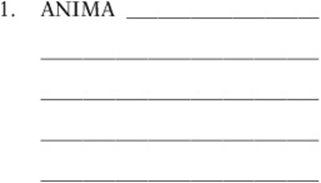
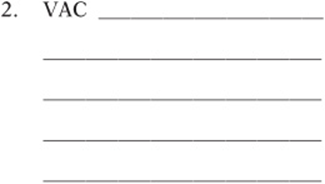
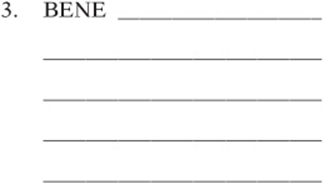
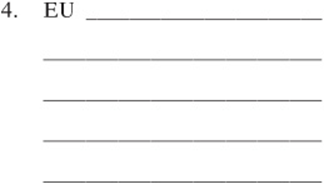
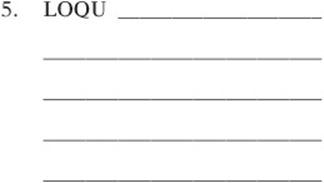
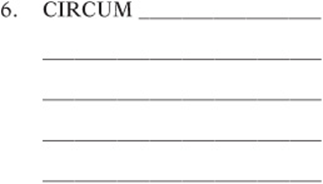
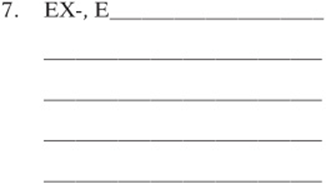
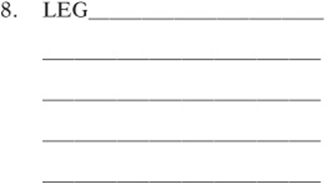
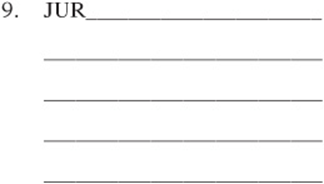
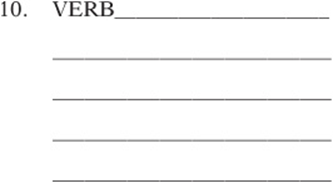
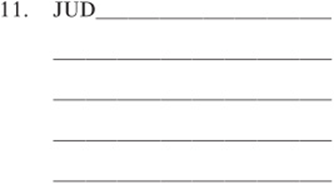
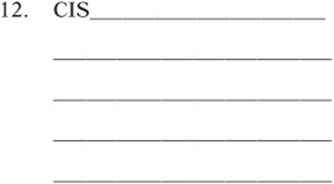
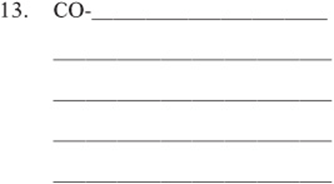
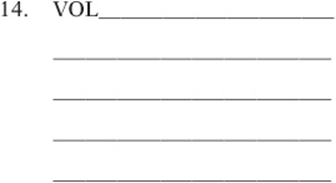
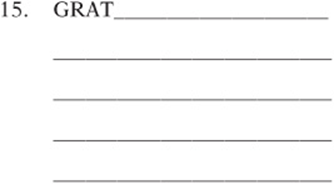
Vocabulary Unit 1 Exercise Set III
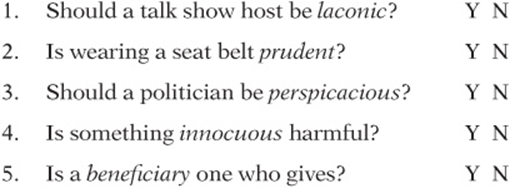
Write the word with the given meaning.
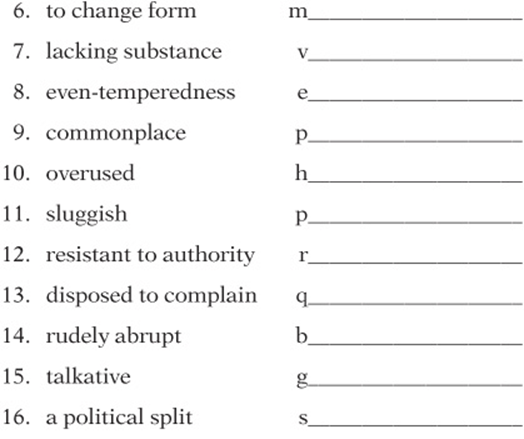
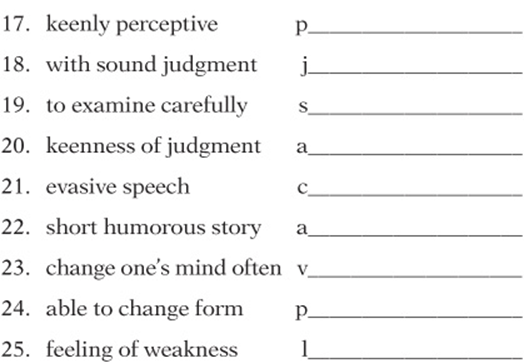
Write the correct form of the italicized word.
26. the state of feeling lethargic
____________________________________________
27. the quality of being pusillanimous
____________________________________________
28. having the quality of a euphemism
____________________________________________
29. the act of adjudicating
____________________________________________
30. the act of perjuring
____________________________________________
Write the word with the given root.
31. beyond comprehension (scrut)
____________________________________________
32. existing at birth (con)
____________________________________________
33. kind-hearted (anim)
____________________________________________
34. to command solemnly (jur)
____________________________________________
35. speaking in a pompous manner (loqu)
____________________________________________
36. a praising tribute (eu)
____________________________________________
37. harmless (ben)
____________________________________________
38. inoffensive term substituted for an offensive one (eu)
____________________________________________
39. to please (grat)
____________________________________________
40. expressive delivery of public speech (loqu)
____________________________________________
41. sphere of legal authority (jur)
____________________________________________
Unit 1 Exercise Set I Answer Key
1. B The colon (:) introduces an explanation. Adeptly means with great skill. A 5-year-old would have to be pretty sharp to persuade reluctant parents.
concise = brief and to the point
astute = shrewd, keen
verbose = wordy
recalcitrant = stubborn
capricious = whimsical
2. C The information after the semicolon (;) describes the word in the blank. If he reads it as if he had written it himself, it implies that he knows it very well, and perhaps can read it word for word.
loquaciously = in a talkative manner
insipidly = in a painfully dull way
verbatim = word for word
curtly = in an abrupt manner, rudely
diffidently = timidly, lacking confidence
3. C They did not like him at first, so the second blank is a negative word. The first blank should describe a speaking style that would cause someone to think that he is described by the second word.
monosyllabic = one syllable; incisive = cogent
surly = rude; congenial = friendly
laconic = terse; brusque = rude, unfriendly
circumlocutory = talkative
garrulous = talkative; phlegmatic = sluggish
4. E Ricardo clearly changed from a shy person to a talkative extrovert. The word that fits the blank should mean change.
schism = rift, large gap
adjudication = judgment
benediction = blessing
soliloquy = speech to one”s self
metamorphosis = major change in form
5. E The second word is a verb that should complement the first word. Only E presents a pair that makes sense. Fickle people do tend to vacillate.
shrewd = clever; perjure = to lie under oath
magnanimous = generous; denigrate = to slander
pusillanimous = cowardly; admonish = to scold
surreptitious = sneaky; purge = to clear away
fickle = erratic; vacillate = to go back and forth
6. A Despite indicates a contrast. So look for two words that are nearly opposite.
pessimistic = negative; sanguine = optimistic
lethargic = sluggish; placid = calm
morose = sullen, gloomy; querulous = complaining
prudent = wise, provident; verbose = wordy
succinct = concise, to the point; terse = concise
7. A The recipient of generosity is a beneficiary.
beneficiary = one who receives benefits
benefactor = one who supports or helps another
benediction = a blessing
patron = a customer, someone who protects
sanction = approval, permission
8. D A person short on time would likely appreciate something that is quick, which makes brevity a good choice.
circumlocution = speaking in circles
allegation = accusation
pontification = speaking in a pompous manner
brevity = briefness
lassitude = fatigue, torpor
9. E The presentation was vacuous, which means lacking substance. This implies that the two clauses in the sentence are parallel, so the missing word must be similar to unimaginative.
dormant = inactive
unanimous = everyone agrees
amorphous = lacking shape
dolorous = causing pain or sorrow
prosaic = dull, unimaginative
10. A Use the parallelism in the sentence. The two adjectives in the first clause are parallel to the two ideas in the second clause. The first word describes something that makes one cry, and the second word describes mirthful scenes. Two simple words to complete the sentence would bedepressing and funny.
melancholy = sadness; hilarious = funny
reprehensible = blameworthy; wistful = sad
somber = gloomy; bitter = unhappy
humorous = funny; jocular = joking
despicable = mean; whimsical = impulsive
Unit 1 Exercise Sets II and III Answer Key
Exercise Set II
1. ANIMA: spirit, life, mind unanimous, magnanimous, animosity, animation, animal, inanimate
2. VAC: empty vacate, evacuate, vacuum, vacuous, vacation, vacant
3. BENE: good benevolent, beneficiary, bonus, bona fide, benediction
4. EU: good euphemism, eulogy, euphony, euphoria, eugenics
5. LOQU: talk loquacious, eloquent, ventriloquist, elocution, circumlocution
6. CIRCUM: around circumference, circumnavigate, circumlocute, circuit, circuitous
7. EX-, E-: out emit, extract, exclaim, exit, egregious, enormous
8. LEG: law allege, legal, legitimate, legislate
9. JUR: oath, law jurisdiction, abjure, adjure, jury, jurisprudence
10. VERB: word verbatim, verbose, verbal, verbalize, proverb
11. JUD: judge adjudicate, judicious, adjudge, judiciary
12. CIS: cut incisive, scissors, concise, schism, decide, suicide
13. CO-: together, with cooperate, connect, correlate, committee, collect, conspire
14. VOLE: wish voluntary, benevolent, malevolent, volition
15. GRAT: please, thank gratify, ingratiate, ingrate, congratulate, gratuity
Exercise Set III
1. N
2. Y
3. Y
4. N
5. N
6. mutate
7. vacuous
8. equanimity
9. pedestrian
10. hackneyed
11. phlegmatic
12. recalcitrant
13. querulous
14. brusque
15. garrulous
16. schism
17. perspicacious
18. judicious
19. scrutinize
20. acumen
21. circumlocution
22. anecdote
23. vacillate
24. protean
25. lassitude
26. lethargy
27. pusillanimity
28. euphemistic
29. adjudication
30. perjury
31. inscrutable
32. congenital
33. magnanimous
34. adjure
35. grandiloquent
36. eulogy
37. benign
38. euphemism
39. gratify
40. elocution
41. jurisdiction
Vocabulary Unit 2
Vocabulary Lesson 8: Sneaky Sneaky

![]() spurious (adj) fake; counterfeit
spurious (adj) fake; counterfeit
The head of the FBI cursed the spurious tip that incorrectly led them to an abandoned warehouse.
Synonyms: fictitious, dubious, fabricated Antonyms: authentic, substantiated
![]() guile (n) trickery; deceit
guile (n) trickery; deceit
The Big Bad Wolf deceived Little Red Riding Hood with guile and cunning.
Synonyms: cleverness, cunning, duplicity Antonyms: candor, straightforwardness
![]() beguile (v) to deceive with charm
beguile (v) to deceive with charm
The con artist beguiled me out of my money, convincing me to play his game over and over.
Synonyms: charm, entrance, captivate Antonym: disenchant
![]() strategem (n) a deceitful scheme (strategos army general)
strategem (n) a deceitful scheme (strategos army general)
The teenager devised an elaborate strategem to escape his parents” curfew.
Synonyms: ploy, gimmick, ruse, subterfuge
![]() surreptitious (adj) deceptive; sneaky (sub- secretly + rapere seize)
surreptitious (adj) deceptive; sneaky (sub- secretly + rapere seize)
The surreptitious movements of the lion lured the gazelle into a trap.
Synonyms: covert, furtive, stealthy Antonyms: honest, trustworthy, overt
![]() clandestine (adj) secret; hidden
clandestine (adj) secret; hidden
The clandestine military facility in the capital city was unknown even to the President of the United States.
Synonyms: stealthy, surreptitious, covert Antonyms: forthright, straightforward, candid
![]() stealth (n) sneakiness; ability to avoid detection
stealth (n) sneakiness; ability to avoid detection
The “stealth bomber” is so effective because it is undetectable by most radars.
Synonyms: furtiveness, covertness Antonyms: perceptible, observable
![]() duplicity (n) deceit; hypocritical deception (duplit twofold)
duplicity (n) deceit; hypocritical deception (duplit twofold)
Synonyms: chicanery, improbity
![]() specious (adj) false, but plausible (specere to look at)
specious (adj) false, but plausible (specere to look at)
Synonyms: ostensible, sophistic
![]() furtive (adj) secretive; sneaky furtive plan to steal the diamond>
furtive (adj) secretive; sneaky furtive plan to steal the diamond>
Synonyms: stealthy, cloaked, guileful
![]() pseudonym (n) pen name (pseudo- fake + onoma name)
pseudonym (n) pen name (pseudo- fake + onoma name)
Synonyms: alias, anonym
![]() fallacious (adj) deceptive; false (fallacia deceit + -ious full of)
fallacious (adj) deceptive; false (fallacia deceit + -ious full of)
Synonyms: delusory, erroneous
![]() rapacious (adj) greedy; ravenous (rapere seize + -ious full of)
rapacious (adj) greedy; ravenous (rapere seize + -ious full of)
Synonyms: ravenous, covetous
Vocabulary Lesson 9: Time Is of the Essence

![]() transient (adj) fleeting; short-lived (transire to go across)
transient (adj) fleeting; short-lived (transire to go across)
We never understand the transient nature of childhood until we wake up one day and realize we”re all grown up.
Synonyms: ephemeral, evanescent, deciduous, transitory Antonyms: permanent, interminable
![]() ephemeral (adj) short-lived (hemera day)
ephemeral (adj) short-lived (hemera day)
Critics wrote off the band as a fad, their success as an ephemeral phenomenon.
Synonyms: transient, evanescent, fleeting Antonyms: permanent, everlasting, interminable
![]() sporadic (adj) irregular or unpredictable; infrequent (sporas scattered)
sporadic (adj) irregular or unpredictable; infrequent (sporas scattered)
He has experienced sporadic success as an actor, with occasional big roles amid many unmemorable parts.
Synonyms: intermittent, episodic, mercurial Antonyms: frequent, regular, permanent
![]() capricious (adj) whimsical; impulsive
capricious (adj) whimsical; impulsive
My English teacher runs her class capriciously, flitting from idea to idea with no reason or direction.
Synonyms: fickle, volatile, mercurial, erratic
![]() evanescent (adj) likely to vanish (vanescere to disappear)
evanescent (adj) likely to vanish (vanescere to disappear)
The aurora borealis is beautiful but evanescent, a curtain of cascading light that can disappear in a heartbeat.
Synonyms: transient, ephemeral, transitory Antonyms: perpetual, enduring
![]() extemporaneous (adj) done with little or no practice (ex tempore of time)
extemporaneous (adj) done with little or no practice (ex tempore of time)
The speech was all the more remarkable because Dr. Sherman gave it extemporaneously, filling in for the scheduled speaker at the last moment.
Synonym: impromptu
![]() anachronism (n) something out of place in time (ana- backward + chronos time)
anachronism (n) something out of place in time (ana- backward + chronos time)
Her old-fashioned perspective on motherhood makes her an anachronism among her friends.
Synonyms: archaism, incongruity, asynchronism
![]() transitory (adj) lasting for a short time (transitus gone across)
transitory (adj) lasting for a short time (transitus gone across)
Synonyms: transient, fleeting
![]() expedite (v) to speed up (ex- out + pedis foot)
expedite (v) to speed up (ex- out + pedis foot)
Synonyms: hasten, quicken, facilitate
![]() influx (n) a flowing in (in- in + fluere to flow)
influx (n) a flowing in (in- in + fluere to flow)
The country of Chad has seen a massive influx of refugees from the fighting in neighboring Sudan.
![]() superfluous (adj) beyond what is necessary or sufficient (super- over + fluere to flow)
superfluous (adj) beyond what is necessary or sufficient (super- over + fluere to flow)
![]() contemporaneous (adj) existing or occurring at about the same time (con- together + tempore time)
contemporaneous (adj) existing or occurring at about the same time (con- together + tempore time)
![]() interminable (adj) never ending (in- not + term end)
interminable (adj) never ending (in- not + term end)
Synonyms: incessant, unremitting
![]() protracted (adj) prolonged; extended in time (pro- forward + tract pull)
protracted (adj) prolonged; extended in time (pro- forward + tract pull)
Synonym: drawn out
Vocabulary Lesson 10: If You Can”t Say Anything Nice…

![]() censure (n) official condemnation; harsh criticism (censor Roman supervisor for morals) Congress voted to declare censure on the representative who took money and gifts from a lobbyist.
censure (n) official condemnation; harsh criticism (censor Roman supervisor for morals) Congress voted to declare censure on the representative who took money and gifts from a lobbyist.
Synonyms: castigation, derision, rebuke Antonyms: laudation, endorsement
![]() calumny (n) slander; false accusation
calumny (n) slander; false accusation
Too many tabloids know that calumny about celebrities is more profitable than the truth.
Synonyms: libel, denigration, defamation Antonyms: acclaim, extolment, approbation
![]() diatribe (n) malicious criticism or abuse (dia- through + tribein to rub)
diatribe (n) malicious criticism or abuse (dia- through + tribein to rub)
A good debate must avoid vicious personal diatribe, and focus on a respectful discussion of issues.
Synonyms: castigation, derision, harangue Antonyms: laudation, extolment, honor
![]() caustic (adj) corrosive; sarcastic
caustic (adj) corrosive; sarcastic
James immediately regretted making such a caustic remark; he could tell his words truly hurt Vanessa.
Synonyms: abrasive, acrimonious Antonyms: mitigating, conciliatory, mollifying
![]() repudiate (v) to cast off publicly (repudium divorce)
repudiate (v) to cast off publicly (repudium divorce)
The consumers repudiated the shoe company for using sweatshops, and began buying from its competitor.
Synonyms: disavow, abjure, forswear Antonym: condone
![]() derogatory (adj) disparaging; belittling (de- down, away)
derogatory (adj) disparaging; belittling (de- down, away)
Derogatory remarks are not allowed in class; discussions should criticize ideas, not people.
Synonyms: pejorative, derisive, disparaging
![]() admonish (v) to reprimand mildly (ad- to + monere to warn)
admonish (v) to reprimand mildly (ad- to + monere to warn)
The boy was admonished by his mom for spilling his soda on the brand-new rug.
Synonyms: rebuke, reprove Antonyms: laud, revere, endorse
![]() disparage (v) to belittle; to demean (dis- apart + parage rank, peer)
disparage (v) to belittle; to demean (dis- apart + parage rank, peer)
Synonyms: deprecate, discredit
![]() impugn (v) to attack as untrue; to refute by argument (in- against + pugn to fight)
impugn (v) to attack as untrue; to refute by argument (in- against + pugn to fight)
![]() malediction (n) a curse (mal- bad + dictus declared)
malediction (n) a curse (mal- bad + dictus declared)
Synonyms: anathema, execration
![]() denigrate (v) to attack the character of; to disparage
denigrate (v) to attack the character of; to disparage
Synonyms: slander, decry
![]() harangue (n) a long, critical, and pompous speech
harangue (n) a long, critical, and pompous speech
Synonyms: diatribe, discourse
![]() pejorative (adj) tending to make worse (pejor worse)
pejorative (adj) tending to make worse (pejor worse)
The senator suggested that discussing the issue dispassionately would be more productive than slinging pejorative personal comments.
Synonym: disparaging
![]() slander (n) false comments that injure another”s reputation (scandalum scandal)
slander (n) false comments that injure another”s reputation (scandalum scandal)
Vocabulary Lesson 11: Holy Cow

![]() sanctimonious (adj) falsely pious or self-righteous (sanctus holy)
sanctimonious (adj) falsely pious or self-righteous (sanctus holy)
I prefer ministers who are real people, not sanctimonious know-it-all preachers.
Synonyms: holier-than-thou, self-righteous, unctuous Antonyms: sincere, unaffected, guileless
![]() sacrosanct (adj) profoundly sacred (sacer sacred + sanctus holy)
sacrosanct (adj) profoundly sacred (sacer sacred + sanctus holy)
To Hindus, the cow is a sacrosanct creature to be treated with the utmost respect.
Synonyms: inviolable, consecrated, divine, revered Antonym: unholy
![]() sanctuary (n) a place of refuge; a sacred place (sanctus holy)
sanctuary (n) a place of refuge; a sacred place (sanctus holy)
The Notre Dame cathedral is a sanctuary to all; anyone in need of a safe place to rest is welcome.
Synonyms: shrine, asylum
![]() sacrilegious (adj) grossly irreverent; disrespectful of something sacred (sacer sacred) To Hindus, to whom cows are sacred, the mass slaughter of cattle is considered sacrilegious.
sacrilegious (adj) grossly irreverent; disrespectful of something sacred (sacer sacred) To Hindus, to whom cows are sacred, the mass slaughter of cattle is considered sacrilegious.
Synonyms: blasphemous, desecrating, impious Antonyms: reverent, pious
![]() revere (v) to regard with honor and devotion (re- intensive + vereri respect)
revere (v) to regard with honor and devotion (re- intensive + vereri respect)
Every genre of music has its stars, whom fans revere like gods.
Synonyms: venerate, idolize, esteem Antonyms: condemn, loathe
![]() pious (adj) showing religious reverence
pious (adj) showing religious reverence
Cotton Mather, being a devoted Puritan, considered it his pious duty to hang anyone in Salem accused of witchcraft.
Synonyms: devout, reverential Antonyms: irreverent, blasphemous
![]() deference (n) respect for the wishes of others (de- away + ferre carry)
deference (n) respect for the wishes of others (de- away + ferre carry)
It is important to show deference to your elders and treat them with respect.
Synonyms: courtesy, reverence Antonyms: irreverence, impertinence
![]() sacrament (n) a formal religious act or oath (sacer sacred)
sacrament (n) a formal religious act or oath (sacer sacred)
Synonyms: rite, liturgy
![]() venerable (adj) worthy of respect (venus respect)
venerable (adj) worthy of respect (venus respect)
Synonyms: revered, honorable
![]() venerate (v) to regard with reverence or respect (venus respect)
venerate (v) to regard with reverence or respect (venus respect)
Synonyms: revere, extol
![]() consecrate (v) to declare to be holy (sacer sacred)
consecrate (v) to declare to be holy (sacer sacred)
The marriage was consecrated by both a priest and an imam.
Synonyms: venerate, bless
![]() talisman (n) an object with magical powers (telos result)
talisman (n) an object with magical powers (telos result)
Synonyms: charm, amulet
![]() lionize (v) to treat as a celebrity
lionize (v) to treat as a celebrity
Synonyms: glorify, exalt, panegyrize, apotheosize, deify
Vocabulary Lesson 12: Power It Up!

![]() formidable (adj) awesome; hard to overcome; dreadful (formido fear)
formidable (adj) awesome; hard to overcome; dreadful (formido fear)
The Yankees are a formidable team; we”ll be lucky to win a single game against them this year.
Synonyms: indomitable, redoubtable Antonyms: anemic, ineffectual
![]() potent (adj) strong and effective (potens strong)
potent (adj) strong and effective (potens strong)
Although the drug is clearly the most potent treatment for depression, it also has the strongest side effects.
Synonyms: efficacious, forceful Antonyms: impotent, enervated, feckless
![]() bulwark (n) a strong defense
bulwark (n) a strong defense
The newly constructed dam is in place as a bulwark against future flooding.
Synonyms: bastion, redoubt, rampart
![]() indomitable (adj) unable to be conquered (in- not + domit lord)
indomitable (adj) unable to be conquered (in- not + domit lord)
The indomitable castle has been under the control of the Spaniards for 6,000 years, despite repeated attacks.
Synonyms: impregnable, invincible
![]() redoubtable (adj) arousing fear; formidable; awesome (re- intensive + douter to doubt)
redoubtable (adj) arousing fear; formidable; awesome (re- intensive + douter to doubt)
The mob boss is a redoubtable figure who makes his enemies cower in fear.
Synonyms: formidable, intimidating
![]() robust (adj) full of vigor
robust (adj) full of vigor
The robust young men were able to run miles at a time through the rugged terrain without breaking a sweat.
Synonyms: brawny, athletic, potent Antonyms: weak, delicate
![]() impervious (adj) incapable of being penetrated or affected (im- not + per- through + via road)
impervious (adj) incapable of being penetrated or affected (im- not + per- through + via road)
Bulletproof vests are almost always impervious to bullets.
Synonyms: impenetrable, impregnable Antonyms: permeable, penetrable
![]() efficacious (adj) capable of producing a desired effect (efficere to effect)
efficacious (adj) capable of producing a desired effect (efficere to effect)
Synonym: proficient
![]() stalwart (n) physically or morally strong person; strong supporter
stalwart (n) physically or morally strong person; strong supporter
Synonyms: mainstay, partisan
![]() impotent (adj) lacking strength or power (im- not + potens strong)
impotent (adj) lacking strength or power (im- not + potens strong)
Synonyms: enervated, effete
![]() predominant (adj) most important (pre- before + domit lord)
predominant (adj) most important (pre- before + domit lord)
Synonyms: paramount, preeminent
![]() impregnable (adj) unable to be entered by force (im- not + prehendere grasp)
impregnable (adj) unable to be entered by force (im- not + prehendere grasp)
The castle was an impregnable fortress.
Synonyms: impenetrable, invincible, indomitable
![]() brawn (n) muscular strength
brawn (n) muscular strength
Our best wrestler was all brawn and no brains.
Synonyms: robustness, vigor
![]() bastion (n) stronghold, fortress
bastion (n) stronghold, fortress
The college is a bastion of liberalism.
Synonym: bulwark
Vocabulary Lesson 13: Come Together

![]() coalesce (v) to blend or fuse together (co- together)
coalesce (v) to blend or fuse together (co- together)
Raindrops are usually formed when water vapor coalesces on microscopic particles in the atmosphere.
Synonyms: amalgamate, consolidate, fuse Antonyms: disperse, diverge, dissipate
![]() anthology (n) a collection of works
anthology (n) a collection of works
The Beatles” Anthology is one of the best-selling greatest hits albums of all time.
Synonyms: compilation, compendium, treasury
![]() convoke (v) to call together (con- together + vocare call)
convoke (v) to call together (con- together + vocare call)
The village elders convoked the citizens to discuss the sale of the ceremonial land.
Synonyms: assemble, summon Antonyms: dismiss, disperse
![]() synchronize (v) to arrange events to occur simultaneously (syn- same + chron time)
synchronize (v) to arrange events to occur simultaneously (syn- same + chron time)
Nothing is harder for a dance teacher than trying to synchronize ten eight-year-old ballerinas.
Synonym: coordinate
![]() synthesis (n) a fusion; a bringing together (syn- together + tithenai to put)
synthesis (n) a fusion; a bringing together (syn- together + tithenai to put)
The synthesis of DNA occurs when many ribonucleic acids are joined together into one long double helix.
Synonyms: amalgam, composite, fusion Antonyms: division, disjuncture
![]() eclectic (adj) made up of parts from many different sources (ec- out + legere to choose)
eclectic (adj) made up of parts from many different sources (ec- out + legere to choose)
Rob Mathes” eclectic compositions reveal a subtle yet effective blend of blues, gospel, classical, and jazz styles.
Synonyms: multifaceted, multifarious, manifold, diverse, synthesized
![]() yoke (v) to join different things
yoke (v) to join different things
Politicians often yoke unpopular legislation to popular bills so that they can sneak them through Congress.
Synonym: couple
![]() amalgam (n) a combination of different substances into one mass
amalgam (n) a combination of different substances into one mass
Synonyms: composite, hybrid
![]() amass (v) to gather; to pile up
amass (v) to gather; to pile up
We amassed a huge collection of CDs.
Synonyms: stockpile, accrue
![]() invoke (v) to call on for help or inspiration (in- in + vocare call)
invoke (v) to call on for help or inspiration (in- in + vocare call)
The judge invoked an obscure, seldom-used statute in order to keep the defendant in jail.
![]() compatible (adj) capable of living together harmoniously
compatible (adj) capable of living together harmoniously
The two were very compatible roommates.
Synonym: agreeable
![]() contemporary (adj) living or occurring during the same time period (con- together + tempore time)
contemporary (adj) living or occurring during the same time period (con- together + tempore time)
![]() predilection (n) disposition in favor of something (pre- before + legere to choose)
predilection (n) disposition in favor of something (pre- before + legere to choose)
Scott has a strong predilection for chocolate.
Synonyms: inclination, bent, proclivity, propensity, penchant
Vocabulary Lesson 14: Cruel and Unusual

![]() ruthless (adj) cruel; merciless (rue regret + -less without)
ruthless (adj) cruel; merciless (rue regret + -less without)
Torquemada is widely regarded as the most ruthless interrogator of the Spanish Inquisition.
Synonyms: brutal, callous Antonyms: civilized, humane, merciful
![]() contempt (n) scorn; disrespect
contempt (n) scorn; disrespect
Many eminent and successful scientists often show contempt for novel theories that question their own.
Synonyms: disdain, scorn Antonyms: respect, honor, reverence
![]() callous (adj) hardened; insensitive
callous (adj) hardened; insensitive
Because they see so much suffering daily, emergency room doctors often struggle to avoid becoming callous.
Synonyms: insensitive, dispassionate Antonyms: compassionate, empathetic, sympathetic
![]() sadistic (adj) taking pleasure in the pain of others (from the Marquis de Sade)
sadistic (adj) taking pleasure in the pain of others (from the Marquis de Sade)
The sadistic youngster smiled as he watched his classmate get hit in the head with a dodgeball.
Synonyms: barbarous, savage, ruthless Antonyms: civilized, humane
![]() supercilious (adj) full of haughty arrogance (super- above + cilium eyebrow)
supercilious (adj) full of haughty arrogance (super- above + cilium eyebrow)
Although he seems supercilious when you first meet him, Joe is actually a modest and down-to-earth guy.
Synonyms: haughty, cavalier Antonyms: diffident, unassuming, humble
![]() idiosyncrasy (n) a peculiar trait or habit (idio peculiar)
idiosyncrasy (n) a peculiar trait or habit (idio peculiar)
My history teacher has the idiosyncrasy of always squinting just before she asks a question of the class.
Synonyms: quirk, affectation, eccentricity, singularity
![]() anomaly (n) unusual event (an- not + homos same)
anomaly (n) unusual event (an- not + homos same)
The ninety-degree day in Siberia was an anomaly; the temperature had gone that high only once before.
Synonyms: aberration, irregularity Antonym: regularity
![]() incongruous (adj) inappropriate; not in keeping with a pattern (in- not + congru agree)
incongruous (adj) inappropriate; not in keeping with a pattern (in- not + congru agree)
![]() fetter (v) to tie up; to chain
fetter (v) to tie up; to chain
Synonyms: shackle, hamper
![]() notorious (adj) famous for bad things (notus known)
notorious (adj) famous for bad things (notus known)
Synonyms: infamous, disreputable
![]() decry (v) to speak out against (de- down + crier cry)
decry (v) to speak out against (de- down + crier cry)
Synonyms: vilify, condemn
![]() vilify (v) to slander; to defame (vilis worthless)
vilify (v) to slander; to defame (vilis worthless)
Synonyms: denigrate, malign, libel, calumniate
![]() heinous (adj) cruel and unusual (haine hatred)
heinous (adj) cruel and unusual (haine hatred)
Synonyms: atrocious, monstrous
![]() revile (v) to denounce abusively (vilis worthless)
revile (v) to denounce abusively (vilis worthless)
Benedict Arnold has long been reviled as a traitor
Vocabulary Unit 2 Exercise Set I
Time—8 minutes
For each question, select the best answer among the choices given. Note any vocabulary words to review on the Hit List below.
1. The emotional outburst was quite unusual for Peter; he is typically one of the most ------ individuals you could ever meet.
(A) stoic
(B) demonstrative
(C) extroverted
(D) irascible
(E) inimical
2. Ayn Rand, whose writing is considered by some awkward and contrived, is nevertheless ------ by many as ------ of individualism and objectivism, the cornerstones of her philosophy.
(A) lionized . . a stalwart
(B) repudiated . . a protagonist
(C) censured . . an advocate
(D) praised . . an antagonist
(E) extolled . . a skeptic
3. Fearing ------ from officials in their home country, the dissidents sought ------ in the American embassy.
(A) veneration . . solitude
(B) oppression . . sanctuary
(C) impotence . . asylum
(D) calumny . . disparagement
(E) judiciousness . . salvation
4. Because female authors were not treated as equals in the 19th century, many women used ------ in an effort to disguise themselves as males.
(A) influxes
(B) anachronisms
(C) pseudonyms
(D) diatribes
(E) amalgams
5. The newly implemented tax cut was not as ------ as its supporters had hoped in ------ the economy by spurring investment and growth.
(A) formidable . . enervating
(B) efficacious . . invigorating
(C) delicate . . stimulating
(D) ruthless . . lauding
(E) incongruous . . encouraging
6. After many said that her last novel was too -----, she included a bizarre and shocking ending to her newest book in an effort to ------ her critics.
(A) banal . . support
(B) elegant . . pacify
(C) spurious . . silence
(D) mundane . . appease
(E) contrived . . endorse
7. When unhappy, Richard quickly becomes ------, picking fights with anyone around him.
(A) sadistic
(B) pious
(C) capricious
(D) belligerent
(E) fallacious
8. Although sparrows appear to be weak and harmless, they can actually be quite ------ when their nest is threatened.
(A) redoubtable
(B) furtive
(C) evanescent
(D) fickle
(E) laconic
9. Many societies detest ------, and as a result the ------ among them are often treated as outcasts.
(A) compatibility . . antagonistic
(B) idiosyncrasy . . callous
(C) duplicity . . perfidious
(D) superficiality . . profound
(E) potency . . sacrosanct
10. The ------ remarks made by the press hurt Kendra”s feelings, but she vowed to ignore the ------ and continue toward her goal.
(A) derogatory . . consecrations
(B) inimical . . conciliations
(C) sanctimonious . . predilections
(D) venerable . . harangues
(E) caustic . . denigrations

Vocabulary Unit 2 Exercise Set II
Write the meaning next to each root, and then write as many words as you can that contain the root.
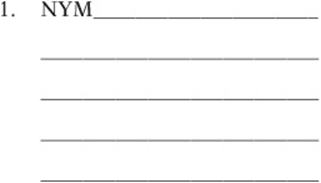
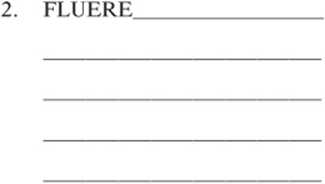
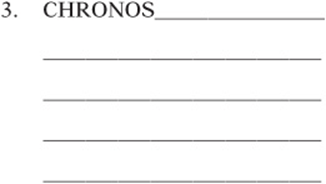
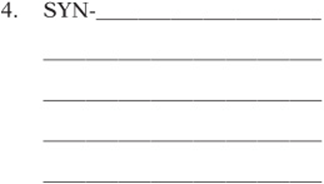
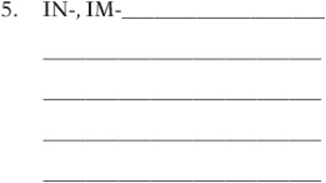
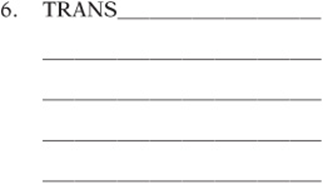
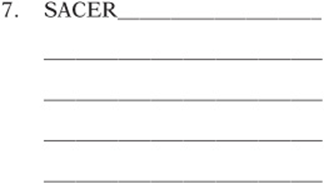

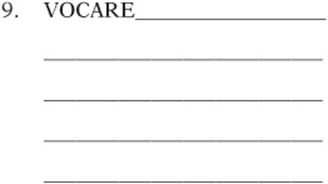
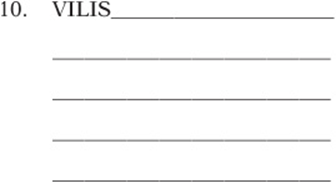
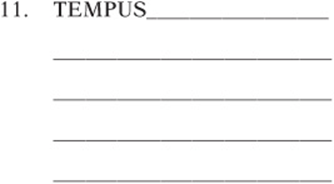
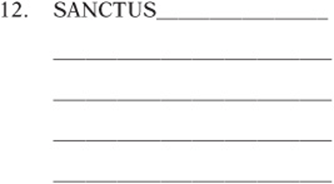
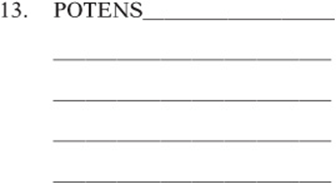
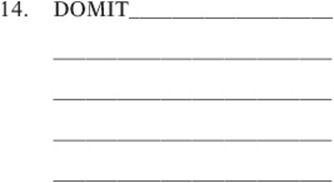
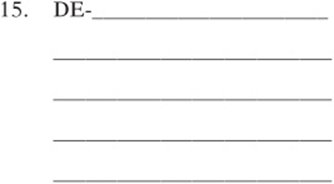
Vocabulary Unit 2 Exercise Set III
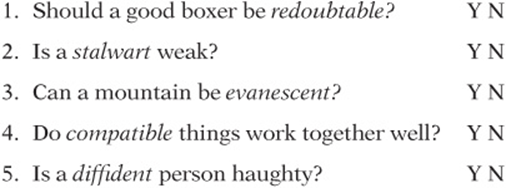
Write the word with the given meaning.
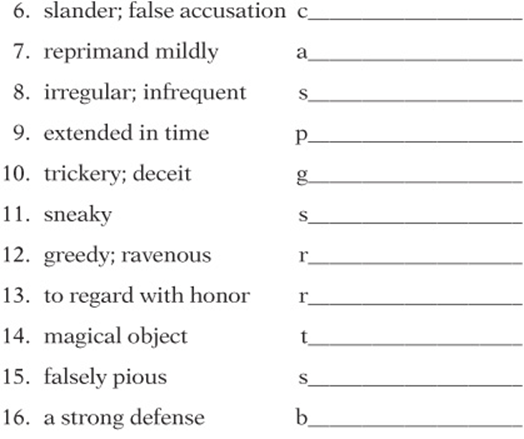
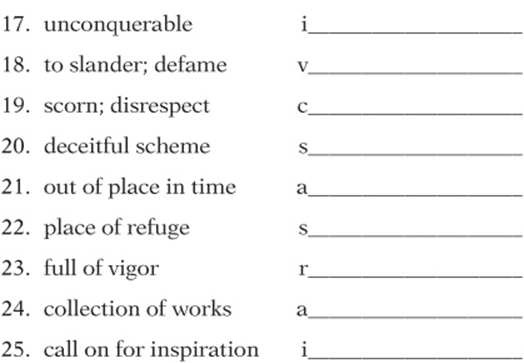
Write the correct form of the italicized word.
26. like an anomaly
_____________________________________________
27. showing contempt
_____________________________________________
28. having the quality of an anachronism
_____________________________________________
29. to give censure
_____________________________________________
30. having the tendency to evanesce
_____________________________________________
Write the word with the given meaning and root.
31. deceit (duplit)
_____________________________________________
32. fake name (nym)
_____________________________________________
33. disparaging (de-)
_____________________________________________
34. to attack as untrue (pugn)
_____________________________________________
35. falsely pious (sanct)
_____________________________________________
36. regard with respect (venus)
_____________________________________________
37. most important (domit)
_____________________________________________
38. weak (potens)
_____________________________________________
39. blend or fuse together (co-)
_____________________________________________
40. full of haughty arrogance (super-)
_____________________________________________
41. to denounce abusively (vilis)
_____________________________________________
Unit 2 Exercise Set I Answer Key
1. A The sentence indicates that showing emotion is unusual for Peter. Look for a word that means unemotional to fill the blank.
stoic = unaffected by pleasure or pain
demonstrative = effusive, emotional
extroverted = outgoing, gregarious
irascible = easily angered
inimical = unfriendly, harmful
2. A Nevertheless indicates that the blank should contrast awkward and contrived. A contrasting response would be praise. And if individualism and objectivism are the cornerstones of her philosophy, she must agree with them.
lionized = worshipped; stalwart = unwavering person
repudiated = cast off; protagonist = main character
censured = condemned; advocate = supporter
praised = commended; antagonist = opposed
extolled = praised highly; skeptic = doubter
3. B The sentence indicates that they fear the first word and if they fear something, they should seek comfort of some sort.
veneration = reverence; solitude = loneliness
oppression = holding back; sanctuary = place of refuge
impotence = lack of power; asylum = a safe place
calumny = slander; disparagement = belittlement
judiciousness = wisdom; salvation = being saved
4. C The word in the blank is something that they would use to disguise themselves as men. The only word that fits this description is pseudonyms.
influxes = inward flows
anachronisms = things out of place in time
pseudonyms = false names
diatribes = prolonged speeches
amalgams = mixtures
5. B Supporters of the tax cut would obviously hope that it would do well and cause good things. So you want a positive word in the first blank. The supporters hoped it would “spur investment and growth” which shows they thought it would strengthen the economy.
formidable = imposing; enervating = weakening
efficacious = effective; invigorating = strengthening
delicate = fragile; stimulating = causing activity
ruthless = cruel; lauding = praising
incongruous = not matching; encouraging = inspiring
6. D The second part of the sentence implies that the critics deemed her first novel to be lacking a bizarre and shocking ending. She would include a shocking ending to silence these critics. Two simple words to complete the sentence would be predictable and quiet.
banal = trivial; support = to hold up
elegant = refined; pacify = to soothe
spurious = fake; silence = to quiet
mundane = ordinary; appease = to quiet
contrived = obvious; endorse = support
7. D As is often the case, the information after the semicolon tells us everything we need to know. When Richard is unhappy, he picks fights.
sadistic = enjoying the pain of others
pious = holy
capricious = acting on impulse
belligerent = warlike, prone to fighting
fallacious = false
8. A Although shows a classic contrast. Sparrows appear to be weak and harmless, but when something important to them is threatened, they become the opposite of weak and harmless.
redoubtable = formidable, intimidating
furtive = sneaky
evanescent = ephemeral, short-lived
fickle = prone to change one”s mind
laconic = not inclined to speaking much
9. C If society detests it, the first word must indicate something negative. The as a result shows a cause and effect, so you”d expect the second word to describe a person who has the characteristic in the first blank.
compatibility = ability to go together; antagonistic = hostile idiosyncrasy = odd behavior; callous = hardened
duplicity = deceptiveness; perfidious = untrustworthy
superficial = lacking substance; profound = deep
potency = strength, power; sacrosanct = sacred
10. E The first word indicates something that would hurt one”s feelings. The second word must be a noun to describe such remarks.
derogatory = insulting; consecrations = blessings
inimical = unfriendly; conciliations = actions or remarks that regain trust or friendship
sanctimonious = smug; predilections = inclinations
venerable = worthy of respect; harangues = tirades
caustic = harmful; denigrations = slander
Unit 2 Exercise Sets II and III Answer Key
Exercise Set II
1. NYM: name pseudonym, anonymous, synonym, antonym
2. FLUERE: flow fluent, superfluous, confluence, effluvium
3. CHRONOS: time synchronize, chronology, anachronism, chronicle
4. SYN-: same synonym, sympathy, synchronize, synthesis
5. IN-, IM-: not intolerant, immoral, immodest, inconceivable
6. TRANS: across transparent, transmit, translate, transition
7. SACER: sacred sacrilegious, sacrament, sacrosanct, consecrate
8. VERERI: respect revere, reverent, irreverent, reverend
9. VOCARE: to call invoke, provoke, vocation, voice, revoke
10. VILIS: worthless vilify, revile, villain, evil
11. TEMPUS: time extemporaneous, temporary, contemporary
12. SANCTUS: holy sanctify, sanctuary, sacrosanct, sanctimonious
13. POTENS: strong potent, impotent, potential, despot
14. DOMIT: lord dominion, indomitable, domesticate, dominate
15. DE-: down descend, demoralize, demote, deride, decline
Exercise Set III
1. Y
2. N
3. N
4. Y
5. N
6. calumny
7. admonish
8. sporadic
9. protracted
10. guile
11. surreptitious
12. rapacious
13. revere
14. talisman
15. sanctimonious
16. bulwark
17. indomitable
18. vilify
19. contempt
20. stratagem
21. anachronistic
22. sanctuary
23. robust
24. anthology
25. invoke
26. anomalous
27. contemptuous
28. anachronistic
29. censure
30. evanescent
31. duplicity
32. pseudonym
33. derogatory
34. impugn
35. sanctimonious
36. venerate
37. predominant
38. impotent
39. coalesce
40. supercilious
41. revile
Vocabulary Unit 3
Vocabulary Lesson 15: Weak and Weaker

![]() atrophy (v) to weaken from disuse (a- without + troph nourishment)
atrophy (v) to weaken from disuse (a- without + troph nourishment)
After surgery, extended bed rest often causes muscles to atrophy unless it is accompanied by physical therapy.
Synonyms: degenerate, deteriorate Antonyms: thrive, flourish
![]() abate (v) to subside; to decrease in intensity (ad- to + batre to beat)
abate (v) to subside; to decrease in intensity (ad- to + batre to beat)
The crews had to wait until the storm abated before they could begin to assess the damage to the coastal town.
Synonyms: wane, diminish Antonyms: expand, amplify
![]() porous (adj) filled with many holes (porus opening)
porous (adj) filled with many holes (porus opening)
The teenager”s story was a porous one that her parents could easily see through.
Synonyms: penetrable, pervious Antonyms: impervious, impenetrable, impregnable
![]() wane (v) to grow smaller or less intense
wane (v) to grow smaller or less intense
As the brightness of the moon wanes over the next few nights, it will become easier to see the surrounding stars.
Synonyms: abate, ebb Antonyms: wax, intensify
![]() lassitude (n) a feeling of weakness (lassus weary)
lassitude (n) a feeling of weakness (lassus weary)
Although she tried valiantly to play through her illness, Danielle”s lassitude overtook her in the second half.
Synonyms: listlessness, weariness Antonyms: vitality, vigor
![]() undermine (v) to weaken or diminish something
undermine (v) to weaken or diminish something
The continual setbacks to the project over many weeks undermined the morale of the workers.
Synonyms: undercut, attenuate Antonyms: fortify, strengthen
![]() obsequious (adj) overly submissive (ob- to + sequi follow)
obsequious (adj) overly submissive (ob- to + sequi follow)
Synonyms: fawning, compliant
![]() attrition (n) a wearing away of strength or morale
attrition (n) a wearing away of strength or morale
Synonyms: debilitation, weakening
![]() enervate (v) to weaken someone”s vitality
enervate (v) to weaken someone”s vitality
Synonym: debilitate
![]() vulnerable (adj) prone to attack or harm
vulnerable (adj) prone to attack or harm
Synonyms: assailable, susceptible
![]() ebb (v) to decrease or decline slowly
ebb (v) to decrease or decline slowly
Synonyms: wane, abate
![]() compliant (adj) submissive (pli fold)
compliant (adj) submissive (pli fold)
Synonyms: yielding, conciliatory
![]() debilitate (v) to sap the strength of (de- away + bilis strength)
debilitate (v) to sap the strength of (de- away + bilis strength)
Synonyms: cripple, enervate
Vocabulary Lesson 16: Chillin”

![]() placid (adj) calm (plac to please)
placid (adj) calm (plac to please)
A relaxing day at the spa always makes me feel more placid.
Synonyms: serene, tranquil Antonyms: frenzied, frenetic
![]() inert (adj) sluggish; inactive (in- not + ertem active)
inert (adj) sluggish; inactive (in- not + ertem active)
After his final exams, Ricky sat inert on his couch for two days watching soap operas and game shows.
Synonyms: quiescent, torpid, phlegmatic Antonyms: alert, lively
![]() listless (adj) sluggish; without energy (-less without)
listless (adj) sluggish; without energy (-less without)
I always feel listless on rainy days; sometimes I don”t even want to get out of bed.
Synonyms: enervated, inert, phlegmatic, lethargic Antonyms: lively, robust
![]() quiescent (adj) resting; quiet (quies rest)
quiescent (adj) resting; quiet (quies rest)
During the quiescent phase of cell division, the cell does not split or grow.
Synonym: inactive Antonyms: dynamic, active
![]() serene (adj) tranquil; calm; placid (serenus peaceful, calm)
serene (adj) tranquil; calm; placid (serenus peaceful, calm)
There was not a single wave on the surface of the serene lake.
Synonyms: quiescent, sedate Antonyms: frenzied, turbulent
![]() static (adj) stationary (status standing)
static (adj) stationary (status standing)
The patient”s vitals have been static for an hour. We hope this means he can be moved from intensive care.
Synonyms: stagnant, inert Antonyms: itinerant, peripatetic
![]() lethargic (adj) lazy; sluggish
lethargic (adj) lazy; sluggish
The flu left me feeling lethargic even two days after my fever had broken.
Synonyms: phlegmatic, dormant, enervated, listless
![]() moratorium (n) postponement
moratorium (n) postponement
Synonyms: deferral, delay
![]() stagnate (v) to become inactive; to become stale (status standing)
stagnate (v) to become inactive; to become stale (status standing)
Synonym: idle
![]() torpor (n) lethargy; apathy
torpor (n) lethargy; apathy
Synonyms: inertness, lassitude
![]() respite (n) rest; time of relief; pause (respit delay)
respite (n) rest; time of relief; pause (respit delay)
Synonyms: hiatus, moratorium
![]() hiatus (n) a break in the continuity of something
hiatus (n) a break in the continuity of something
Synonyms: respite, discontinuity
![]() torpid (adj) hibernating; dormant (torpere be numb)
torpid (adj) hibernating; dormant (torpere be numb)
Synonyms: inert, idle
Vocabulary Lesson 17: Wanna Fight?

![]() belligerent (adj) warlike; quarrelsome (bellum war)
belligerent (adj) warlike; quarrelsome (bellum war)
My brother is a belligerent guy; he picks his fair share of bar fights.
Synonyms: antagonistic, cantankerous, contentious Antonyms: passive, peaceful
![]() irascible (adj) easily angered (ire anger)
irascible (adj) easily angered (ire anger)
Adam”s irascible nature landed him in anger management therapy; he overreacts to the smallest things.
Synonyms: choleric, splenetic, petulant Antonym: even-tempered
![]() volatile (adj) explosive; tending to evaporate quickly (vola to fly)
volatile (adj) explosive; tending to evaporate quickly (vola to fly)
The situation in the Middle East is a volatile one that must be handled with care.
Synonyms: unsettled, temperamental Antonym: stable
![]() rebuttal (n) refutation; opposing response to an argument (re- back)
rebuttal (n) refutation; opposing response to an argument (re- back)
After the opponent made his remarks, the debate team captain approached the podium to deliver her rebuttal.
Synonyms: repartee, rejoinder Antonym: agreement
![]() refute (v) to disprove; to rebut forcefully (refutare to drive back)
refute (v) to disprove; to rebut forcefully (refutare to drive back)
The judge found no evidence to refute your claim that the car is yours, so you get to keep it for now.
Synonyms: contradict, rebut Antonyms: support, endorse
![]() incite (v) to urge into action (citare to cause to move)
incite (v) to urge into action (citare to cause to move)
The rebels incited a revolt in the small city by convincing the citizens that their mayor was a crook.
Synonyms: coax, cajole, instigate Antonym: dissuade
![]() pugnacious (adj) quarrelsome; warlike (pugnare fight)
pugnacious (adj) quarrelsome; warlike (pugnare fight)
The pugnacious punk was happiest when his fists were pounding someone else”s chin.
Synonyms: truculent, belligerent Antonyms: pacific, passive
![]() bellicose (adj) warlike in manner (bellum war)
bellicose (adj) warlike in manner (bellum war)
Synonyms: pugnacious, belligerent
![]() harass (v) to bother; to annoy
harass (v) to bother; to annoy
Synonyms: irritate, torment
![]() assail (v) to attack or assault (ad- at + salire leap)
assail (v) to attack or assault (ad- at + salire leap)
Synonym: berate
![]() tumultuous (adj) violently agitated
tumultuous (adj) violently agitated
Synonyms: hectic, unruly
![]() instigate (v) to goad; to urge on
instigate (v) to goad; to urge on
Synonyms: incite, foment, coax, cajole
![]() provocative (adj) tending to aggravate or stimulate (pro- forth + vocare to call)
provocative (adj) tending to aggravate or stimulate (pro- forth + vocare to call)
Synonyms: goading, alluring
![]() propensity (n) a natural inclination; a tendency (pro- forth)
propensity (n) a natural inclination; a tendency (pro- forth)
Vocabulary Lesson 18: Bad and Ugly

![]() acrimony (n) bitterness of feeling; harsh words (acri bitter + monia action or condition)
acrimony (n) bitterness of feeling; harsh words (acri bitter + monia action or condition)
Her toast was inappropriately acrimonious, and we could all tell that she had not forgiven her friend.
Synonyms: belligerence, rancor Antonym: civility
![]() appalling (adj) shocking; causing dismay (palir to grow pale)
appalling (adj) shocking; causing dismay (palir to grow pale)
The way he yells at his wife is appalling; he treats her as if she were his servant.
Synonyms: astounding, offensive Antonyms: benevolent, virtuous
![]() cacophony (n) discord; harsh sounds (cacos ugly + phon sound)
cacophony (n) discord; harsh sounds (cacos ugly + phon sound)
How can this cacophony coming out of my son”s room be today”s popular music?
Synonyms: disharmony, dissonance Antonym: harmony
![]() abysmal (adj) extremely bad; wretched
abysmal (adj) extremely bad; wretched
The food at this hospital is abysmal! Is this bread or cardboard?
Synonyms: deplorable, pathetic Antonyms: commendable, laudable
![]() acrid (adj) harsh smelling or tasting (acri bitter)
acrid (adj) harsh smelling or tasting (acri bitter)
Don”t inhale too much of this chemical; it is known to be quite acrid and can make you pass out.
Synonyms: astringent, pungent Antonyms: savory, sweet
![]() blatant (adj) very conspicuous; annoyingly loud
blatant (adj) very conspicuous; annoyingly loud
The blaring of loud music despite my repeated requests for silence shows your blatant disregard for my needs.
Synonyms: flagrant, impudent Antonym: unobtrusive
![]() deplorable (adj) worthy of reproach or censure (plorare to cry out in sorrow)
deplorable (adj) worthy of reproach or censure (plorare to cry out in sorrow)
Although they claimed to love animals, the conditions at their run-down shelter were deplorable.
Synonyms: disgraceful, egregious Antonyms: commendable, laudable
![]() egregious (adj) conspicuously bad; flagrant (e- out + greg herd)
egregious (adj) conspicuously bad; flagrant (e- out + greg herd)
Synonyms: atrocious, deplorable
![]() lurid (adj) shocking; sensational
lurid (adj) shocking; sensational
Synonyms: graphic, vivid
![]() noisome (adj) offensive to the senses or the health (noi harm)
noisome (adj) offensive to the senses or the health (noi harm)
Synonyms: loathsome, detestable
![]() flagrant (adj) offensively bad; reprehensible
flagrant (adj) offensively bad; reprehensible
Synonyms: egregious, blatant
![]() heinous (adj) cruel; shockingly evil (haine hatred + -ous full of)
heinous (adj) cruel; shockingly evil (haine hatred + -ous full of)
Synonyms: atrocious, monstrous
![]() astringent (adj) caustic; pungent
astringent (adj) caustic; pungent
Synonyms: acrid, harsh
Vocabulary Lesson 19: Moving Right Along

![]() ambulatory (adj) capable of moving around (ambulare walk)
ambulatory (adj) capable of moving around (ambulare walk)
He must stay in bed for a week, and once he is ambulatory he will need crutches.
Synonyms: mobile, peripatetic Antonyms: static, immobile
![]() deviate (v) to swerve or deflect (de- away + via path)
deviate (v) to swerve or deflect (de- away + via path)
The tire sitting in the left lane of the highway caused the driver to deviate from her path.
Synonyms: digress, veer Antonym: conform
![]() influx (n) a flowing in (in- in+ flux flow)
influx (n) a flowing in (in- in+ flux flow)
The school saw quite an influx of new applicants once it increased the number of scholarships.
Synonyms: inundation, inpouring, immigration Antonyms: efflux, emigration
![]() meander (v) to wander aimlessly (from Maiandros, a Greek river known for its winding path)
meander (v) to wander aimlessly (from Maiandros, a Greek river known for its winding path)
The confused lost child meandered through the streets with no apparent destination.
Synonyms: roam, drift
![]() peripatetic (adj) traveling from place to place (peri- around + patein to walk)
peripatetic (adj) traveling from place to place (peri- around + patein to walk)
The nomads were a peripatetic clan; they never stayed in the same place very long.
Synonyms: itinerant, ambulant Antonyms: stationary, static
![]() impel (v) to put into motion; to urge (pel force)
impel (v) to put into motion; to urge (pel force)
The zoo visitors were impelled into action by the announcement that a lion was loose.
Synonyms: goad, spur Antonyms: impede, dissuade
![]() expedite (v) to speed up the progress of (ex- out + pes foot: to free from entanglement) The project was expedited once the CEO decided that its outcome reflected on him personally.
expedite (v) to speed up the progress of (ex- out + pes foot: to free from entanglement) The project was expedited once the CEO decided that its outcome reflected on him personally.
Synonyms: facilitate, hasten, precipitate, advance Antonyms: impede, hinder
![]() itinerant (adj) traveling from place to place
itinerant (adj) traveling from place to place
Synonyms: peripatetic, ambulant
![]() nomadic (adj) wandering without a permanent home
nomadic (adj) wandering without a permanent home
Synonyms: migratory, drifting
![]() peripheral (adj) located on the outer boundary (peri- around)
peripheral (adj) located on the outer boundary (peri- around)
Synonym: bordering
![]() compel (v) to urge into action by force (com- together + pel force)
compel (v) to urge into action by force (com- together + pel force)
Synonyms: impel, coerce
![]() vagrant (adj) wandering from place to place (vagus wandering)
vagrant (adj) wandering from place to place (vagus wandering)
Synonyms: nomadic, peripatetic
![]() perambulate (v) to move about (per- through + ambulare walk)
perambulate (v) to move about (per- through + ambulare walk)
Synonyms: wander, drift
Vocabulary Lesson 20: Going, Going, Gone!

![]() raze (v) to destroy completely
raze (v) to destroy completely
The massive level-five hurricane razed the entire port city, crushing everything in its path.
Synonyms: obliterate, decimate Antonym: preserve
![]() jettison (v) to throw overboard
jettison (v) to throw overboard
The killer jettisoned the murder weapon into the lake as he sailed to his hideout in the cove.
Synonyms: heave, dump Antonym: retain
![]() abort (v) to terminate prematurely
abort (v) to terminate prematurely
The soldiers aborted their mission when they learned their cover was blown and it was no longer safe.
Synonyms: scratch, cancel Antonyms: execute, continue
![]() purge (v) to cleanse of something unwanted (purgare to cleanse) It is satisfying to purge your email inbox of unwanted junk messages.
purge (v) to cleanse of something unwanted (purgare to cleanse) It is satisfying to purge your email inbox of unwanted junk messages.
Synonyms: remove, expunge Antonyms: amass, collect
![]() forgo (v) to give something up (for- away + go go)
forgo (v) to give something up (for- away + go go)
The woman decided to leave the hospital early and forgo further treatment on her injured hip.
Synonyms: abandon, forsake Antonyms: maintain, participate
![]() deplete (v) to decrease the supply of (deplare to empty)
deplete (v) to decrease the supply of (deplare to empty)
The run on gasoline depleted the gas station of its fuel reserves, and it was forced to shut down.
Synonyms: exhaust, diminish Antonyms: replenish, restock
![]() dearth (n) lack; scarcity (dear greatly valued)
dearth (n) lack; scarcity (dear greatly valued)
There has been a dearth of good will between the teams ever since the bench-clearing brawl.
Synonyms: paucity, scarcity, want, deficiency Antonyms: abundance, plenitude, bounty
![]() rescind (v) to take back; to cancel (re- back + scindere cut)
rescind (v) to take back; to cancel (re- back + scindere cut)
Synonyms: annul, void
![]() efface (v) to erase by rubbing (e- out + face appearance)
efface (v) to erase by rubbing (e- out + face appearance)
Synonyms: omit, cancel
![]() abdicate (v) to give up power (ab- away + dicare proclaim)
abdicate (v) to give up power (ab- away + dicare proclaim)
Synonyms: relinquish, renounce
![]() renounce (v) to give up in a formal announcement
renounce (v) to give up in a formal announcement
Synonyms: abdicate, resign
![]() nullify (v) to make invalid (nullus none)
nullify (v) to make invalid (nullus none)
Synonyms: cancel, void
![]() relinquish (v) to abandon or give up (re- back + linquere to leave)
relinquish (v) to abandon or give up (re- back + linquere to leave)
Synonyms: abdicate, vacate
![]() cathartic (adj) having a purging effect; inducing the release of emotional tension
cathartic (adj) having a purging effect; inducing the release of emotional tension
Forgiving his father turned out to be a very cathartic experience for Kenneth.
Vocabulary Lesson 21: Mr. Nice Guy

![]() altruism (n) selflessness (alter other)
altruism (n) selflessness (alter other)
Tom”s altruism pushes him to spend thirty hours per week working with the needy.
Synonyms: humaneness, benevolence Antonyms: egoism, malevolence
![]() amiable (adj) friendly; agreeable (amicus friend)
amiable (adj) friendly; agreeable (amicus friend)
Mr. Richards is such an amiable guy, always smiling and laughing as he interacts with his customers.
Synonyms: affable, amicable Antonyms: surly, disdainful
![]() philanthropist (n) one who does good; lover of humankind (phila- love + anthro humankind)
philanthropist (n) one who does good; lover of humankind (phila- love + anthro humankind)
It is amazing that a penny-pincher like Paul is a philanthropist who has donated millions to charity.
Synonyms: altruist, humanitarian Antonyms: misanthrope, antagonist
![]() congenial (adj) friendly; pleasant (con- with + genialis pleasant)
congenial (adj) friendly; pleasant (con- with + genialis pleasant)
After months of imagining her in-laws as monsters, Julia was surprised at how congenial they actually were.
Synonyms: amicable, affable Antonyms: hostile, surly
![]() munificent (adj) generous (munus sharing)
munificent (adj) generous (munus sharing)
Donating that outfit to charity is quite a munificent gesture, considering that it is your favorite.
Synonyms: beneficent, magnanimous Antonyms: greedy, egoistic
![]() decorum (n) propriety; good manners (decorus proper)
decorum (n) propriety; good manners (decorus proper)
While eating at the country club, you must behave with the utmost decorum and mind your manners.
Synonym: etiquette Antonym: impropriety
![]() amity (n) friendship (amicus friend)
amity (n) friendship (amicus friend)
Synonyms: benevolence, amicableness
![]() decorous (adj) exhibiting good taste in behavior or appearance (decorus proper)
decorous (adj) exhibiting good taste in behavior or appearance (decorus proper)
Synonyms: civilized, dignified
![]() affable (adj) friendly; kind (affabilis easy to converse with)
affable (adj) friendly; kind (affabilis easy to converse with)
Synonyms: amiable, amicable
![]() gregarious (adj) sociable (greg flock)
gregarious (adj) sociable (greg flock)
Synonym: friendly
![]() amicable (adj) polite and friendly (amicus friend)
amicable (adj) polite and friendly (amicus friend)
Synonyms: amiable, affable
![]() magnanimous (adj) generous; big-hearted (magna- great + animus spirit)
magnanimous (adj) generous; big-hearted (magna- great + animus spirit)
Synonyms: altruistic, munificent
![]() geniality (n) cheerfulness (genialis pleasant)
geniality (n) cheerfulness (genialis pleasant)
Synonyms: affability, amiability
Vocabulary Unit 3 Exercise Set I
Time—8 minutes
For each question, select the best answer among the choices given. Note any vocabulary words to review on the Hit List below.
1. Stephen”s job as censor for the magazine was to ------ any material that might be objectionable to its readers.
(A) abridge
(B) amass
(C) refute
(D) expurgate
(E) enervate
2. As more travelers have decided to ------ their garbage as they sail, the lake has become quite polluted.
(A) pilfer
(B) jettison
(C) yoke
(D) assail
(E) impel
3. The movie critic refused to take back his ------ remarks because he thoroughly intended to ------ the director”s abilities.
(A) caustic . . compliment
(B) derogatory . . revere
(C) sanctimonious . . reveal
(D) laconic . . lionize
(E) scathing . . disparage
4. The ------ young salesman made his living wandering from town to town.
(A) bellicose
(B) inert
(C) lethargic
(D) acrid
(E) peripatetic
5. Normally a ------ person, when stuck in horrible traffic on the highway Peter becomes even more ------, often provoking fisticuffs with other drivers.
(A) congenial . . rapacious
(B) contentious . . belligerent
(C) listless . . dolorous
(D) choleric . . serene
(E) sanguine . . pugnacious
6. The normally ------ daytime television show had one surprisingly ------ episode and got yanked off the air.
(A) decorous . . provocative
(B) compliant . . obsequious
(C) vulnerable . . porous
(D) volatile . . tumultuous
(E) deplorable . . altruistic
7. Coming off of the worst recession in the country”s 250-year history, the sudden ------ of money was a welcome sight to the rulers of the destitute nation.
(A) depletion
(B) influx
(C) transgression
(D) fluctuation
(E) bulwark
8. The ------ from the construction work on the busy street below made it very difficult for me to concentrate with the window open.
(A) torpor
(B) cacophony
(C) euphoria
(D) anomaly
(E) sacrament
9. As if he knew I was exhausted and in need of ------ from his interminable mischief, the puppy went to his bed and took a nap.
(A) an elocution
(B) a euphemism
(C) a respite
(D) a rebuttal
(E) a testimony
10. Although it was nice to be ------ again after being bedridden for four weeks, the muscular ------ that resulted from my immobilization was going to take a lot of work to fix.
(A) itinerant . . deterioration
(B) amiable . . bastion
(C) ambulatory . . atrophy
(D) amorphous . . attrition
(E) pedestrian . . acrimony

Vocabulary Unit 3 Exercise Set II
Write the meaning next to each root, then write as many words as you can that contain the root.
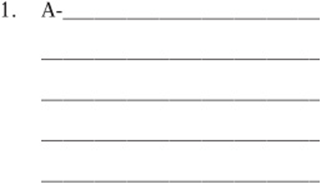
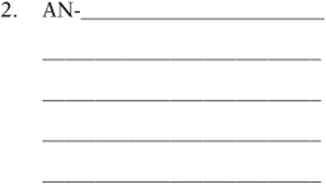
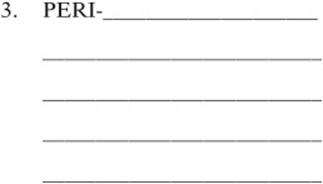
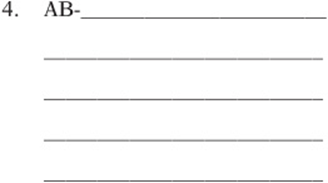
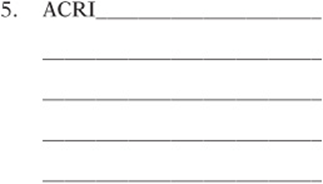
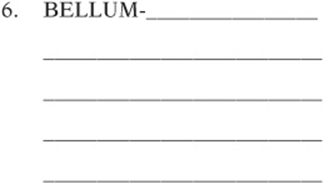
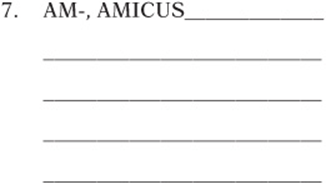
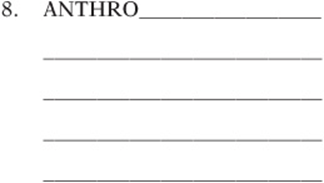
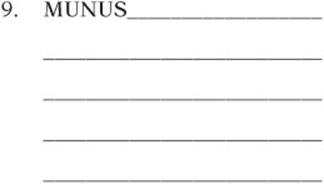
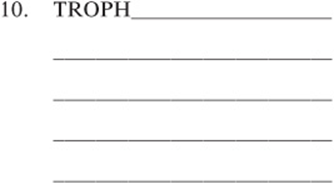
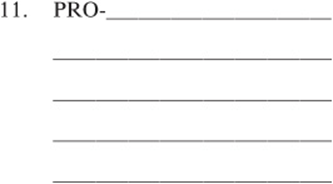
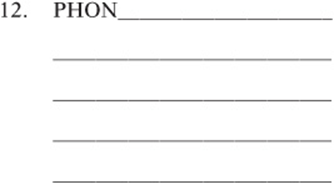
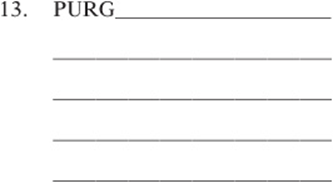
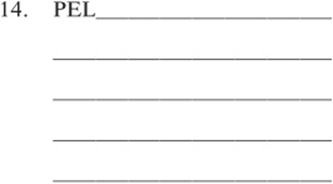
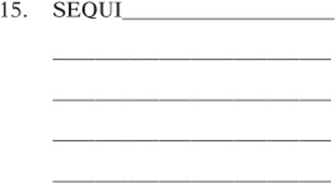
Vocabulary Unit 3 Exercise Set III
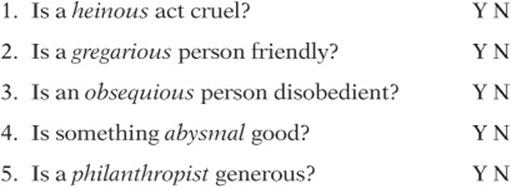
Write the word with the given meaning.
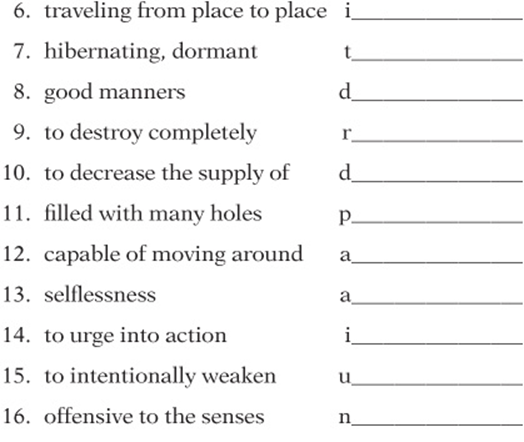
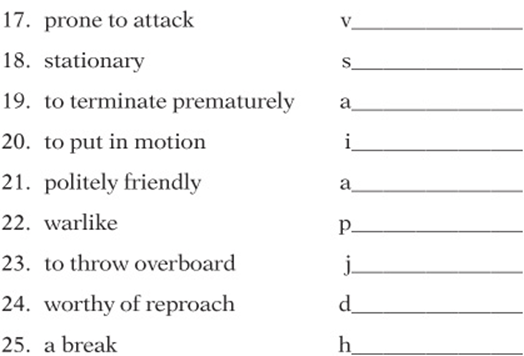
Write the correct form of the italicized word.
26. characterized by torpor
_____________________________________________
27. the act of abdicating
_____________________________________________
28. the quality of being volatile
_____________________________________________
29. how someone who displays altruism behaves
_____________________________________________
30. the quality of being pugnacious
_____________________________________________
Write the word with the given root.
31. lazy, sluggish (argos)
_____________________________________________
32. to erase (fac)
_____________________________________________
33. to weaken from disuse (a-)
_____________________________________________
34. postponement (mora)
_____________________________________________
35. generous (muni)
_____________________________________________
36. quarrelsome (belli)
_____________________________________________
37. overly submissive (sequi)
_____________________________________________
38. to swerve (via)
_____________________________________________
39. easily angered (irasci)
_____________________________________________
40. sociable (greg)
_____________________________________________
41. harsh words (acri)
_____________________________________________
Unit 3 Exercise Set I Answer Key
1. D A censor is one who removes objectionable material.
abridge = to shorten
amass = to accumulate or collect
refute = to disprove
expurgate = to remove inappropriate material
enervate = to weaken
2. B The waters are becoming more polluted, which indicates that people are probably putting their garbage into the lake.
pilfer = to steal
jettison = to throw overboard
yoke = to tie together
assail = to attack
impel = to provoke
3. E The critic thoroughly intended to say what he said. But if they were things he was expected to take back, they must have been pretty negative. The second word should be negative as well.
caustic = harmful; compliment = to praise
derogatory = offensive; revere = to respect
sanctimonious = smug
laconic = terse; lionize = to worship
scathing = harsh; disparage = to put down
4. E This person makes his living wandering from town to town.
bellicose = warlike
inert = inactive
lethargic = sluggish
acrid = harsh
peripatetic = traveling from place to place
5. B Peter sometimes picks fights (fisticuffs). The second word should be slightly stronger than the first.
congenial = friendly; rapacious = ravenous
contentious = inclined to argue; belligerent = warlike
listless = lethargic; dolorous = painful
choleric = easily angered; serene = peaceful
sanguine = optimistic; pugnacious = combative
6. A It got yanked off the air, so the show must have done something bad. The word surprisingly indicates a contrast, so the first word is positive.
decorous = proper; provocative = risqué
compliant = obedient; obsequious = submissive
vulnerable = susceptible; porous = full of holes
volatile = explosive; tumultuous = turbulent
deplorable = very bad; altruistic = selfless
7. B The nation is destitute, and therefore needs money to pour in.
depletion = draining
influx = inward flow
transgression = violation
fluctuation = shift back and forth
bulwark = a defensive wall
8. B It is difficult to concentrate and the street is busy with construction; there must be lot of noise down there.
torpor = sluggishness
cacophony = harsh noise
euphoria = elation, ecstasy
anomaly = an abnormality
sacrament = a formal religious act
9. C The owner of the puppy is exhausted and therefore in need of rest. Interminable means never-ending. The puppy”s nap would provide the owner with a nice break from the mischief.
an elocution = an expressive delivery of a speech
a euphemism = an inoffensive expression substituted for an offensive one
a respite = a rest
a rebuttal = a retort
a testimony = an account, evidence
10. C The first word describes one who is no longer bedridden. The second word describes a problem from being bedridden. Atrophy works because it is the result of disuse.
itinerant = wandering; deterioration = degeneration
amiable = friendly; bastion = a fortified area
ambulatory = able to move; atrophy = withering
amorphous = lacking shape; attrition = erosion
pedestrian = common; acrimony = harsh words
(pedestrian can also mean “on the move”)
Unit 3 Exercise Sets II and III Answer Key
Exercise Set II
1. A-: without atheist, atrophy, apathy, asexual, amorphous, abyss
2. AN-: without anarchy, anecdote, anaerobic, analgesic, anemia, anesthesia, anonymous
3. PERI-: around peripatetic, perambulate, pericardium, period, perimeter, peripheral, peristalsis, periscope
4. AB-: away abdicate, abscond, abduct, aberration, absolve, abject, abscess, abomination
5. ACRI: bitter acrimony, acrid, acrimonious
6. BELLUM-: war belligerent, bellicose, rebel, rebellion
7. AM-, AMICUS: friend amiable, amicable, enemy, inimical, amity
8. ANTHRO-: mankind anthropology, anthropocentric, philanthropist, misanthrope
9. MUNUS: gift munificent, immunity, remuneration
10. TROPH: nourishment atrophy, phototroph, heterotroph, autotroph, dystrophy
11. PRO-: forward, forth procrastinate, prolific, prophesy, propagate, propensity, profound, provoke, provocative
12. PHON: sound cacophony, phonetic, symphony, euphonious
13. PURG-: to clean expurgate, purge, purgatory, spurge
14. PEL: to push compel, impel, expel, propulsion
15. SEQUI: to follow obsequious, prosecute, pursue, segue, subsequent
Exercise Set III
1. Y
2. Y
3. N
4. N
5. Y
6. itinerant
7. torpid
8. decorum
9. raze
10. deplete
11. porous
12. ambulatory
13. altruism
14. incite
15. undermine
16. noisome
17. vulnerable
18. static
19. abort
20. impel
21. amicable
22. pugnacious
23. jettison
24. deplorable
25. hiatus
26. torpid
27. abdication
28. volatility
29. altruistically
30. pugnacity
31. lethargic
32. efface
33. atrophy
34. moratorium
35. munificent
36. belligerent
37. obsequious
38. deviate
39. irascible
40. gregarious
41. acrimony
Vocabulary Unit 4
Vocabulary Lesson 22: Show Off!

![]() pedantic (adj) showy about knowledge (paedere to instruct)
pedantic (adj) showy about knowledge (paedere to instruct)
Kim”s pedantic teaching style bothers her students; she uses bizarre vocabulary words nobody understands.
Synonyms: didactic, egotistic
![]() grandiose (adj) pretentious; ridiculously exaggerated (grandis great)
grandiose (adj) pretentious; ridiculously exaggerated (grandis great)
The castle”s foyer was the most grandiose of its kind, adorned with crystal chandeliers and gilded banisters.
Synonyms: ostentatious, flamboyant, lofty Antonym: humble
![]() bombastic (adj) pompous; using inflated language
bombastic (adj) pompous; using inflated language
The bombastic language in the mayor”s campaign speech made her seem arrogant and disconnected from the public.
Synonyms: grandiose, overblown Antonyms: understated, reserved
![]() braggart (n) one who boasts; a showoff (braguer to show off)
braggart (n) one who boasts; a showoff (braguer to show off)
No one likes a braggart; it”s better to be modest and humble about your successes.
Synonym: egotist
![]() ostentatious (adj) showy; pretentious (ostentare to display + -ious full of)
ostentatious (adj) showy; pretentious (ostentare to display + -ious full of)
That solid gold statue is the most ostentatious display of wealth I have ever seen.
Synonyms: gaudy, grandiose, garish Antonyms: understated, reserved
![]() pompous (adj) possessing excessive self-esteem; pretentious (pomp splendor + -ous full of)
pompous (adj) possessing excessive self-esteem; pretentious (pomp splendor + -ous full of)
His pompous, holier-than-thou attitude annoyed all of his classmates.
Synonyms: conceited, self-centered, pontifical Antonyms: modest, self-effacing, humble
![]() swagger (v) to walk or strut in an arrogant manner
swagger (v) to walk or strut in an arrogant manner
Having beat their crosstown rivals handily, the players swaggered back to the locker room.
Synonyms: brag, strut
![]() lofty (adj) haughty; overly proud
lofty (adj) haughty; overly proud
Synonyms: cavalier, pretentious
![]() garish (adj) flashy; loud
garish (adj) flashy; loud
Synonyms: ornate, ostentatious, gaudy
![]() ornate (adj) overly decorated (ornatus to adorn)
ornate (adj) overly decorated (ornatus to adorn)
Synonyms: ostentatious, opulent, gaudy
![]() opulence (adj) luxuriousness (opulentus wealthy)
opulence (adj) luxuriousness (opulentus wealthy)
Synonyms: grandeur, affluence
![]() pretentious (adj) ostentatious
pretentious (adj) ostentatious
Synonyms: gaudy, grandiose, garish
![]() baroque (adj) extravagantly ornate and convoluted in style
baroque (adj) extravagantly ornate and convoluted in style
Synonyms: flamboyant, florid
Vocabulary Lesson 23: Like a Pit Bull

![]() dogged (adj) determined; unwilling to give up
dogged (adj) determined; unwilling to give up
Outmanned and overmatched, the dogged fighters nevertheless refused to surrender the Alamo.
Synonyms: tenacious, inexorable Antonyms: yielding, irresolute
![]() inexorable (adj) relentless (in- not + exorabilis able to be swayed)
inexorable (adj) relentless (in- not + exorabilis able to be swayed)
Inexorable in his wooing, Jason vowed to send Kathy roses every day until she accepted his prom invitation.
Synonyms: obstinate, dogged Antonyms: yielding, irresolute
![]() obstinate (adj) stubborn (obstinatus to stand stubbornly)
obstinate (adj) stubborn (obstinatus to stand stubbornly)
No matter what she tried, she could not make her obstinate husband change his mind.
Synonyms: adamant, relentless, obdurate Antonyms: acquiescent, obsequious
![]() intransigent (adj) uncompromising (in- not + transigente compromising)
intransigent (adj) uncompromising (in- not + transigente compromising)
Pat”s intransigent nature showed itself when he adamantly refused to shift his appointment from 5:00 to 5:05.
Synonyms: obstinate, intractable Antonyms: concordant, accommodating, complaisant
![]() contentious (adj) quarrelsome (contendere to strive after + -ious full of)
contentious (adj) quarrelsome (contendere to strive after + -ious full of)
Julia sighed as her excessively contentious husband started another unnecessary argument with their waiter.
Synonyms: pugnacious, belligerent Antonyms: passive, conciliatory
![]() pertinacity (n) stubbornness (per- very + tenax holding fast)
pertinacity (n) stubbornness (per- very + tenax holding fast)
Kyle showed incredible pertinacity after breaking his leg, making it back in time for the championship game.
Synonyms: doggedness, steadfastness
![]() steadfast (adj) unchanging; unswerving (stede stand + foest firmly fixed)
steadfast (adj) unchanging; unswerving (stede stand + foest firmly fixed)
Despite many hardships, the team was steadfast in its pursuit of the summit.
Synonyms: obdurate, inexorable Antonyms: fickle, vacillatory
![]() recalcitrant (adj) stubbornly rebellious
recalcitrant (adj) stubbornly rebellious
Synonyms: defiant, stubborn, wayward
![]() tenacious (adj) holding firmly; persistent (tenax holding fast)
tenacious (adj) holding firmly; persistent (tenax holding fast)
Synonyms: persistent, steadfast, resolute
![]() disputatious (adj) inclined to arguing (disputare to argue)
disputatious (adj) inclined to arguing (disputare to argue)
Synonyms: contentious, litigious, polemical
![]() obdurate (adj) intractable; not easily persuaded (obdurare to harden)
obdurate (adj) intractable; not easily persuaded (obdurare to harden)
Synonyms: inexorable, dogged
![]() intractable (adj) hard to manage; stubborn (in- not + tract pull)
intractable (adj) hard to manage; stubborn (in- not + tract pull)
Synonyms: obstinate, headstrong
![]() adamant (adj) refusing to yield (adamas unbreakable)
adamant (adj) refusing to yield (adamas unbreakable)
Synonyms: inexorable, obdurate
![]() litigious (adj) prone to bringing lawsuits (lis- lawsuit + agere to drive)
litigious (adj) prone to bringing lawsuits (lis- lawsuit + agere to drive)
Synonym: contentious
Vocabulary Lesson 24: You”re Good at That!

![]() adroit (adj) dexterous; skillful
adroit (adj) dexterous; skillful
An adroit con man, Clarence knew how to fool even the most skeptical eye.
Synonyms: deft, proficient Antonyms: clumsy, inept
![]() unerring (adj) committing no mistakes; perfect (un- not + err to make a mistake)
unerring (adj) committing no mistakes; perfect (un- not + err to make a mistake)
Her unerring sense of direction always puts her in the right place even if she has never been there before.
Synonym: infallible Antonym: inferior
![]() adept (adj) highly skilled
adept (adj) highly skilled
Roberto, an adept mathematician, completed the outrageously difficult calculus final in just 25 minutes.
Synonyms: dexterous, adroit Antonyms: incompetent, clumsy
![]() aptitude (n) a natural ability; intelligence (apt fit)
aptitude (n) a natural ability; intelligence (apt fit)
Kenneth showed a great aptitude for computers as a child, designing complex programs at the age of ten.
Synonyms: competence, expertise Antonyms: ineptitude, incompetence
![]() paragon (n) a model of excellence; perfection (para- beyond)
paragon (n) a model of excellence; perfection (para- beyond)
The head of several charities, Susan is the paragon of philanthropy.
Synonyms: prototype; epitome
![]() deft (adj) adroit, skillful
deft (adj) adroit, skillful
The graceful ballerina kept from tripping on stage by deftly avoiding the poorly placed electrical wires.
Synonyms: proficient, adroit Antonyms: clumsy, inept, awkward
![]() preeminent (adj) outstanding
preeminent (adj) outstanding
A preeminent psychologist, Dr. Carter is often asked to lend his expertise on difficult cases.
Synonyms: unsurpassed, paramount Antonym: inferior
![]() expertise (n) knowledge or skill in a particular area
expertise (n) knowledge or skill in a particular area
Synonyms: prowess, savvy, bailiwick
![]() discerning (adj) showing good judgment or keen insight (dis- off + cernere distinguish)
discerning (adj) showing good judgment or keen insight (dis- off + cernere distinguish)
Synonyms: astute, judicious, sage
![]() agility (n) nimbleness (agilis to move)
agility (n) nimbleness (agilis to move)
Synonyms: spryness, litheness
![]() consummate (adj) perfect in every respect (con- with + summus highest)
consummate (adj) perfect in every respect (con- with + summus highest)
Synonym: impeccable
![]() dexterous (adj) skillful with the hands (dexter skillful + -ous full of)
dexterous (adj) skillful with the hands (dexter skillful + -ous full of)
Synonyms: adroit, adept
![]() impeccable (adj) flawless (im- not + peccare to sin)
impeccable (adj) flawless (im- not + peccare to sin)
Synonyms: immaculate, infallible, transcendent
![]() precocious (adj) unusually advanced or mature in development (especially in mental attitude)
precocious (adj) unusually advanced or mature in development (especially in mental attitude)
Vocabulary Lesson 25: Bad and Worse

![]() nefarious (adj) wicked; sinful (ne- not + fas lawful)
nefarious (adj) wicked; sinful (ne- not + fas lawful)
Cinderella”s nefarious stepsisters took joy in making her do their daily chores.
Synonyms: infamous, odious
![]() repugnant (adj) offensive; repulsive (re- back + pugnare to fight)
repugnant (adj) offensive; repulsive (re- back + pugnare to fight)
Christopher”s mother found his superstition of not bathing after games repugnant.
Synonyms: abhorrent, vile, abominable Antonyms: alluring, admirable
![]() infamous (adj) famous for bad deeds; notorious (in- not + famosus celebrated)
infamous (adj) famous for bad deeds; notorious (in- not + famosus celebrated)
The infamous “El Héctor” was remembered for the way he tortured the poor villagers of Santa Potula.
Synonyms: contemptible, ignominious Antonym: noble
![]() odious (adj) worthy of dislike; arousing feelings of dislike (odiosus hateful)
odious (adj) worthy of dislike; arousing feelings of dislike (odiosus hateful)
Jimmy was no longer afraid to go to school once the odious bully was suspended.
Synonyms: abhorrent, loathsome, repugnant Antonyms: delightful, laudable
![]() malevolent (adj) wishing harm to others; evil (mal- evil + vol wish)
malevolent (adj) wishing harm to others; evil (mal- evil + vol wish)
The malevolent dictator smiled as he ordered his soldiers to burn down the church.
Synonym: sinister Antonym: benevolent
![]() malefactor (n) an evildoer (mal- evil + facere to perform)
malefactor (n) an evildoer (mal- evil + facere to perform)
Superman has found and stopped many a malefactor before the crime could actually be committed.
Synonyms: scamp, delinquent Antonym: benefactor
![]() abominable (adj) loathsome; unpleasant
abominable (adj) loathsome; unpleasant
His abominable behavior at the game included excessive drinking, loud swearing, and the removal of his clothes.
Synonyms: contemptible, vile Antonyms: delightful, laudable
![]() avarice (n) extreme greed
avarice (n) extreme greed
Synonyms: miserliness, penuriousness
![]() bigotry (n) intolerance toward those who are different
bigotry (n) intolerance toward those who are different
![]() hypocrite (n) one who says one thing but does another (hypokrites Gr pretender)
hypocrite (n) one who says one thing but does another (hypokrites Gr pretender)
![]() miserly (adj) lacking generosity (mis- wretched)
miserly (adj) lacking generosity (mis- wretched)
Synonyms: avaricious, penurious
![]() inimical (adj) unfriendly (in- not + amicus friend)
inimical (adj) unfriendly (in- not + amicus friend)
Synonyms: antagonistic, hostile
![]() curmudgeon (n) a cranky person
curmudgeon (n) a cranky person
![]() misanthrope (n) one who hates humankind (mis- hatred + anthro humankind)
misanthrope (n) one who hates humankind (mis- hatred + anthro humankind)
![]() perfidy (n) deliberate breach of trust; treachery
perfidy (n) deliberate breach of trust; treachery
Vocabulary Lesson 26: Ripped Off

![]() charlatan (n) a fraud; a quack (chiarlatino a quack)
charlatan (n) a fraud; a quack (chiarlatino a quack)
June”s family warned her that Chaz was a charlatan only pretending to be a successful lawyer.
Synonyms: imposter, con man, swindler
![]() ruse (n) a crafty scheme
ruse (n) a crafty scheme
The clever criminal came up with a flawless ruse to steal the money from the bank.
Synonyms: strategem, machination
![]() subterfuge (n) a scheme; an attempt to deceive (subter secretly + fugere to flee)
subterfuge (n) a scheme; an attempt to deceive (subter secretly + fugere to flee)
It takes real subterfuge to sneak anything past Principal Guber; it”s like he is able to see your every move.
Synonyms: surreptitiousness, strategem, ploy Antonyms: forthrightness, candor
![]() dupe (n) one who is easily deceived
dupe (n) one who is easily deceived
The con artist has a knack for picking the perfect dupe, someone who will easily fall for his scam.
Synonyms: chump, pushover
![]() pilfer (v) to steal
pilfer (v) to steal
The looters pilfered countless items from the electronics store during the riot.
Synonyms: embezzle, filch
![]() swindle (v) to cheat
swindle (v) to cheat
The street hustler swindled the unsuspecting man, tricking him into buying a fake designer watch.
Synonyms: bamboozle, hoodwink
![]() gullible (adj) easily deceived
gullible (adj) easily deceived
The gullible teenager was easily tricked by her friends into believing that one of them was a secret agent.
Synonym: naive Antonym: astute
![]() embezzle (v) to steal money from one”s employer
embezzle (v) to steal money from one”s employer
Synonyms: loot, pilfer
![]() machination (n) a crafty scheme (machina device)
machination (n) a crafty scheme (machina device)
Synonyms: strategem, ruse
![]() bilk (v) to cheat, to swindle
bilk (v) to cheat, to swindle
Synonyms: hoodwink, defraud, cheat, fleece
![]() larceny (n) theft (larecin Fr theft)
larceny (n) theft (larecin Fr theft)
Synonym: thievery
![]() filch (v) to steal
filch (v) to steal
Synonyms: pilfer, embezzle
![]() fleece (v) to defraud of money, to swindle
fleece (v) to defraud of money, to swindle
Synonyms: swindle, bilk, hoodwink, defraud
Vocabulary Lesson 27: Good Guys and Bad Guys

![]() hedonist (n) a pleasure seeker (hedone pleasure)
hedonist (n) a pleasure seeker (hedone pleasure)
The ”60s are often considered the age of the hedonist, a time when everyone felt they had the right to have fun.
Synonyms: epicurean, epicure, sybarite, bon vivant
![]() ascetic (n) one who lives a holy life of self-denial (asketes monk)
ascetic (n) one who lives a holy life of self-denial (asketes monk)
Tim has spent years at a time as an ascetic, each time giving away all he owns and living on rice and prayer.
Synonym: monk
![]() anarchist (n) one who opposes all political authority (an- without + archos leader)
anarchist (n) one who opposes all political authority (an- without + archos leader)
Before the coup dӎtat, the dictator claimed to be an anarchist; that all changed once he was given power.
Synonyms: insurgent, rebel
![]() pacifist (n) an individual who is opposed to violence (pacis peace + facere to make)
pacifist (n) an individual who is opposed to violence (pacis peace + facere to make)
Forever a pacifist, Julie organized a rally protesting the war in the Middle East.
Synonym: peace-seeker Antonyms: warmonger, combatant
![]() atheist (n) one who does not believe that God exists (a- without + theos god)
atheist (n) one who does not believe that God exists (a- without + theos god)
Although she is an atheist and does not worship the Buddha, Cathy meditates with her Buddhist friends.
![]() nihilist (n) one who rejects moral distinctions and knowable “truths”
nihilist (n) one who rejects moral distinctions and knowable “truths”
Because she is a nihilist, Carrie likes to contend that the world may be a figment of her imagination.
![]() despot (n) a tyrant; one who rules oppressively (despotes Gk absolute ruler)
despot (n) a tyrant; one who rules oppressively (despotes Gk absolute ruler)
The despot rules with reckless abandon, doing only what he wants, with no concern for the citizens.
Synonyms: tyrant, oppressor
![]() narcissist (n) one in love with his/her own image (from Narcissus, who fell in love with himself)
narcissist (n) one in love with his/her own image (from Narcissus, who fell in love with himself)
![]() zealot (n) one who engages passionately in a cause
zealot (n) one who engages passionately in a cause
Synonyms: enthusiast, fanatic, devotee
![]() sybarite (n) an individual who seeks luxury
sybarite (n) an individual who seeks luxury
Synonym: hedonist
![]() pessimist (n) an individual who focuses on the negative side of a situation (pessimus worst)
pessimist (n) an individual who focuses on the negative side of a situation (pessimus worst)
Synonyms: alarmist, Cassandra, defeatist
![]() optimist (n) one who focuses on the positive side of a situation (optimus best)
optimist (n) one who focuses on the positive side of a situation (optimus best)
Synonyms: idealist, Pollyanna, Pangloss, Candide
![]() fanatic (n) one who shows extreme enthusiasm for a cause (fanaticus enthusiastic)
fanatic (n) one who shows extreme enthusiasm for a cause (fanaticus enthusiastic)
Synonyms: extremist, radical, zealot, enthusiast
Vocabulary Lesson 28: That”s Better

![]() vindicate (v) to clear from blame
vindicate (v) to clear from blame
The adroit defense lawyer was able to vindicate her client of all charges, and he was set free.
Synonyms: exonerate, absolve Antonym: convict
![]() assuage (v) to soothe anger or pain; to satisfy a hunger (suavis agreeable, sweet)
assuage (v) to soothe anger or pain; to satisfy a hunger (suavis agreeable, sweet)
If your dog gets stung by a bee, place a wet washcloth on the area to assuage the pain.
Synonyms: pacify, appease, quench, allay Antonyms: provoke, vex, exacerbate
![]() mollify (v) to soothe the anger of (mollis soft)
mollify (v) to soothe the anger of (mollis soft)
The waiter attempted to mollify the angry customer by offering him a free dessert with his dinner.
Synonyms: assuage, appease, placate, conciliate Antonyms: rile, provoke
![]() exonerate (v) to clear from accusation (ex- out + onus burden)
exonerate (v) to clear from accusation (ex- out + onus burden)
When the principal found the spray paint in Rex”s locker, Timmy was exonerated of all graffiti charges.
Synonyms: acquit, exculpate, absolve Antonym: incriminate
![]() placate (v) to soothe; to mollify (placare to please)
placate (v) to soothe; to mollify (placare to please)
The mother attempted to placate her crying baby by handing him his favorite teddy bear.
Synonyms: pacify, assuage, conciliate, appease Antonyms: enrage, provoke
![]() exculpate (v) to free from blame (ex- out + culpa blame)
exculpate (v) to free from blame (ex- out + culpa blame)
Although the DNA evidence did not identify the killer, it did exculpate the police”s primary suspect.
Synonyms: acquit, disculpate, exonerate Antonyms: impeach, convict
![]() anesthetic (n) something that reduces sensation (an- without + aisthesis Gk feeling)
anesthetic (n) something that reduces sensation (an- without + aisthesis Gk feeling)
Before closing the cut, the doctor administered an anesthetic to numb the area around the wound.
Synonym: palliative
![]() pacify (v) to soothe the agitation or anger of (pacis peace)
pacify (v) to soothe the agitation or anger of (pacis peace)
Synonyms: appease, conciliate
![]() invigorate (v) to energize (in- in + vigor liveliness -ate to do)
invigorate (v) to energize (in- in + vigor liveliness -ate to do)
Synonyms: stimulate, rejuvenate
![]() alleviate (v) to relieve (think of “Aleve” to relieve body aches)
alleviate (v) to relieve (think of “Aleve” to relieve body aches)
Synonyms: assuage, allay
![]() emollient (n) a substance that softens (mollis soft)
emollient (n) a substance that softens (mollis soft)
![]() absolve (v) to pardon (ab- from + solvere to loosen)
absolve (v) to pardon (ab- from + solvere to loosen)
Synonyms: exculpate, acquit
![]() placid (adj) peaceful; calm (placare to please)
placid (adj) peaceful; calm (placare to please)
Synonyms: serene, tranquil
![]() mitigate (v) to make less severe; to lessen the force of
mitigate (v) to make less severe; to lessen the force of
Vocabulary Unit 4 Exercise Set I
Time—8 minutes
For each question, select the best answer among the choices given. Note any vocabulary words to review on the Hit List below.
1. The ------ soldiers were commended for their refusal to surrender even when survival seemed to be an impossibility.
(A) bombastic
(B) dogged
(C) disputatious
(D) infamous
(E) dexterous
2. Five months after the surgical procedure, the patient requested a stronger pain medication to help ------ the daily discomfort she felt in her shoulder.
(A) exonerate
(B) alleviate
(C) invigorate
(D) perambulate
(E) scrutinize
3. The ------ golden statues added to the front of the house were excessively ------ even for the pretentious family that lived there.
(A) ornate . . ostentatious
(B) opulent . . nefarious
(C) insipid . . pompous
(D) splenetic . . grandiose
(E) gaudy . . mercurial
4. In an effort to ------ his bitter opponents, the President passed a law they had been pushing unsuccessfully for years.
(A) consummate
(B) mollify
(C) vindicate
(D) purge
(E) invoke
5. Sally”s ------ made her a ------ for many a con artist.
(A) loftiness . . chump
(B) infallibility . . curmudgeon
(C) pacifism . . charlatan
(D) placidity . . ruse
(E) gullibility . . dupe
6. Despite having ruled the nation for thirty years as ------ and ------ dictator, the prime minister was remembered for his munificence during the food shortage of 1987.
(A) an abominable . . beneficent
(B) a repugnant . . magnanimous
(C) an obstinate . . lithe
(D) a steadfast . . benevolent
(E) an odious . . malevolent
7. The deft way in which the lawyer was able to deflect the negative testimony to his favor showed why he is the ------ of prosecution.
(A) paragon
(B) conviction
(C) braggart
(D) machination
(E) misanthrope
8. The resort island is a fantasy vacation spot for a ------; one has rarely seen so much luxury and splendor in one place.
(A) sybarite
(B) zealot
(C) nihilist
(D) narcissist
(E) ascetic
9. When a basketball player commits ------ foul in a flagrant attempt to hurt a player, the referee calls a “technical foul” and the team that is fouled receives two foul shots and retains possession of the ball.
(A) a preeminent
(B) a peripheral
(C) a masochistic
(D) an inexorable
(E) an egregious
10. The young scamp has always shown ------ for larceny, having successfully ------ his first purse at the young age of six.
(A) an equanimity . . filched
(B) a bigotry . . bilked
(C) an aptitude . . pilfered
(D) a predilection . . exculpated
(E) an agility . . razed

Vocabulary Unit 4 Exercise Set II
Write the meaning next to each root, and then write as many words as you can that contain the root.
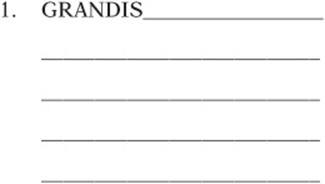
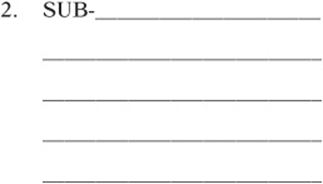
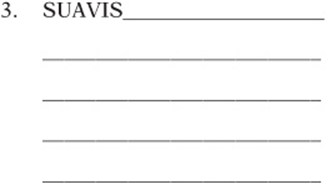
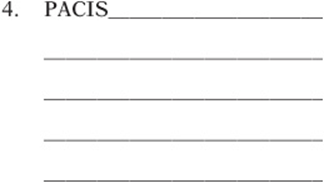
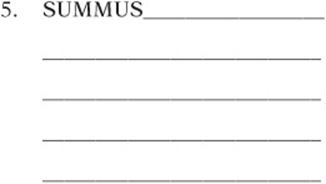
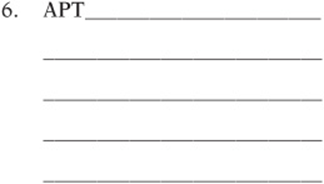
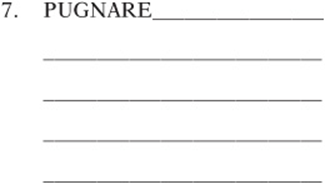
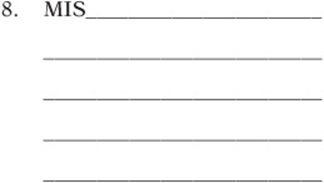
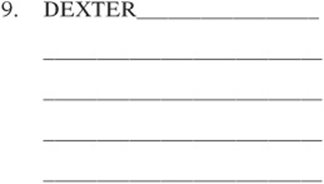
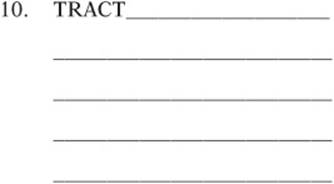
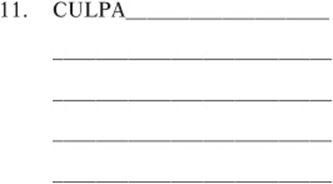
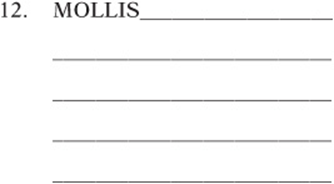
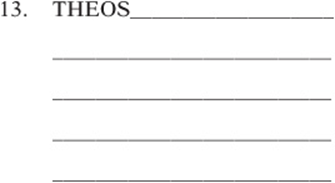
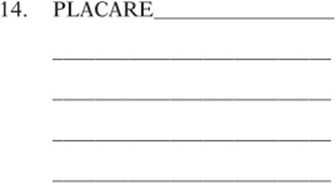
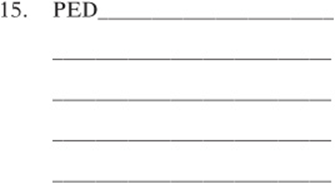
Vocabulary Unit 4 Exercise Set III
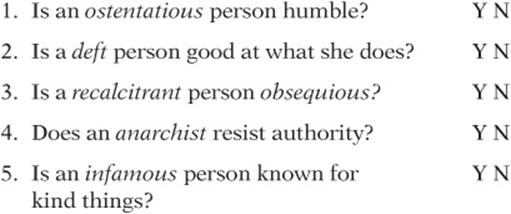
Write the word with the given meaning.
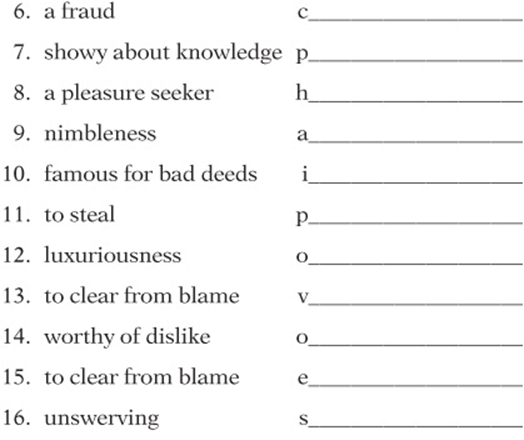
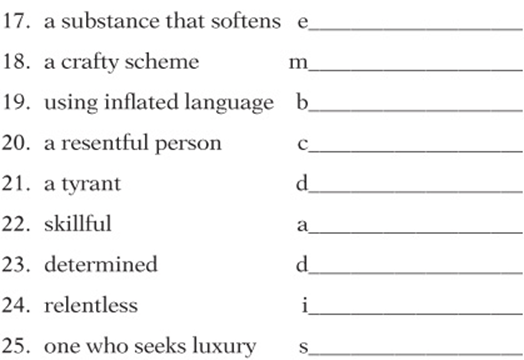
Write the correct form of the italicized word.
26. the quality of being recalcitrant
_____________________________________________
27. characterized by agility
_____________________________________________
28. characteristic of hypocrites
_____________________________________________
29. That which an anarchist seeks
_____________________________________________
30. To achieve vindication
_____________________________________________
Write the word with the given root.
31. wishing harm to others (vol)
_____________________________________________
32. stubbornness (per)
_____________________________________________
33. natural ability (apt)
_____________________________________________
34. a scheme (subter)
_____________________________________________
35. to soothe (suavis)
_____________________________________________
36. difficult to manipulate (tract)
_____________________________________________
37. to soothe (mollis)
_____________________________________________
38. wicked (fas)
_____________________________________________
39. to free from blame (culp)
_____________________________________________
40. model of excellence (para)
_____________________________________________
41. lacking generosity (mis)
_____________________________________________
Unit 4 Exercise Set I Answer Key
1. B If the soldiers are being commended, they must have done something good, which means that the missing word is positive. The phrase refusal to surrender tells us that dogged is the best choice.
bombastic = pompous
dogged = refusing to surrender
disputatious = argumentative
infamous = famous for evil acts
dexterous = skillful with the hands
2. B The patient is having a lot of pain and discomfort and wants to get rid of it. Alleviate is a perfect fit.
exonerate = to clear of blame
alleviate = to lessen
invigorate = to give strength to
perambulate = to move around
scrutinize = to examine closely
3. A The phrase even for the pretentious family leads us to believe that these statues must be quite pretentious. You want to pick words that relate to pretentiousness and luxury for both blanks.
ornate = overly decorated; ostentatious = showy
opulent = luxurious; nefarious = wicked
insipid = dull; pompous = arrogant
splenetic = irritable; grandiose = pretentious
gaudy = showy; mercurial = changing
4. B The opponents are bitter, which means that they are quite unhappy about something. They have been trying to get a particular law passed, and finally this President helps them pass the law. You want a word that means to soothe or please.
consummate = to make perfect
mollify = to soothe the anger of
vindicate = to clear from blame
purge = to get rid of
invoke = to call into being
5. E Con artists like to take advantage of people. Both words should describe a person who is easily taken advantage of. Gullible and dupe fit the best.
loftiness = excessive pride; chump = a pushover
infallibility = perfection; curmudgeon = resentful person
pacifism = love of peace; charlatan = a fraud
placidity = calm; ruse = a crafty scheme
gullibility = easily fooled; dupe = a pushover
6. E Despite implies that the second half of the sentence should provide a contrast to the first. The leader is remembered for his munificence, or generosity, which is a positive quality. Therefore the two words should be negative.
abominable = terrible; beneficent = doing good, kind
repugnant = offensive; magnanimous = generous
obstinate = stubborn; lithe = agile
steadfast = determined; benevolent = kind
odious = worthy of hate; malevolent = evil
7. A The lawyer deftly (skillfully) turns something that is negative into his advantage. This must mean that he is quite good at what he does. The word choice that best fits this is
paragon. paragon = the model of perfection
conviction = strongly held belief
braggart = one who boasts
machination = a crafty scheme
misanthrope = a hater of humankind
8. A The sentence tells us that the resort island is filled with luxury and splendor. Who would love that? A
sybarite. sybarite = an individual who seeks luxury
zealot = one who engages passionately in a cause
nihilist = one who does not believe anything can truly exist
narcissist = a person in love with his or her own image
ascetic = a person who lives a life of self-denial
9. E The technical foul is called when a player creates a foul that is obvious and flagrant. Egregious is a perfect choice.
preeminent = outstanding
peripheral = on the side
masochistic = enjoying one”s own pain
inexorable = relentless
egregious = flagrant, blatant
10. C A scamp is a mischievous person with a tendency toward crime. The word having indicates that the second word should support the first.
equanimity = calmness; filched = stole
bigotry = intolerance towards others; bilked = stole
aptitude = talent; pilfered = stole
predilection = preference; exculpated = freed from blame
agility = swiftness; razed = completely destroyed
Unit 4 Exercise Sets II and III Answer Key
Exercise Set II
1. GRANDIS: great, big grandeur, grandparent, grandiose, grandiloquent
2. SUB: under, secretly subtle, subcutaneous, subliminal, subterfuge, subservient, subconscious
3. SUAVIS: agreeable, sweet assuage, suave, sweet
4. PACIS: peace pacifist, peace, pacify, pacific
5. SUMMUS: highest summit, consummate, sum
6. APT: fit inept, aptitude, apt, adapt
7. PUGNARE: to fight pugnacity, impugn, pugnacious, repugnant
8. MIS: bad, wretched, hatred miserly, miserable, misanthrope, miser, misery, misogyny
9. DEXTER: skillful dexterity, dexterous, ambidextrous
10. TRACT: to pull subtract, abstract, attract, distract, contract, traction, intractable, tractor
11. CULPA: blame exculpate, inculpate, disculpate, culprit, culpable
12. MOLLIS: soft emollient, mollify
13. THEOS: god atheist, theology, enthusiasm, pantheist, theocracy, monotheism
14. PLACARE: to please placate, placid, placebo, complacent, complaisant, plea, please, displease
15. PED: instruct pedagogue, pedantic, pedant
Exercise Set III
1. N
2. Y
3. N
4. Y
5. N
6. charlatan
7. pedantic
8. hedonist
9. agility
10. infamous
11. pilfer
12. opulence
13. vindicate
14. odious
15. exonerate or exculpate
16. steadfast
17. emollient
18. machination
19. bombastic
20. curmudgeon
21. despot
22. adroit or adept
23. dogged
24. inexorable
25. sybarite
26. recalcitrance
27. agile
28. hypocritical
29. anarchy
30. vindicate
31. malevolent
32. pertinacity
33. aptitude
34. subterfuge
35. assuage
36. intractable
37. mollify
38. nefarious
39. exculpate
40. paragon
41. miserly
Vocabulary Unit 5
Vocabulary Lesson 29: Make Me!

![]() cajole (v) to persuade by using flattery
cajole (v) to persuade by using flattery
The clever eight-year-old girl successfully cajoled her parents into taking her to Disney World.
Synonyms: coax, wheedle, deceive
![]() exhort (v) to urge strongly (ex- thoroughly + hortari to urge)
exhort (v) to urge strongly (ex- thoroughly + hortari to urge)
The doctor exhorted his patient to stop smoking by explaining how dangerous a habit it really was.
Synonyms: provoke, instigate, rouse Antonyms: inhibit, discourage
![]() coerce (v) to persuade through the use of force
coerce (v) to persuade through the use of force
The bully coerced the smaller boy into handing over his lunch money with threats of wedgies and deadarms.
Synonyms: compel, intimidate
![]() induce (v) to cause (in- in + ducere to lead)
induce (v) to cause (in- in + ducere to lead)
After thirty-six hours of labor, the doctors decided to induce the baby”s birth with medication.
Synonyms: sway, incite, impel Antonyms: curb, stall
![]() coax (v) to persuade by using flattery
coax (v) to persuade by using flattery
The charming man used well-placed compliments to coax the pretty waitress into meeting him for a drink.
Synonyms: cajole, wheedle
![]() provoke (v) to stir up; to excite (pro- forth + vocare to call)
provoke (v) to stir up; to excite (pro- forth + vocare to call)
Eric provoked his older brother into fighting by whacking him on the head with his action figure.
Synonyms: irritate, rile, incite Antonyms: placate, assuage
![]() obligatory (adj) required (ob- to + ligare to bind)
obligatory (adj) required (ob- to + ligare to bind)
The obligatory jumps in the skating competition must be performed or the competitor loses points.
Synonyms: mandatory, compulsory Antonyms: optional, elective
![]() wheedle (v) to influence by flattery
wheedle (v) to influence by flattery
Synonyms: coax, cajole
![]() goad (v) to urge into action
goad (v) to urge into action
Synonyms: spur, incite, catalyze
![]() begrudge (v) to give in to something reluctantly
begrudge (v) to give in to something reluctantly
Synonyms: concede, acquiesce
![]() spur (v) to goad into action
spur (v) to goad into action
Synonyms: provoke, goad, incite
![]() prerequisite (n) a requirement (don”t confuse with perquisite: a perk)
prerequisite (n) a requirement (don”t confuse with perquisite: a perk)
Synonym: obligation
![]() resigned (adj) accepting of one”s fate
resigned (adj) accepting of one”s fate
Synonyms: begrudging, acquiescent
Vocabulary Lesson 30: Come to Your Senses!

![]() tactile (adj) able to be sensed by touch (tactilis to touch)
tactile (adj) able to be sensed by touch (tactilis to touch)
The petting zoo provides a fun tactile experience for children, allowing them to touch dozens of animals.
Synonym: palpable
![]() olfactory (adj) relating to the sense of smell (olere a to smell of + facere to make)
olfactory (adj) relating to the sense of smell (olere a to smell of + facere to make)
For those with a strong olfactory sense, the spray of a skunk is extremely pungent.
![]() gustatory (adj) relating to the sense of taste (gustare to taste)
gustatory (adj) relating to the sense of taste (gustare to taste)
The meal was a gustatory extravaganza; her taste buds were exploding from all the savory spices.
![]() auditory (adj) relating to the sense of hearing (audire to hear)
auditory (adj) relating to the sense of hearing (audire to hear)
Kris”s auditory deterioration prevented him from appreciating the subtle tonality of the music.
Synonym: aural
![]() discern (v) to perceive as separate; to sense keenly (dis- away + cernere distinguish, separate)
discern (v) to perceive as separate; to sense keenly (dis- away + cernere distinguish, separate)
The fog made it difficult for me to discern how many people stood at the far end of the parking lot.
Synonyms: perceive, distinguish, ascertain
![]() pungent (adj) having a sharp or irritating odor (pungere to sting)
pungent (adj) having a sharp or irritating odor (pungere to sting)
Many find garlic breath to be so pungent that they avoid cooking with the herb entirely.
Synonyms: piquant, zesty
![]() palpable (adj) detectable by touch (palpare to touch)
palpable (adj) detectable by touch (palpare to touch)
As the tightrope walker attempted to regain his balance, the tension in the audience was nearly palpable.
Synonyms: tangible, tactile
![]() ascertain (v) to learn for certain
ascertain (v) to learn for certain
Synonym: discern
![]() savory (adj) pleasant tasting; appetizing
savory (adj) pleasant tasting; appetizing
Synonym: palatable
![]() putrid (adj) rotten; having a foul odor (putris rotten)
putrid (adj) rotten; having a foul odor (putris rotten)
Synonyms: rancid, decayed
![]() myopic (adj) short-sightedness
myopic (adj) short-sightedness
Synonyms: narrow-minded, injudicious, undiscerning
![]() perceive (v) to become aware
perceive (v) to become aware
Synonyms: discern, ascertain
![]() aural (adj) relating to the sense of hearing (auris ear)
aural (adj) relating to the sense of hearing (auris ear)
Synonym: auditory
![]() tangible (adj) detectable by touch; substantial (tangere to touch)
tangible (adj) detectable by touch; substantial (tangere to touch)
Synonyms: palpable, concrete
Vocabulary Lesson 31: Stop It!

![]() thwart (v) to stop something before it is able to succeed
thwart (v) to stop something before it is able to succeed
Thanks to inside information, the police department was able to thwart the bank robbery before it even began.
Synonyms: circumvent, stymie, foil Antonym: abet
![]() abstain (v) to refrain from action (abs- from + tenere to hold)
abstain (v) to refrain from action (abs- from + tenere to hold)
An alcoholic for twenty years, Robert was unable to abstain from drinking when offered a beer.
Synonyms: forgo, eschew Antonym: indulge
![]() deterrent (n) something that acts to discourage (de- away + terrere to frighten)
deterrent (n) something that acts to discourage (de- away + terrere to frighten)
The picture of the vicious lion baring his teeth was an effective deterrent against kids” reaching into the cage.
Synonyms: hindrance, impediment Antonym: incentive
![]() impede (v) to slow the progress of, to block
impede (v) to slow the progress of, to block
The orange cones did not do much to impede the progress of the cars; they just drove right over them.
Synonyms: hinder, obstruct Antonyms: assist, expedite
![]() hinder (v) to slow the progress of
hinder (v) to slow the progress of
The weed-killer sprayed on the garden successfully hindered the growth of the unwanted plants.
Synonyms: impede, obstruct, thwart Antonyms: promote, facilitate
![]() curtail (v) to make less (curtus short)
curtail (v) to make less (curtus short)
In an effort to lose weight, Mark tried to curtail his ice cream consumption.
Synonym: diminish Antonyms: extend, boost
![]() impediment (n) something that works to impede progress; a hindrance
impediment (n) something that works to impede progress; a hindrance
Louise had a speech impediment that caused her to stutter, but that did not keep her from being a DJ.
Synonyms: impedance, encumbrance, hindrance Antonym: aid
![]() stymie (v) to present an obstacle to
stymie (v) to present an obstacle to
Synonyms: hinder, impede
![]() dissuade (v) to persuade not to do something (dis- against + suadere to urge)
dissuade (v) to persuade not to do something (dis- against + suadere to urge)
Synonyms: deter, divert
![]() refrain (v) to hold back from doing (re- back + frenare to restrain)
refrain (v) to hold back from doing (re- back + frenare to restrain)
Synonyms: halt, inhibit
![]() abstinence (n) the voluntary avoidance of something (abs- from + tenere to hold)
abstinence (n) the voluntary avoidance of something (abs- from + tenere to hold)
![]() tentative (adj) uncertain
tentative (adj) uncertain
The tentative schedule was not set in stone.
Synonyms: cautious, diffident
![]() hamper (v) to restrict the progress of
hamper (v) to restrict the progress of
Synonyms: impede, hinder
![]() abstemious (adj) sparing or moderate in consumption
abstemious (adj) sparing or moderate in consumption
Vocabulary Lesson 32: Must Be the Money

![]() destitute (adj) completely penniless (destitutus abandoned)
destitute (adj) completely penniless (destitutus abandoned)
The stock market collapse of 2000–2002 left many an adept investor destitute.
Synonyms: impoverished, penniless Antonyms: affluent, wealthy
![]() frugal (adj) economical; good with money (frux fruit, profit)
frugal (adj) economical; good with money (frux fruit, profit)
A frugal shopper does not make a purchase before checking many other places for a lower price.
Synonyms: thrifty, parsimonious Antonyms: squandering, prodigal
![]() remuneration (n) payment for services (re- back + munerari to give)
remuneration (n) payment for services (re- back + munerari to give)
The job is tedious, but the remuneration is worthwhile—over fifty dollars per hour!
Synonyms: income, earnings
![]() impecunious (adj) without money (im- not + pecunia money)
impecunious (adj) without money (im- not + pecunia money)
You would never guess that Marisa was so impecunious if you watched her spend money at the mall.
Synonyms: destitute, penurious Antonyms: affluent, wealthy
![]() improvident (adj) failing to provide for the future (im- not + pro- ahead + videre to see)
improvident (adj) failing to provide for the future (im- not + pro- ahead + videre to see)
Despite once being a millionaire, Claudio was now broke due to his improvident spending decisions.
Synonyms: prodigal, negligent, spendthrifty Antonyms: thrifty, frugal
![]() parsimony (n) excessive thriftiness (parsi- to spare, save + monium an action, a condition)
parsimony (n) excessive thriftiness (parsi- to spare, save + monium an action, a condition)
Al”s parsimoniousness reached an extreme when he hand-delivered a bill rather than spending money on a stamp.
Synonyms: miserliness, stinginess Antonyms: magnanimity, munificence
![]() venal (adj) able to be bribed (venalis that is for sale)
venal (adj) able to be bribed (venalis that is for sale)
The local outlaws knew that the venal sheriff could be paid to let them escape.
Synonym: corruptible
![]() thrifty (adj) economical; good with money
thrifty (adj) economical; good with money
Synonyms: frugal, provident, parsimonious
![]() pauper (n) an extremely poor individual (pau little + parere to get)
pauper (n) an extremely poor individual (pau little + parere to get)
Synonym: mendicant
![]() mercenary (n) one who gives his services to the highest bidder (merces pay, reward)
mercenary (n) one who gives his services to the highest bidder (merces pay, reward)
![]() perquisite (n) payment or privilege received in addition to wages (perk for short)
perquisite (n) payment or privilege received in addition to wages (perk for short)
Debra enjoyed the perquisites of being the newspaper”s culture editor, such as free tickets to the opera and ballet.
![]() insolvent (adj) bankrupt (in- not + solvent able to pay what one owes)
insolvent (adj) bankrupt (in- not + solvent able to pay what one owes)
Synonym: broke
![]() indigent (adj) impoverished, poor (indu- within + egere to need, want)
indigent (adj) impoverished, poor (indu- within + egere to need, want)
Synonym: destitute
![]() pecuniary (adj) pertaining to money (pecunia money)
pecuniary (adj) pertaining to money (pecunia money)
Vocabulary Lesson 33: Saw That Coming

![]() prophecy (n) a prediction of the future (pro- before + phanai to speak)
prophecy (n) a prediction of the future (pro- before + phanai to speak)
The prophecy told of a boy who would soon be born to save the human race from extinction.
Synonyms: divination, prognostication
![]() harbinger (n) a precursor
harbinger (n) a precursor
Many consider the robin to be a harbinger of spring.
Synonyms: omen, forerunner
![]() augur (v) to predict the future (an augur in ancient Rome was an official who foretold events)
augur (v) to predict the future (an augur in ancient Rome was an official who foretold events)
The “psychic network” claims to augur what is to come for its callers, but most believe it to be a hoax.
Synonyms: prophesy, divine
![]() premonition (n) a forewarning (pre- before + monere to warn)
premonition (n) a forewarning (pre- before + monere to warn)
The traveler had a premonition of the upcoming disaster and refused to board the plane.
Synonyms: presentiment, hunch
![]() portend (v) to give advance warning (por- forward + tendere to extend)
portend (v) to give advance warning (por- forward + tendere to extend)
The weather service looks for atmospheric signs that portend violent storms.
Synonyms: foretell, foreshadow
![]() prescient (adj) having knowledge of future events (pre- before + scientia knowledge)
prescient (adj) having knowledge of future events (pre- before + scientia knowledge)
The seemingly prescient gambler made a fortune at the racetrack, always knowing which horse would win.
Synonym: clairvoyant
![]() omen (n) a sign of something to come
omen (n) a sign of something to come
The nervous bride took the death of the minister who was to marry them as an omen that her marriage was doomed.
Synonyms: portent, prognostication
![]() foresight (n) the ability to see things coming (fore- before)
foresight (n) the ability to see things coming (fore- before)
Synonyms: anticipation, forethought
![]() clairvoyant (n) one with great foresight (clair- clear + voyant seeing)
clairvoyant (n) one with great foresight (clair- clear + voyant seeing)
Synonyms: visionary, psychic
![]() portent (n) an omen of a future event (por- forward + tendere to extend)
portent (n) an omen of a future event (por- forward + tendere to extend)
Synonym: omen
![]() preempt (v) to block by acting first (pre- before)
preempt (v) to block by acting first (pre- before)
Synonym: anticipate
![]() premeditate (v) to plan ahead of time (pre- before + meditari to consider)
premeditate (v) to plan ahead of time (pre- before + meditari to consider)
Synonym: plot
![]() prophetic (adj) able to tell the future (pro- before + phanai to speak)
prophetic (adj) able to tell the future (pro- before + phanai to speak)
Synonym: prescient
![]() bode (v) to be an omen for something
bode (v) to be an omen for something
A red sky at dawn bodes ill for sailors.
Synonym: portend
Vocabulary Lesson 34: Old and Worn Out

![]() archaic (adj) ancient (arch ancient)
archaic (adj) ancient (arch ancient)
The boat”s archaic navigation system confused the young sailor, who knew how to read only the newer consoles.
Synonyms: primitive, antiquated Antonyms: modern, novel
![]() relic (n) an object from an ancient time (re- back + linquere to leave)
relic (n) an object from an ancient time (re- back + linquere to leave)
The relic found at the ancient burial site once served as a water pitcher for an Aztec family.
Synonyms: artifact, remnant
![]() decrepit (adj) worn out from old age or use (de- down + crepare to break, to crack)
decrepit (adj) worn out from old age or use (de- down + crepare to break, to crack)
The decrepit swing set in the schoolyard had been used by four generations of children.
Synonyms: feeble, battered, threadbare
![]() antiquated (adj) obsolete; outdated (antiquus ancient)
antiquated (adj) obsolete; outdated (antiquus ancient)
The computer technology in rural Italy is quite antiquated; even Internet access is rare.
Synonyms: archaic, primitive Antonyms: modern, novel
![]() antediluvian (adj) very old (ante- before + diluvim a flood, in reference to the Biblical flood)
antediluvian (adj) very old (ante- before + diluvim a flood, in reference to the Biblical flood)
The piece of pottery they found was an antediluvian bowl that was made over 4,000 years ago.
Synonyms: primeval, archaic Antonyms: modern, novel
![]() defunct (adj) no longer in existence (defunctus dead, off-duty)
defunct (adj) no longer in existence (defunctus dead, off-duty)
Telegrams as a means of communication are defunct; the existence of email and telephones made them obsolete.
Synonyms: dead, extinct Antonym: extant
![]() perpetuate (v) to keep from dying out (per- through + petere to seek, go to)
perpetuate (v) to keep from dying out (per- through + petere to seek, go to)
The myth that cigarettes don”t harm you has been perpetuated by the cigarette companies.
Synonyms: immortalize, commemorate
![]() outmoded (v) out of fashion; obsolete
outmoded (v) out of fashion; obsolete
Synonyms: anachronistic, obsolete
![]() artifact (n) an object of historical interest (arte- skill + factum thing made)
artifact (n) an object of historical interest (arte- skill + factum thing made)
Synonyms: relic, remnant
![]() obsolete (adj) outmoded (ob- away + solere to be used)
obsolete (adj) outmoded (ob- away + solere to be used)
Synonyms: anachronistic, antiquated
![]() dilapidated (adj) worn out
dilapidated (adj) worn out
Synonyms: decrepit, feeble
![]() threadbare (adj) shabby; worn down such that the threads show
threadbare (adj) shabby; worn down such that the threads show
Synonyms: dilapidated, decrepit
![]() archive (n) a collection of historically interesting material (arch ancient)
archive (n) a collection of historically interesting material (arch ancient)
Vocabulary Lesson 35: Feelings

![]() apathy (n) lack of feeling; lack of interest (a- without + pathos emotion)
apathy (n) lack of feeling; lack of interest (a- without + pathos emotion)
Mark was apathetic about Stephanie”s desire to keep her laptop clean; he put his fingerprints all over the screen.
Synonyms: indifference, torpor Antonym: intensity
![]() apprehensive (adj) anxious about what is to come
apprehensive (adj) anxious about what is to come
It is normal to feel apprehensive on the morning of your driver”s test; it is a nerve-wracking experience.
Synonyms: uneasy, concerned Antonyms: fearless, intrepid, dauntless
![]() contrite (adj) repentant (con- with + terere to wear down)
contrite (adj) repentant (con- with + terere to wear down)
The contrite murder suspect scored points with the judge, who appreciated her remorseful attitude.
Synonym: remorseful Antonyms: unrepentant, inveterate
![]() lament (v) to mourn, to show sorrow (lamentum a wailing)
lament (v) to mourn, to show sorrow (lamentum a wailing)
The fans lamented the passing of John Lennon; they cried as if they had lost a brother.
Synonyms: bemoan, grieve Antonym: celebrate
![]() console (v) to comfort (con- with + solari to comfort)
console (v) to comfort (con- with + solari to comfort)
There were many family members on hand to console the grieving widow at her husband”s funeral.
Synonyms: soothe, calm Antonyms: enrage, provoke
![]() impassive (adj) lacking emotion (im- not + passivus capable of feeling)
impassive (adj) lacking emotion (im- not + passivus capable of feeling)
Joy”s impassiveness about her grades upset her parents; they wanted her to care more about her work.
Synonyms: indifferent, apathetic Antonyms: intense, demonstrative
![]() ignominy (n) humiliation; shame
ignominy (n) humiliation; shame
Football is so important in our town that dropping a pass in the end zone is more ignominious than going to prison.
Synonyms: disgrace, dishonor Antonyms: gratification, dignity
![]() pathos (n) pity; feeling of sorrow (pathos emotion)
pathos (n) pity; feeling of sorrow (pathos emotion)
Synonyms: anguish, woe
![]() empathy (n) the ability to identify with another”s feelings (em- in + pathos feeling)
empathy (n) the ability to identify with another”s feelings (em- in + pathos feeling)
![]() penitent (adj) feeling remorse for one”s actions
penitent (adj) feeling remorse for one”s actions
Synonyms: repentant, contrite
![]() ambivalent (adj) having mixed feelings toward something (ambi- both)
ambivalent (adj) having mixed feelings toward something (ambi- both)
Synonyms: conflicted, irresolute
![]() poignant (adj) causing a sharp emotional response (poindre to prick)
poignant (adj) causing a sharp emotional response (poindre to prick)
Synonyms: stirring, moving
![]() remorse (n) regret for past deeds (re- again + mordere to bite)
remorse (n) regret for past deeds (re- again + mordere to bite)
Synonyms: anguish, contrition
![]() antipathy (n) strong feelings against something (anti- against + pathos feeling)
antipathy (n) strong feelings against something (anti- against + pathos feeling)
Vocabulary Unit 5 Exercise Set I
Time—8 minutes
For each question, select the best answer among the choices given. Note any vocabulary words to review on the Hit List below.
1. Elizabeth”s assistant was ------ with his words and spoke only when it was absolutely necessary.
(A) improvident
(B) parsimonious
(C) antiquated
(D) clairvoyant
(E) sympathetic
2. The salary Julia received for her job was unsatisfactory, but the ------ were phenomenal: a dental plan, five weeks of vacation, and a company car.
(A) perquisites
(B) harbingers
(C) mercenaries
(D) impediments
(E) resolutions
3. In spite of his aggressive attempts to ------ us into doing something against the law, we were able to ------ from partaking in the illicit act.
(A) goad . . refrain
(B) cajole . . stagnate
(C) coax . . rebound
(D) impede . . abstain
(E) dissuade . . recuperate
4. Because the team had been eliminated from the playoffs, they played with ------ in their final five games, losing by an average of forty points per game.
(A) fortitude
(B) apathy
(C) dread
(D) vigor
(E) resolution
5. The wise old man who lived at the top of the mountain is visited often by villagers looking for him to use his ------ powers to ------ their future.
(A) olfactory . . augur
(B) tactile . . portend
(C) prescient . . divine
(D) prophetic . . console
(E) clairvoyant . . perjure
6. A departure from the bland food and mundane atmosphere that characterized our recent dining experiences, Chez Henri provided ------ cuisine and ------ ambience.
(A) pungent . . a hedonistic
(B) savory . . a transcendent
(C) piquant . . an artificial
(D) obsolete . . a supreme
(E) palatable . . an imperious
7. Management”s decision to raise the salaries of the workers was more pragmatic than ------; the executives didn”t want so much to be generous as to keep the assembly lines moving.
(A) magnanimous
(B) mellifluous
(C) rigid
(D) masochistic
(E) frugal
8. After giving birth to her first child, the woman was finally able to ------ with her mother about the pain and discomfort that come with childbirth.
(A) empathize
(B) collaborate
(C) perpetuate
(D) premeditate
(E) associate
9. The defendant”s contrite behavior was not an act; he truly felt great ------ for the crime of which he was accused.
(A) apprehension
(B) indigence
(C) foresight
(D) bliss
(E) remorse
10. Even though she was unable to walk without a limp, she did not allow this ------ to ------ her ability to run short sprints for the track team.
(A) deterrent . . spur
(B) barrier . . impel
(C) abstinence . . thwart
(D) impediment . . hamper
(E) pathos . . hinder

Vocabulary Unit 5 Exercise Set II
Write the meaning next to each root, and then write as many words as you can that contain the root.
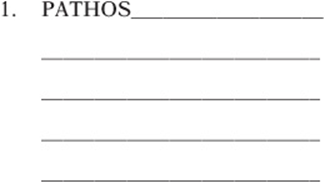
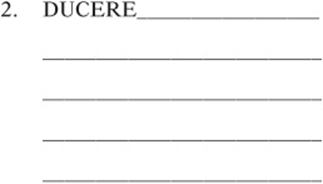
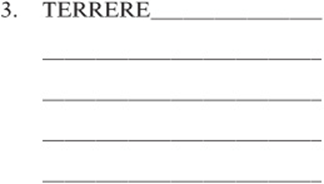
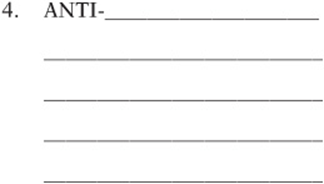
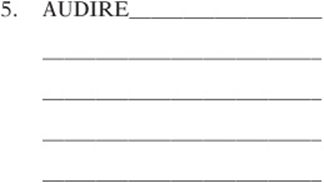
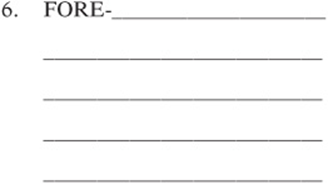
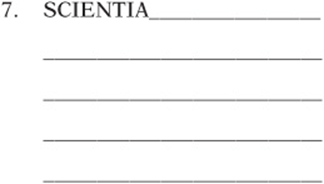
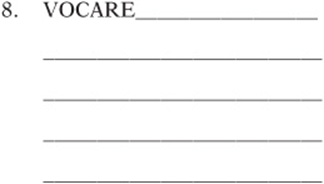
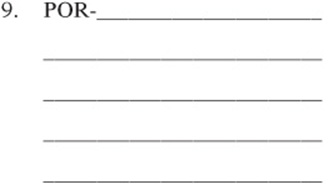
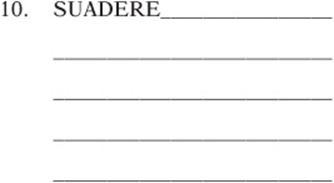
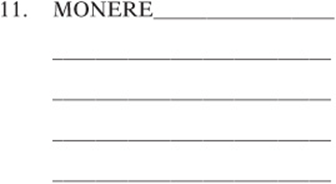
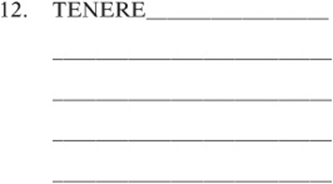
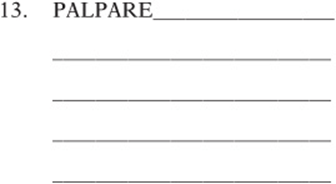
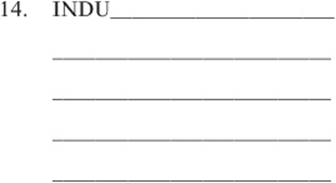
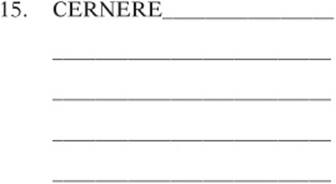
Vocabulary Unit 5 Exercise Set III
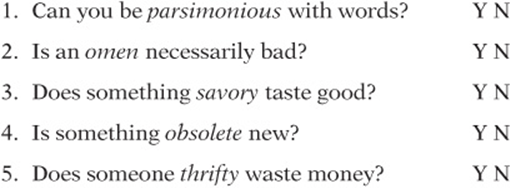
Write the word with the given meaning.
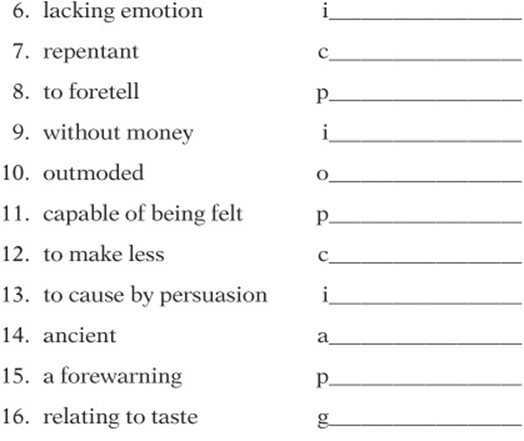
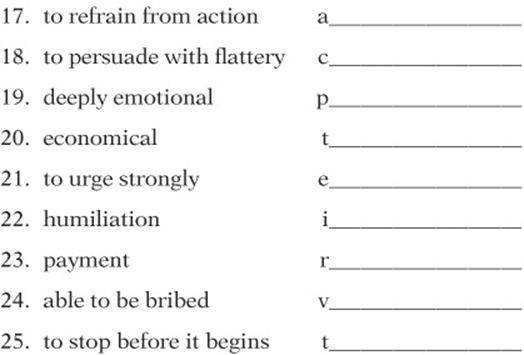
Write the correct form of the italicized word.
26. showing apathy
_____________________________________________
27. to act as a deterrent
_____________________________________________
28. the act of abstaining
_____________________________________________
29. the act of touching something that is palpable
_____________________________________________
30. the act of cajoling
_____________________________________________
Write the word with the given root.
31. to urge into motion (citare)
_____________________________________________
32. a prediction of the future (pro-)
_____________________________________________
33. lacking feeling (a-)
_____________________________________________
34. relating to smell (olere)
_____________________________________________
35. extremely poor individual (pau)
_____________________________________________
36. to comfort (solari)
_____________________________________________
37. economical (frux)
_____________________________________________
38. to stir up (vocare)
_____________________________________________
39. worn out (crepare)
_____________________________________________
40. to make less (curtus)
_____________________________________________
41. regret (mordere)
_____________________________________________
Unit 5 Exercise Set I Answer Key
1. B If the assistant only spoke when it was absolutely necessary, then he was frugal or sparing with his words.
improvident = not economical
parsimonious = excessively thrifty
antiquated = very old
clairvoyant = having great foresight
sympathetic = feeling pity
2. A The but indicates a contrast. Extra benefits like a dental plan, a vacation, and a car are called perks or
perquisites. perquisite = a perk, a dividend
harbinger = a sign of something to come
mercenary = one who works for the highest bidder
impediment = an obstruction
resolution = firm determination
3. A The phrase in spite indicates a contrast in the second half of the sentence. If he was aggressive in getting us to do something illicit (illegal), the contrast suggests that we didn”t give in. Words like persuade and stay away would work.
goad = to urge; refrain = to hold back from doing
cajole = to persuade; stagnate = to remain still
coax = to persuade; rebound = to bounce back
impede = to block; abstain = to avoid something
dissuade = to deter; recuperate = to recover
4. B The sentence implies that the team has nothing left to play for. The fact that they also consistently lose by forty points indicates that they are playing with a lack of heart.
fortitude = strength of mind; strength to endure
apathy = lack of concern or effort
dread = profound fear; anxious anticipation
vigor = physical energy or strength
resolution = firm determination
5. C The word future is the key context clue. What can one do to the future? A wise man in particular might be able to predict it.
olfactory = related to smell; augur = to predict the future
tactile = touchable; portend = to predict the future
prescient = clairvoyant; divine = to predict the future
prophetic = prescient; console = to comfort
clairvoyant = able to predict future; perjure = to lie under oath
6. B The word departure indicates a contrast, and the parallelism between the clauses sets up the contrast. The two words must be the opposite of bland and mundane, respectively.
pungent = strong; hedonistic = pleasure-seeking
savory = delicious; transcendent = inspiring
piquant = spicy; artificial = not genuine
obsolete = outmoded; supreme = great
palatable = edible; imperious = overbearing
7. A The second clause logically extends the idea of the first. The decision was done for pragmatic (practical) reasons rather than out of generosity to the employees. Look for a word that means generous.
magnanimous = generous
mellifluous = smooth-flowing
rigid = inflexible
masochistic = enjoying one”s own pain
frugal = thrifty; disinclined to waste money
8. A The woman now knows first hand about the pain and discomfort associated with childbirth. Because she has now experienced what her mother went through, she can now
empathize with her about the sensations.
empathize = to identify with another”s feelings
collaborate = work together
perpetuate = cause to continue
premeditate = plan in advance
9. E If the contrite behavior was not an act, then the defendant must truly feel regret for what was done.
apprehension = nervousness
indigence = neediness
foresight = ability to see things coming
bliss = extreme happiness
remorse = regret
10. D Even though indicates an unexpected twist. The inability to walk without a limp is certainly a nuisance. It would make sense that the first word should mean hindrance and the second word should mean prevent.
deterrent = something that discourages; spur = to goad into action
barrier = a block; impel = to urge
abstinence = avoidance; thwart = to stop
impediment = barrier; hamper = to hinder
pathos = sorrow; hinder = to obstruct
Unit 5 Exercise Sets II and III Answer Key
Exercise Set II
1. PATHOS: emotion apathy, sympathy, empathy, osteopathy, pathogen, pathetic, psychopath
2. DUCERE: to lead induce, conduction, conducive, produce, deduce
3. TERRERE: to frighten deter, deterrent, terrible, terrify, terror, terrific
4. ANTI-: against antipathy, antibiotic, antonym, antiseptic, antagonist, antisocial
5. AUDIRE: to hear audition, auditorium, auditory, inaudible, audible
6. FORE-: before foremost, foretell, forethought, forehand, forecast, forebear, foresight
7. SCIENTIA: knowledge scientist, omniscient, prescient, conscientious
8. VOCARE: to call vocabulary, convocation, provoke, revoke, convoke, vocation, invoke, advocate, equivocate
9. POR-: forward portent, portend, portray
10. SUADERE: to urge sway, persuasion, persuade, dissuade
11. MONERE: to warn premonition, summon, admonish, monitor
12. TENERE: to hold sustain, abstain, contain, detain, entertain, tenable, tenacity, pertinacity, retain, obtain, pertain
13. PALPARE: to touch palpate, palpable, palpatation
14. INDU: in, within indigenous, industrial, indigent, industry
15. CERNERE: to separate discern, certain, concern, excrement, secretary
Exercise Set III
1. Y
2. N
3. Y
4. N
5. N
6. impassive
7. contrite
8. portend
9. insolvent, impecunious
10. obsolete
11. palpable
12. curtail
13. impel, induce
14. archaic
15. premonition
16. gustatory
17. abstain
18. cajole
19. poignant
20. thrifty
21. exhort
22. ignominy
23. remuneration
24. venal
25. thwart
26. apathetic
27. deter
28. abstinence
29. palpation
30. cajolery
31. incite
32. prophecy
33. apathetic
34. olfactory
35. pauper
36. console
37. frugal
38. provoke
39. decrepit
40. curtail
41. remorse
Vocabulary Unit 6
Vocabulary Lesson 36: What the Heck?

![]() ambiguous (adj) unclear in meaning (ambigere to wander)
ambiguous (adj) unclear in meaning (ambigere to wander)
The teacher”s ambiguous instructions left us with no idea of what we were supposed to do.
Synonyms: vague, obscure Antonyms: apparent, lucid
![]() obscure (adj) not easily understood; indistinct (obscurus darkness)
obscure (adj) not easily understood; indistinct (obscurus darkness)
The comedian”s jokes contained obscure references that left the audience confused and silent.
Synonyms: vague, enigmatic, cryptic Antonyms: evident, lucid
![]() equivocal (adj) deliberately ambiguous or misleading (equi- same + vocare to call)
equivocal (adj) deliberately ambiguous or misleading (equi- same + vocare to call)
The defendant”s equivocal answers made it hard for the prosecutor to prove his case.
Synonyms: evasive, indirect Antonyms: straightforward, forthright, candid
![]() convoluted (adj) intricate and hard to follow (con- together + volvere to roll)
convoluted (adj) intricate and hard to follow (con- together + volvere to roll)
The instructions in this manual are so convoluted that I don”t even know where to begin.
Synonyms: cryptic, inscrutable, incomprehensible Antonyms: coherent, intelligible
![]() cryptic (adj) enigmatic; mysterious (crypto concealed, secret)
cryptic (adj) enigmatic; mysterious (crypto concealed, secret)
The soldier”s cryptic reply over the radio to his captain suggested that something was amiss.
Synonyms: cryptic, obscure, incomprehensible Antonyms: coherent, intelligible
![]() unfathomable (adj) impossible to comprehend (un- not + fathom to grasp)
unfathomable (adj) impossible to comprehend (un- not + fathom to grasp)
The idea that time slows as our speed increases is unfathomable to most of us.
Synonyms: baffling, impenetrable, inscrutable Antonyms: coherent, intelligible
![]() nebulous (adj) vague; indefinite (nebula mist)
nebulous (adj) vague; indefinite (nebula mist)
Bill”s memory of the car accident was nebulous; he remembered only bits and pieces of the ordeal.
Synonyms: hazy, unclear Antonym: lucid
![]() enigma (n) a mystery or riddle (oenigma riddle)
enigma (n) a mystery or riddle (oenigma riddle)
Synonyms: conundrum, riddle
![]() esoteric (adj) difficult to understand (Gr esoterikos belonging to an inner circle)
esoteric (adj) difficult to understand (Gr esoterikos belonging to an inner circle)
![]() ramble (v) to wander aimlessly, either verbally or physically
ramble (v) to wander aimlessly, either verbally or physically
Synonyms: stray, babble
![]() desultory (adj) aimless; prone to random digressions (desultorious skipping about)
desultory (adj) aimless; prone to random digressions (desultorious skipping about)
![]() digress (v) to go off topic (dis- away + gradi to step, to go)
digress (v) to go off topic (dis- away + gradi to step, to go)
Synonyms: diverge, deviate, ramble
![]() profound (adj) deep; insightful (pro- forth + fundus bottom)
profound (adj) deep; insightful (pro- forth + fundus bottom)
Synonyms: philosophical, sagacious
Vocabulary Lesson 37: True or False?

![]() candor (n) honesty; straightforwardness (candere to shine)
candor (n) honesty; straightforwardness (candere to shine)
I appreciated my doctor”s candor; I prefer a straightforward approach when discussing my health.
Synonyms: forthrightness, frankness Antonyms: disingenuousness, fraudulence, equivocation
![]() affect (v) to put on airs; to behave unnaturally
affect (v) to put on airs; to behave unnaturally
Hoping to fit in while in London, Jules affected a British accent.
Synonyms: feign, impersonate
![]() veracity (n) truthfulness (verax true)
veracity (n) truthfulness (verax true)
Since we can”t test the veracity of his statements, we will never know for sure if he was telling the truth.
Synonyms: sincerity, candor Antonyms: fallacy, falsehood
![]() debunk (v) to expose something as fraudulent (bunkum nonsense)
debunk (v) to expose something as fraudulent (bunkum nonsense)
The DA knew that the cop was crooked and made it his mission to debunk the officer”s claims.
Synonyms: uncover, reveal Antonyms: conceal, camouflage
![]() apocryphal (adj) of doubtful authenticity (apo- away + kryptein hide)
apocryphal (adj) of doubtful authenticity (apo- away + kryptein hide)
Before they found out it was a fake, the apocryphal Van Gogh painting sold for over a million dollars.
Synonyms: counterfeit, forged Antonym: authentic
![]() forthright (adj) honest; straightforward
forthright (adj) honest; straightforward
The student”s forthright admission of guilt was appreciated by the principal, who reduced his suspension.
Synonyms: candid, frank Antonyms: deceitful, treacherous
![]() disingenuous (adj) insincere; crafty (dis- away from + genuinus natural)
disingenuous (adj) insincere; crafty (dis- away from + genuinus natural)
Daphne”s expression of remorse was clearly disingenuous, because she did not feel any regret for her actions.
Synonyms: deceitful, treacherous Antonyms: forthright, candid
![]() candid (adj) straightforward; honest (candere to shine)
candid (adj) straightforward; honest (candere to shine)
Synonyms: frank, forthright
![]() dubious (adj) doubtful (dubium doubt)
dubious (adj) doubtful (dubium doubt)
Synonyms: suspect, questionable
![]() prevaricate (v) to lie (pre- before + varicare to straddle)
prevaricate (v) to lie (pre- before + varicare to straddle)
Synonyms: equivocate, fabricate
![]() verisimilitude (n) the quality of appearing to be true (verax- true + similis like)
verisimilitude (n) the quality of appearing to be true (verax- true + similis like)
![]() outspoken (adj) candid and unsparing in speech
outspoken (adj) candid and unsparing in speech
Synonyms: forthright, frank
![]() fraudulent (adj) deceitful (fraus deceit)
fraudulent (adj) deceitful (fraus deceit)
Synonyms: duplicitous; crooked
![]() facade (n) outward appearance; a false front (faccia face)
facade (n) outward appearance; a false front (faccia face)
Synonyms: superficiality, frontispiece
Vocabulary Lesson 38: Arts and Entertainment

![]() mirth (n) merriment; laughter
mirth (n) merriment; laughter
The little boy could not contain his mirth when playing with the bubbles.
Synonyms: jollity, levity, gaiety Antonyms: melancholy, dejection, despondency
![]() aesthetic (adj) relating to beauty or a theory of beauty (aisthetikos Gr perception)
aesthetic (adj) relating to beauty or a theory of beauty (aisthetikos Gr perception)
The beautiful colors that emerged from the crystal when struck by the sunlight were aesthetically pleasing.
![]() satire (n) a mocking literary or dramatic work (satira a poetic medley)
satire (n) a mocking literary or dramatic work (satira a poetic medley)
Animal Farm by George Orwell is a satire that mocks socialism.
Synonyms: burlesque, parody, lampoon, travesty, spoof
![]() curator (n) the individual in charge of a museum (curare to take care of)
curator (n) the individual in charge of a museum (curare to take care of)
The curator in charge of the Louvre in Paris controls the Mona Lisa, perhaps the world”s most famous painting.
![]() witticism (n) a clever or funny remark
witticism (n) a clever or funny remark
Will Rogers was famous for his witticisms about American life.
Synonyms: epigram, bon mot, quip, badinage
![]() jocular (adj) done in a joking way (jocus joke)
jocular (adj) done in a joking way (jocus joke)
Jeff”s jocular tone relaxed the visitors trapped in the elevator; he even made a few people laugh.
Synonyms: facetious, waggish, salty Antonyms: despondent, somber, morose, plaintive, lugubrious
![]() malapropism (n) the outrageous misuse of a word
malapropism (n) the outrageous misuse of a word
Saying “for all intensive purposes” instead of “for all intents and purposes” is a classic example of a malapropism.
Synonyms: misusage, solecism, catachresis
![]() levity (n) a lack of seriousness (levis light in weight)
levity (n) a lack of seriousness (levis light in weight)
Synonyms: frivolity, flippancy
![]() bard (n) a skilled poet
bard (n) a skilled poet
Synonyms: sonneteer, versifier
![]() parody (n) a spoof (para- beside + ode song)
parody (n) a spoof (para- beside + ode song)
Synonyms: burlesque, lampoon, travesty, satire
![]() epic (n) a lengthy poem that celebrates the life of a hero (Gr epos word, story)
epic (n) a lengthy poem that celebrates the life of a hero (Gr epos word, story)
![]() aesthete (n) a person interested in the pursuit of beauty (Gr aisthetikos sensitive)
aesthete (n) a person interested in the pursuit of beauty (Gr aisthetikos sensitive)
![]() dilettante (n) one who dabbles in an art (dilettare to delight)
dilettante (n) one who dabbles in an art (dilettare to delight)
Synonym: amateur
![]() lampoon (v) to make fun of
lampoon (v) to make fun of
Synonyms: satirize, mock, parody
Vocabulary Lesson 39: You”re in Trouble

![]() chastise (v) to punish or criticize (castus pure)
chastise (v) to punish or criticize (castus pure)
The congressman was chastised in the media for his ties to big business.
Synonyms: condemn, rebuke Antonyms: applaud, hail
![]() reprove (v) to scold (re- not + probus worthy)
reprove (v) to scold (re- not + probus worthy)
The teacher reproved her students strongly for talking during her lecture.
Synonyms: rebuke, berate, reprimand Antonyms: hail, compliment, acclaim
![]() reprehensible (adj) worthy of blame or censure
reprehensible (adj) worthy of blame or censure
The woman could not believe that her son would do something so reprehensible as torturing small animals.
Synonyms: culpable, disgraceful, censurable Antonym: laudable
![]() culpable (adj) deserving blame (culpa blame)
culpable (adj) deserving blame (culpa blame)
Although the DNA evidence clearly proved he was culpable, the defendant continued to claim innocence.
Synonyms: guilty, blameworthy Antonyms: innocent, blameless, sinless
![]() indict (v) to accuse of an offense (dictare to declare)
indict (v) to accuse of an offense (dictare to declare)
The mob boss was indicted on ten counts of money laundering.
Synonyms: accuse, impeach Antonyms: acquit, exonerate
![]() reproach (v) to blame; to express disapproval
reproach (v) to blame; to express disapproval
After hitting the softball through the window, Ella was reproached by her mother for being so careless.
Synonyms: censure, condemn, rebuke Antonyms: compliment, commend
![]() rebuke (v) to scold (re- back + buke to strike)
rebuke (v) to scold (re- back + buke to strike)
Because Belinda was rebuked the last time she left her toys out, she cleaned up thoroughly to avoid another scolding.
Synonyms: reprove, reproach, reprehend, reprimand, chide
![]() castigate (v) to punish severely
castigate (v) to punish severely
Synonyms: reprimand, berate, chastise
![]() impeach (v) to accuse of wrongdoing (im- in + pedica shackle)
impeach (v) to accuse of wrongdoing (im- in + pedica shackle)
Synonyms: indict, charge
![]() irreproachable (adj) beyond blame
irreproachable (adj) beyond blame
Synonyms: innocent, impeccable
![]() berate (v) to punish severely (be- thoroughly + rate to scold)
berate (v) to punish severely (be- thoroughly + rate to scold)
Synonyms: reprimand, castigate, chastise
![]() culprit (n) one guilty of a crime (culpa blame)
culprit (n) one guilty of a crime (culpa blame)
Synonyms: offender, criminal
![]() acquit (v) to clear of a charge (a- to + quite free)
acquit (v) to clear of a charge (a- to + quite free)
Synonyms: vindicate, exonerate
![]() reprimand (v) to scold (reprimare to reprove)
reprimand (v) to scold (reprimare to reprove)
Synonyms: reprove, castigate, censure
Vocabulary Lesson 40: Working Hard

![]() diligence (n) hard work and dedication (diligentia attentiveness)
diligence (n) hard work and dedication (diligentia attentiveness)
Ty”s diligence paid off when his boss gave him a promotion and a raise.
Synonyms: assiduousness, industry, perseverance Antonyms: laziness, indolence
![]() scrupulous (adj) careful, ethical (scruples ethical standards)
scrupulous (adj) careful, ethical (scruples ethical standards)
Always a scrupulous student, Simone made sure she got her assignments in on time.
Synonyms: conscientious, honorable, meticulous Antonyms: immoral, wanton
![]() meticulous (adj) attentive to detail (metus fear)
meticulous (adj) attentive to detail (metus fear)
The accountant was incredibly meticulous; no detail ever slipped by her.
Synonyms: thorough, painstaking Antonyms: lackadaisical, cavalier
![]() indefatigable (adj) untiring (in- not + fatigare to tire)
indefatigable (adj) untiring (in- not + fatigare to tire)
Despite working 100 hours per week, the lawyer was indefatigable, remaining energetic about his job.
Synonyms: tireless, unremitting, dogged Antonyms: listless, lethargic
![]() spartan (adj) full of self-discipline (from Sparta whose army was known for its discipline and valor)
spartan (adj) full of self-discipline (from Sparta whose army was known for its discipline and valor)
Alissa”s spartan regimen included learning fifty new vocabulary words each week.
Synonyms: ascetic, rigorous Antonyms: cavalier, lackadaisical
![]() painstaking (adj) meticulous; paying great attention to detail
painstaking (adj) meticulous; paying great attention to detail
After eleven painstaking hours in the operating room, the surgeon declared the brain surgery a complete success.
Synonyms: thorough, meticulous Antonyms: lackadaisical, cavalier
![]() assiduous (adj) hard working (sedere to sit)
assiduous (adj) hard working (sedere to sit)
My parents are always telling me that my grades would improve if I were more assiduous in my studies.
Synonyms: diligent, industrious Antonyms: indolent, slothful
![]() prolific (adj) extremely productive (pro- forth + facere to make)
prolific (adj) extremely productive (pro- forth + facere to make)
Synonyms: productive, abundant
![]() integrity (n) honesty and virtue (integer whole)
integrity (n) honesty and virtue (integer whole)
Synonym: purity
![]() enterprising (adj) full of initiative and imagination (entreprendre to undertake)
enterprising (adj) full of initiative and imagination (entreprendre to undertake)
![]() entrepreneur (n) a self-made businessman (entreprendre to undertake)
entrepreneur (n) a self-made businessman (entreprendre to undertake)
Synonyms: magnate, industrialist
![]() industrious (adj) hard-working; diligent
industrious (adj) hard-working; diligent
Synonym: assiduous
![]() resolute (adj) determined; willing to push on
resolute (adj) determined; willing to push on
Synonyms: dogged, steadfast, tenacious
Vocabulary Lesson 41: The Faithful and the Unfaithful

![]() conform (v) to do what one is expected to do (com- together + formare to form)
conform (v) to do what one is expected to do (com- together + formare to form)
His desire to avoid punishment at all costs causes him to conform to his parents” many rules.
Synonyms: comply, obey Antonyms: defy, rebel
![]() orthodoxy (n) strict adherence to tradition (orthos- straight, strict + doxa opinion) The Amish are well known for their orthodoxy; tradition is very important to their culture.
orthodoxy (n) strict adherence to tradition (orthos- straight, strict + doxa opinion) The Amish are well known for their orthodoxy; tradition is very important to their culture.
Synonyms: conventionality, traditionalism Antonyms: heresy, apostasy
![]() iconoclast (n) one who challenges tradition (eikon Gr image G + klan to break)
iconoclast (n) one who challenges tradition (eikon Gr image G + klan to break)
Always an iconoclast, Michael did everything in his power to do the opposite of what was expected.
Synonyms: heretic, apostate, rebel, nonconformist, infidel Antonyms: conformist, traditionalist
![]() heresy (n) opinion or action that violates traditional belief
heresy (n) opinion or action that violates traditional belief
In many villages in colonial New England, to question religious doctrine was considered heresy.
Synonyms: iconoclasm, apostasy Antonyms: sycophancy, toadyism, compliance, submission, obsequy
![]() insurgent (adj) rebellious (in- against + surgere to rise)
insurgent (adj) rebellious (in- against + surgere to rise)
The villagers became more insurgent each day that the army remained in their midst.
Synonyms: insubordinate, mutinous Antonym: conformist, yes-man, toady, sycophant
![]() convention (n) a practice that comports with the norms of a society
convention (n) a practice that comports with the norms of a society
Ms. Frazier”s teaching style went against convention and thus angered the conservative school board.
Synonyms: protocol, practice Antonym: irregularity
![]() insubordination (n) refusal to submit to authority (in- against sub- under + ordinare arrange)
insubordination (n) refusal to submit to authority (in- against sub- under + ordinare arrange)
By punishing all insubordination, the commander showed his troops that no disobedience would be tolerated.
Synonyms: agitation, subversion, rebellion Antonym: pacification
![]() renegade (n) an outlaw (negare to deny)
renegade (n) an outlaw (negare to deny)
Synonyms: defector, traitor
![]() insurrection (n) an uprising (in- against + surgere to rise)
insurrection (n) an uprising (in- against + surgere to rise)
Synonyms: coup, mutiny, rebellion
![]() dissident (n) one who strongly opposes accepted opinion (dis- apart + sedere to sit)
dissident (n) one who strongly opposes accepted opinion (dis- apart + sedere to sit)
Synonym: rebel
![]() mutiny (n) a rebellion
mutiny (n) a rebellion
Synonyms: revolt, riot, uprising
![]() servile (adj) overly submissive (servus slave)
servile (adj) overly submissive (servus slave)
Synonym: obsequious
![]() heretic (n) one who dissents
heretic (n) one who dissents
Synonyms: rebel, iconoclast
![]() apostasy (n) abandonment of a belief (apo- away from + stanai to stand)
apostasy (n) abandonment of a belief (apo- away from + stanai to stand)
Synonym: heresy
Vocabulary Lesson 42: How Rude!

![]() insolent (adj) rudely disrespectful (in- not + solere accustomed)
insolent (adj) rudely disrespectful (in- not + solere accustomed)
The despot punished the rebel”s insolence with a lengthy prison sentence.
Synonyms: impudent, impertinent Antonyms: courteous, deferential, decorous
![]() affront (n) an insult (afronter Fr to confront)
affront (n) an insult (afronter Fr to confront)
When he found out that his dad had let him win, Frank took it as an affront to his tennis skills.
Synonyms: slur, barb, aspersion, obloquy Antonyms: tribute, exaltation, veneration
![]() haughty (adj) overly proud (haut high)
haughty (adj) overly proud (haut high)
The haughty young goalie felt that he had no equal in the league.
Synonyms: conceited, supercilious, cavalier, arrogant Antonyms: modest, diffident
![]() crass (adj) unrefined
crass (adj) unrefined
Luke”s crass behavior at the dinner table horrified the princess, who had never seen such poor manners.
Synonyms: boorish, oafish, philistine Antonyms: decorous, civilized, refined
![]() impudent (adj) rudely bold (im- not + pudere to cause shame)
impudent (adj) rudely bold (im- not + pudere to cause shame)
The young soldier”s impudence would be punished; it is not wise to undermine the authority of a superior officer.
Synonyms: insolent, impertinent, audacious Antonyms: courteous, civilized
![]() boorish (adj) crude, barbaric (unrelated to boar, a wild pig, but piggish is a close synonym) The boorish barbarians ripped at the meat with their bare hands and spit bones out onto the table.
boorish (adj) crude, barbaric (unrelated to boar, a wild pig, but piggish is a close synonym) The boorish barbarians ripped at the meat with their bare hands and spit bones out onto the table.
Synonyms: crass, oafish, barbaric, philistine Antonyms: decorous, polite
![]() irreverence (n) disrespect (ir- not + vereri to respect)
irreverence (n) disrespect (ir- not + vereri to respect)
The irreverence with which he mocked his teachers showed he had no respect for their authority.
Synonyms: impertinence, flippancy Antonym: deference
![]() flippant (adj) disrespectfully jocular; using humor inappropriately
flippant (adj) disrespectfully jocular; using humor inappropriately
Synonyms: irreverent, impertinent
![]() brazen (adj) bold and insolent
brazen (adj) bold and insolent
The thieves pulled off a brazen midday heist
Synonym: impudent
![]() truculent (adj) cruel and aggressive (trux fierce)
truculent (adj) cruel and aggressive (trux fierce)
Synonyms: obstreperous, bellicose
![]() effrontery (n) boldness, brashness
effrontery (n) boldness, brashness
Synonyms: insolence, impudence
![]() impertinent (adj) inappropriately bold (im- not + pertinere to concern)
impertinent (adj) inappropriately bold (im- not + pertinere to concern)
Synonyms: impudent, brazen
![]() glacial (adj) having a cold personality (like a glacier)
glacial (adj) having a cold personality (like a glacier)
Synonym: frigid
![]() rebuff (v) to refuse in an abrupt or rude manner
rebuff (v) to refuse in an abrupt or rude manner
Synonyms: reject, snub
Vocabulary Unit 6 Exercise Set I
Time—8 minutes
For each question, select the best answer among the choices given. Note any vocabulary words to review on the Hit List below.
1. Those used to his frequent equivocation in describing his business dealings were shocked by his ------ description of his latest acquisition.
(A) forthright
(B) apocryphal
(C) esoteric
(D) boorish
(E) indefatigable
2. Heidi”s sudden indolence was ------ to her colleagues; until recently she had been an assiduous and exemplary employee.
(A) an insurrection
(B) a satire
(C) an enigma
(D) an indiscretion
(E) an indictment
3. Decades after being appointed ------ of the renowned museum, Charles confessed to be only ------ who scarcely appreciated the significance of the great works he oversaw.
(A) curator . . a dilettante
(B) lampoon . . a dabbler
(C) entrepreneur . . an amateur
(D) fanatic . . a nihilist
(E) philanthropist . . an ascetic
4. The film is a collection of lowbrow ------ that lampoon some of the more popular movies of recent years.
(A) parodies
(B) epics
(C) anthologies
(D) strategems
(E) bards
5. The villager”s ------ behavior was ------ to the queen, who was not used to being treated with such effrontery.
(A) tenacious . . a malapropism
(B) crass . . a witticism
(C) jocular . . a moratorium
(D) downtrodden . . an insult
(E) insolent . . an affront
6. The press lambasted the congresswoman for her part in the scandal, but she knew that since she was not ------, the ------ was unfair.
(A) seditious . . digression
(B) guilty . . candor
(C) veracious . . prevarication
(D) jocular . . castigation
(E) culpable . . censure
7. Helga was so ------ that she didn”t even make eye contact with us as we greeted her at her door.
(A) garrulous
(B) glacial
(C) loquacious
(D) rapacious
(E) industrious
8. The other medical residents were tired of Dr. Bob”s ------; every other word out of his mouth was an obsequious compliment to a high-ranking doctor or hospital official.
(A) belligerence
(B) eloquence
(C) munificence
(D) xenophobia
(E) sycophancy
9. Tom”s ------ ideas contrasted sharply with the conventional views held by the strongly orthodox community.
(A) truculent
(B) diligent
(C) iconoclastic
(D) scrupulous
(E) candid
10. They expected the funeral to be a sedate and somber affair, but were shocked by the grieving husband”s ------.
(A) orthodoxy
(B) mirth
(C) irrelevance
(D) simplicity
(E) decorum
Vocabulary Unit 6 Exercise Set II
Write the meaning next to each root, then write as many words as you can that contain the root.
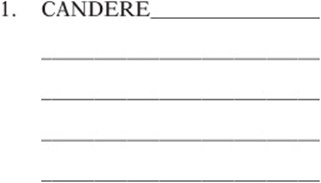
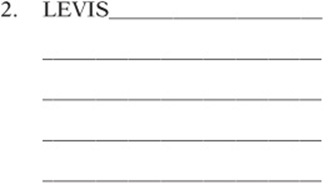
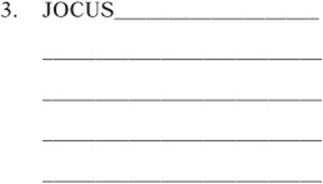
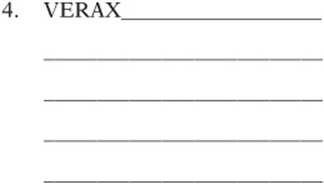
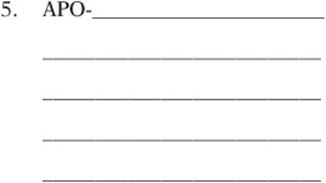
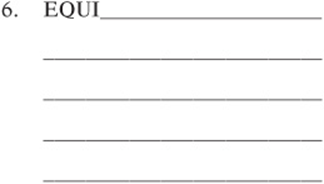
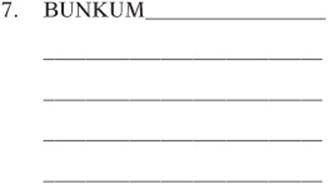
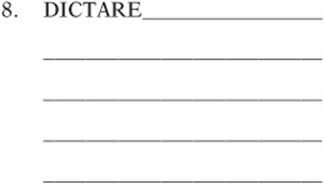
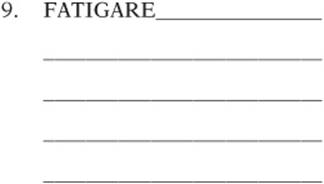
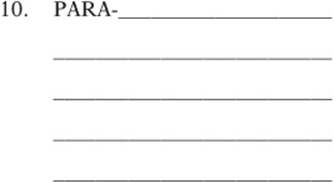
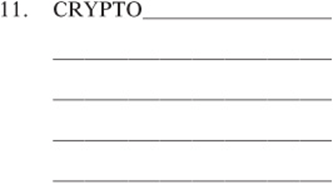
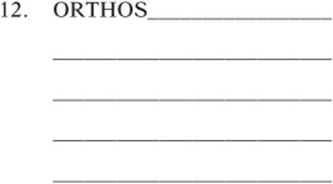
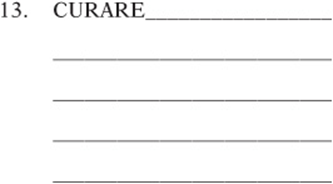
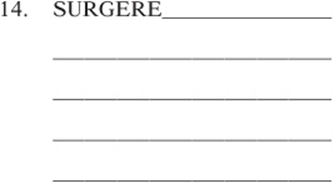
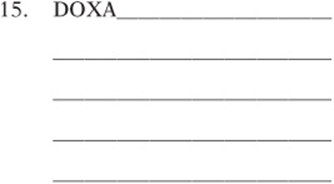
Vocabulary Unit 6 Exercise Set III
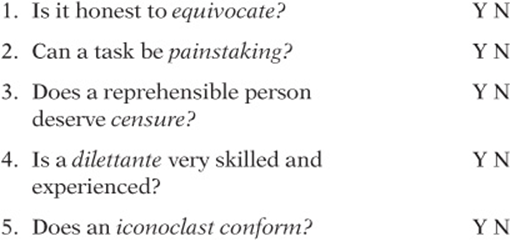
Write the word with the given meaning.
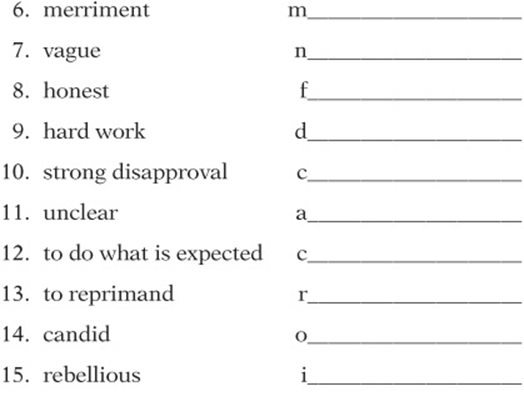
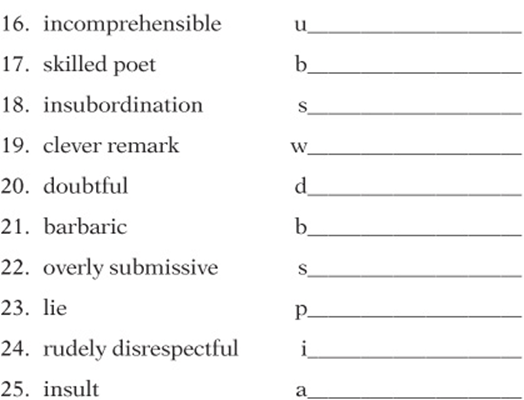
Write the correct form of the italicized word.
26. a person who is culpable
_____________________________________________
27. having the quality of heresy
_____________________________________________
28. the quality of being diligent
_____________________________________________
29. having the qualities of an iconoclast
_____________________________________________
30. the act of castigating
_____________________________________________
Write the word with the given root.
31. deserving blame (culpa)
_____________________________________________
32. deliberately ambiguous (vocare)
_____________________________________________
33. to punish (rate)
_____________________________________________
34. deep, insightful (pro-)
_____________________________________________
35. done in a joking way (jocus)
_____________________________________________
36. attentive to detail (metus)
_____________________________________________
37. truthfulness (verax)
_____________________________________________
38. untiring (fatiga)
_____________________________________________
39. honesty (candere)
_____________________________________________
40. overly proud (haut)
_____________________________________________
41. of doubtful authenticity (apo-)
_____________________________________________
Unit 6 Exercise Set I Answer Key
1. A Those used to his equivocation (failure to be straightforward) would be shocked by straightforwardness.
forthright = honest, straightforward
apocryphal = of doubtful authenticity
esoteric = difficult to understand
boorish = rude
indefatigable = untiring
2. C Heidi had been assiduous (hard-working) and exemplary (worthy of imitation). Sudden indolence (laziness) would be surprising and puzzling, to say the least.
insurrection = rebellion
satire = mocking work of literature or drama
enigma = puzzle
indictment = accusation
3. A One who lacks a sophisticated appreciation of art is a dilettante. One who oversees a museum is a curator.
curator = person in charge of a museum; dilettante = dabbler in the arts
lampoon = satirical work; dabbler = amateur
entrepreneur = businessman; amateur = novice
fanatic = passionate supporter; nihilist = one who denies moral absolutes
philanthropist = benefactor; ascetic = monk
4. A Something that lampoons (makes fun of) something is a satire, spoof, or
parody. parody = a spoof that makes fun of something
epic = a heroic poem
anthology = a collection of works
strategem = a deceitful scheme
bard = a poet
5. E The queen is not used to being treated with effrontery (rude boldness). This implies that the villager”s behavior is probably rude and that such behavior would bother the queen.
tenacious = intense; malapropism = incorrect use of a word
crass = rude; witticism = funny remark
jocular = joking; moratorium = rest, a break
downtrodden = made submissive by constant harsh treatment; insult = rude remark
insolent = rude; affront = insult
6. E The congresswoman is getting lambasted (harshly criticized) in the press. She feels that this criticism is unfair, so she must feel that she is not guilty.
seditious = insubordinate; digression = aside
guilty = blameworthy; candor = honesty
veracious = truthful; prevarication = lies
jocular = joking; castigation = punishment
culpable = guilty; censure = criticism
7. B Helga did not make eye contact with her guests, a decidedly unfriendly thing to do.
garrulous = friendly, talkative
glacial = cold, unfriendly
loquacious = talkative
rapacious = ravenous
industrious = hard-working
8. E The semicolon joins two clauses that support each other. Obsequious compliments are those that try to curry favor with others. He must be a flatterer.
belligerence = inclination to picking fights
eloquence = skill in speech
munificence = generosity
xenophobia = fear of foreigners
sycophancy = excessive flattery
9. C Tom”s ideas contrasted sharply with the conventional (typical) views held by the strongly orthodox (traditional) community. He must be a nonconformist who eschews tradition.
truculent = cruel
diligent = hard-working
iconoclastic = resistant to tradition
scrupulous = ethical, meticulous
candid = honest
10. B The fact that they are shocked implies that the funeral was not so sedate and somber. It must have been happier than they expected.
orthodoxy = strict adherence to dogma
mirth = merriment
irrelevance = lack of importance
decorum = appropriateness of behavior
Unit 6 Exercise Sets II and III Answer Key
Exercise Set II
1. CANDERE: to shine candid, candor, incandescent, candle
2. LEVIS: light in weight levity, relieve, elevate, elevator, levitate, alleviate, oblivion
3. JOCUS: joke jocular, jocund, joker, jocose, juggler, joke
4. VERAX: true verisimilitude, veracity, verify, very
5. APO-: away apocalypse, aphorism, apostate, apoplexy, apostle, apothecary, apocryphal, apology
6. EQUI: equal equinox, equivalent, equanimity, equipotential, equality, inequality, equitable, equator, equalize
7. BUNKUM: nonsense bunk, debunk
8. DICTARE: to declare dictate, indict, diction, dictum, dictionary
9. FATIGARE: tire indefatigable, fatigued
10. PARA-: beyond, beside paraphrase, parasite, paramedic, paranoia, parallel, paramount, paradigm
11. CRYPTO: secret cryptic, crypt, cryptogram, cryptography
12. ORTHOS: straight, strict orthography, orthodox, unorthodox, orthopedic, orthodontics, orthodoxy
13. CURARE: to take care of procure, curator, curate, pedicure, manicure
14. SURGERE: to rise resurrection, resurgent, insurgent, insurrection, surge
15. DOXA: opinion orthodox, paradox, heterodox
Exercise Set III
1. N
2. Y
3. Y
4. N
5. N
6. mirth
7. nebulous
8. forthright
9. diligence
10. censure
11. ambiguous
12. conform
13. rebuke or reprove
14. outspoken
15. insurgent
16. unfathomable
17. bard
18. sedition
19. witticism
20. dubious
21. boorish
22. servile
23. prevaricate
24. insolent
25. affront
26. culprit
27. heretical
28. diligence
29. iconoclastic
30. castigation
31. culpable
32. equivocal
33. berate
34. profound
35. jocular
36. meticulous
37. veracity
38. indefatigable
39. candor
40. haughty
41. apocryphal
Vocabulary Unit 7
Vocabulary Lesson 43: Earth, Moon, and Sky

![]() arid (adj) extremely dry (arere to be dry)
arid (adj) extremely dry (arere to be dry)
Some regions of Africa have become so arid that entire lakes have evaporated.
Synonyms: barren, parched Antonyms: fecund, fertile
![]() astral (adj) relating to the stars (astrum star)
astral (adj) relating to the stars (astrum star)
The supernova is perhaps the most dramatic of astral events.
Synonyms: celestial, cosmic
![]() nautical (adj) pertaining to sailing (naus ship)
nautical (adj) pertaining to sailing (naus ship)
The southern tip of Africa poses many nautical challenges to even the most adept and experienced sailor.
Synonyms: marine, maritime
![]() lunar (adj) relating to the moon (luna moon)
lunar (adj) relating to the moon (luna moon)
The lunar vehicle can traverse some of the rockiest and most forbidding terrain on the moon.
![]() fecund (adj) fertile; fruitful (fecundus fruitful)
fecund (adj) fertile; fruitful (fecundus fruitful)
Over the summer, our fecund vegetable garden provided us with an endless supply of wonderful salads.
Synonyms: prolific, abundant Antonyms: barren, infertile, sterile
![]() fallow (adj) unused; plowed but not cultivated
fallow (adj) unused; plowed but not cultivated
The fallow land would be replanted in two years, once all the nutrients had been restored.
Synonyms: dormant, inactive, uncultivated
![]() cosmic (adj) relating to the universe (kosmos Gr universe, order)
cosmic (adj) relating to the universe (kosmos Gr universe, order)
The enormous and unprecedented meteor shower was being hailed as the cosmic event of the century.
Synonyms: astral, celestial, astronomical
![]() celestial (adj) relating to the sky (celum sky, heaven)
celestial (adj) relating to the sky (celum sky, heaven)
Synonyms: heavenly, astral
![]() arable (adj) able to be cultivated (arare to plow)
arable (adj) able to be cultivated (arare to plow)
Synonyms: fertile, fruitful
![]() desiccated (adj) completely dried out
desiccated (adj) completely dried out
Synonyms: arid, parched
![]() quagmire (n) swampy land; difficult situation (quag bog)
quagmire (n) swampy land; difficult situation (quag bog)
Synonyms: marsh, swamp, bog
![]() bucolic (adj) characteristic of the countryside
bucolic (adj) characteristic of the countryside
Synonyms: rustic, sylvan, rural, pastoral
![]() cultivate (v) to nurture; to grow crops (cultivus tilled)
cultivate (v) to nurture; to grow crops (cultivus tilled)
Synonyms: farm, till, sow
Vocabulary Lesson 44: More or Less

![]() paucity (adj) lack; scarcity (paucus few, little)
paucity (adj) lack; scarcity (paucus few, little)
I love good food, so I”m frustrated by the paucity of good restaurants in town.
Synonyms: dearth, scantiness Antonyms: abundance, plenitude, copiousness
![]() surfeit (n) an excessive amount (sur- over + facere to do)
surfeit (n) an excessive amount (sur- over + facere to do)
The surfeit of food on the table for Thanksgiving dinner left us all with bulging stomachs.
Synonyms: glut, plethora, overabundance Antonyms: deficiency, dearth, paucity
![]() copious (adj) abundant (copia abundance)
copious (adj) abundant (copia abundance)
The copious mistakes in Robert”s final paper showed his lack of effort.
Synonyms: ample, bountiful Antonyms: scanty, sparse, deficient
![]() barren (adj) infertile
barren (adj) infertile
The barren land was so devoid of life that it was difficult to find even a weed.
Synonyms: sterile, desolate Antonyms: fecund, fertile
![]() capacious (adj) having lots of room (capax able to hold a lot)
capacious (adj) having lots of room (capax able to hold a lot)
The capacious auditorium had enough seats for all 5,000 students with room to spare.
Synonyms: spacious, voluminous Antonyms: exiguous, scanty
![]() scanty (adj) meager; barely enough
scanty (adj) meager; barely enough
The scanty portions the soldiers received left them hungry and weak.
Synonyms: inadequate, meager, deficient Antonyms: sufficient, adequate
![]() replete (adj) completely filled (re- again + plere to fill)
replete (adj) completely filled (re- again + plere to fill)
The old storage facility was replete with decrepit furniture that had far outlived its usefulness.
Synonyms: crammed, stuffed Antonyms: vacant, barren
![]() sparse (adj) thinly dispersed or scattered (sparsus scattered)
sparse (adj) thinly dispersed or scattered (sparsus scattered)
Synonyms: scant, scanty, paltry
![]() voluminous (adj) having great size (volumen roll of writing)
voluminous (adj) having great size (volumen roll of writing)
Synonyms: cavernous, capacious, plentiful
![]() desolate (adj) deserted (de- completely + solus alone)
desolate (adj) deserted (de- completely + solus alone)
Synonyms: uninhabited, barren
![]() diminutive (adj) tiny (de- completely + minuere to make small)
diminutive (adj) tiny (de- completely + minuere to make small)
Synonyms: undersized, miniature
![]() meager (adj) inadequate (macer thin)
meager (adj) inadequate (macer thin)
Synonyms: measly, paltry
![]() rarefy (v) to make less dense or less plentiful (rarus rare + facere to make)
rarefy (v) to make less dense or less plentiful (rarus rare + facere to make)
![]() rife (adj) plentiful
rife (adj) plentiful
Synonyms: abundant, rampant, widespread
Vocabulary Lesson 45: Tough Times

![]() tribulation (n) a cause of great trouble or suffering (tribulare oppress)
tribulation (n) a cause of great trouble or suffering (tribulare oppress)
Being a pop star is not as glamorous as it seems; it often involves many unforeseen tribulations.
Synonyms: adversity, travail, woe, anguish
![]() despondent (adj) lacking hope (de- without + sperare hope)
despondent (adj) lacking hope (de- without + sperare hope)
With their team trailing by ten runs in the ninth inning, the fans became despondent.
Synonyms: dejected, depressed, disheartened, desperate Antonyms: ecstatic, elated, euphoric
![]() doleful (adj) filled with grief (dolus grief + -ful full of)
doleful (adj) filled with grief (dolus grief + -ful full of)
The funeral for the child was a doleful affair; it is always so sad to see someone die at such a young age.
Synonyms: crestfallen, depressed, woeful Antonyms: ecstatic, elated, euphoric
![]() anemic (adj) feeble; characterized by oxygen deficiency in the blood (a- without + emia blood)
anemic (adj) feeble; characterized by oxygen deficiency in the blood (a- without + emia blood)
Our offense was so anemic that we didn”t hit the ball out of the infield the whole game.
Synonyms: pallid, weak, feeble Antonyms: robust, vigorous, hale
![]() malady (n) a disease (mal bad)
malady (n) a disease (mal bad)
The flu is a common malady that strikes millions of people each year.
Synonyms: affliction, ailment, disorder
![]() anguish (n) extreme suffering
anguish (n) extreme suffering
The anguish Walter felt when his dog died was unbearable; he could hardly stop crying for a week.
Synonyms: agony, grief, misery Antonyms: ecstasy, elation, euphoria
![]() dirge (n) a funeral song
dirge (n) a funeral song
You may think all dirges are depressing until you”ve been to a New Orleans jazz funeral.
Synonyms: requiem, elegy
![]() blight (n) a diseased condition
blight (n) a diseased condition
Synonyms: curse, affliction
![]() affliction (n) a disorder causing suffering (ad- to fligere to strike)
affliction (n) a disorder causing suffering (ad- to fligere to strike)
Synonyms: adversity, hardship
![]() elegy (n) a poem or song relating to death (legos Gr poem of lament)
elegy (n) a poem or song relating to death (legos Gr poem of lament)
Synonyms: dirge, requiem
![]() epitaph (n) an inscription found on a gravestone (epi- Gr over + taphos tomb)
epitaph (n) an inscription found on a gravestone (epi- Gr over + taphos tomb)
![]() doldrums (n) the blues; persistent unhappiness (dolus grief)
doldrums (n) the blues; persistent unhappiness (dolus grief)
Synonyms: depression, melancholy
![]() adversity (n) hardship
adversity (n) hardship
He fought back from adversity to win the title.
Synonym: affliction
Vocabulary Lesson 46: Good Learnin”

![]() etymology (n) the study of the origin of words (etymon- Gr true sense + logos word)
etymology (n) the study of the origin of words (etymon- Gr true sense + logos word)
A good understanding of etymology can help you succeed on the SAT I.
![]() archaeology (n) the study of past cultures (arkhaios Gr ancient + logia study)
archaeology (n) the study of past cultures (arkhaios Gr ancient + logia study)
There are many fascinating archaeological sites right in the center of Athens.
![]() anthropology (n) the study of human cultures (anthros- humankind + logia study)
anthropology (n) the study of human cultures (anthros- humankind + logia study)
Anthropologists are fascinated by the similarities between tribal rituals and modern social conventions.
![]() ethics (n) the study of and philosophy of moral choice (ethos- character)
ethics (n) the study of and philosophy of moral choice (ethos- character)
The more deeply one studies ethics, the less one is able to think in terms of moral absolutes.
![]() semantics (n) the study of the meanings of words and symbols (sema- sign)
semantics (n) the study of the meanings of words and symbols (sema- sign)
It”s amazing that the noun pedestrian and the adjective pedestrian can be so different semantically.
![]() theology (n) the study of religion (theos- god + logia study)
theology (n) the study of religion (theos- god + logia study)
While in Catholic school, we had many theological discussions about the role of God in daily life.
![]() pathology (n) the study of disease (pathos suffering + logia study)
pathology (n) the study of disease (pathos suffering + logia study)
The tissue sample was sent to the pathology lab to determine if there was any disease in the liver.
![]() sociology (n) the study of human social behavior and social institutions (socius- fellow + logia study)
sociology (n) the study of human social behavior and social institutions (socius- fellow + logia study)
I was amazed to learn in sociology class that mandatory schooling until age sixteen is a fairly recent practice.
![]() entomology (n) the study of insects (entomon- insect + logia study)
entomology (n) the study of insects (entomon- insect + logia study)
Anna spends so much time burrowing in the yard that she may know more about bugs than most entomologists.
![]() genealogy (n) the study of ancestry (genea descent + logia study)
genealogy (n) the study of ancestry (genea descent + logia study)
Sarah was so fascinated by genealogy that she compiled a three-volume guide to her family ancestry.
![]() demographics (n) the study of statistics relating to human populations (demos- people + graphein to write)
demographics (n) the study of statistics relating to human populations (demos- people + graphein to write)
The demographics reveal that Democratic candidates typically perform better in urban areas than in rural areas.
![]() oncology (n) the study of tumors (onco- tumor + logia study)
oncology (n) the study of tumors (onco- tumor + logia study)
When my doctor discovered a tumor near my kidney, he referred me to the best oncologist on the staff.
![]() paleontology (n) the study of fossils and ancient life (palai long ago + logia study)
paleontology (n) the study of fossils and ancient life (palai long ago + logia study)
I like to dig in my backyard and pretend I”m a paleontologist making an important fossil discovery.
![]() neurology (n) the study of the human brain and nervous system (neuron Gr nerve)
neurology (n) the study of the human brain and nervous system (neuron Gr nerve)
I love studying the brain, but I don”t want to cut it up; I think I prefer neurology to neurosurgery.
Vocabulary Lesson 47: All Alone

![]() hermit (n) one who prefers to live alone (ermita Gr a person of solitude)
hermit (n) one who prefers to live alone (ermita Gr a person of solitude)
The hermit lived alone in a shack in the middle of the woods, more than ten miles from the nearest road.
Synonyms: recluse, loner, eremite Antonyms: socialite, extrovert
![]() ostracize (v) to exclude from a group
ostracize (v) to exclude from a group
Her comments to the others were so self-centered and cruel that she was ostracized for months.
Synonyms: exile, banish Antonyms: welcome, accept
![]() exile (n) a banishment (ex- away)
exile (n) a banishment (ex- away)
After the dictator was overthrown, he lived a life of exile far away from his native country.
Synonyms: banishment, ostracism, deportation, expulsion Antonyms: inclusion, welcome
![]() expel (v) to force to leave (ex- away + pellere to push)
expel (v) to force to leave (ex- away + pellere to push)
The student who slashed the bus tires was expelled and won”t be seen back here again.
Synonyms: discharge, evict Antonyms: invite, admit
![]() recluse (n) one who likes to live alone (re- away + claudere to close)
recluse (n) one who likes to live alone (re- away + claudere to close)
In To Kill a Mockingbird, the recluse Boo Radley is endlessly fascinating to Scout.
Synonyms: hermit, loner
![]() isolate (v) to place something apart from everything else (insula island)
isolate (v) to place something apart from everything else (insula island)
The patient with tuberculosis was isolated from the other patients so he could not infect them.
Synonyms: detach, segregate Antonyms: include, embrace
![]() solitude (n) isolation; the quality of being alone (solus alone)
solitude (n) isolation; the quality of being alone (solus alone)
Before the two cosmonauts joined him, the lone astronaut on the space station had spent five months in solitude.
Synonyms: seclusion, solitariness, detachment Antonyms: camaraderie, companionship
![]() banish (v) to force to leave an area
banish (v) to force to leave an area
Synonyms: exile, ostracize, evict
![]() outcast (n) an individual who has been excluded from a group
outcast (n) an individual who has been excluded from a group
Synonyms: castaway, pariah
![]() seclusion (n) privacy (se- apart claudere to close)
seclusion (n) privacy (se- apart claudere to close)
Synonyms: isolation, solitude
![]() pariah (n) an individual who has been excluded from a group
pariah (n) an individual who has been excluded from a group
Synonyms: outcast, exile
![]() relegate (v) to banish, to demote in rank (re- back legare to send)
relegate (v) to banish, to demote in rank (re- back legare to send)
Synonyms: ostracize, exile
![]() quarantine (n) a period of isolation for someone infected with a contagion (quaranta forty [days])
quarantine (n) a period of isolation for someone infected with a contagion (quaranta forty [days])
Vocabulary Lesson 48: Go Forth

![]() disseminate (v) to spread information (dis- away seminare to sow)
disseminate (v) to spread information (dis- away seminare to sow)
The members of the band disseminated flyers that advertised their debut concert this coming weekend.
Synonyms: circulate, publicize, distribute Antonym: suppress
![]() diverge (v) to go apart (dis- away vergere to turn)
diverge (v) to go apart (dis- away vergere to turn)
After traveling together for nearly 100 miles, the two cars finally diverged.
Synonyms: divide, branch Antonyms: converge, merge
![]() proliferate (v) to grow rapidly; to produce offspring at a rapid pace (proles offspring)
proliferate (v) to grow rapidly; to produce offspring at a rapid pace (proles offspring)
The bacteria proliferated at an alarming rate, multiplying tenfold in just 30 minutes.
Synonyms: expand, multiply Antonyms: wither, shrink
![]() amass (v) to accumulate; to gather together
amass (v) to accumulate; to gather together
Over the years, Rick has amassed quite a collection of CDs, accumulating over 1,000 of them.
Synonyms: collect, gather, hoard Antonyms: distribute, disperse
![]() distend (v) to swell; to increase in size (dis- apart tendere to stretch)
distend (v) to swell; to increase in size (dis- apart tendere to stretch)
Malnutrition can cause the abdominal cavity to distend and produce a bloated look.
Synonyms: expand, dilate Antonym: constrict
![]() propagate (v) to cause to multiply; to publicize; to travel through a medium (pro- forth)
propagate (v) to cause to multiply; to publicize; to travel through a medium (pro- forth)
Plants of all sizes and shapes propagate by forming seeds, which develop into new seedlings.
Synonyms: procreate, breed
![]() inundate (v) to flood (in- into undare to flow)
inundate (v) to flood (in- into undare to flow)
After days without work, the lawyer was astonished to suddenly find himself inundated with paperwork.
Synonyms: engulf, overwhelm, swamp, deluge
![]() diffuse (v) to spread out, as a gas (dis- apart fundere to pour)
diffuse (v) to spread out, as a gas (dis- apart fundere to pour)
Synonyms: circulate, disseminate
![]() germinate (v) to sprout; to grow (germen sprout)
germinate (v) to sprout; to grow (germen sprout)
Synonyms: bud, burgeon, develop
![]() disperse (v) to spread apart (dis- apart spargere to scatter)
disperse (v) to spread apart (dis- apart spargere to scatter)
Synonyms: diffuse, disseminate
![]() rampant (adj) growing out of control (ramper to climb)
rampant (adj) growing out of control (ramper to climb)
Synonyms: rife, predominant, prevalent
![]() dissipate (v) to scatter (dis- apart supare to scatter)
dissipate (v) to scatter (dis- apart supare to scatter)
Synonyms: dispel, disperse
![]() saturate (v) to fill completely, as with a liquid or solute (satur full)
saturate (v) to fill completely, as with a liquid or solute (satur full)
Synonyms: soak, imbue
Vocabulary Lesson 49: Even More

![]() annex (v) to attach; to acquire land to expand an existing country (ad- to nectare to attach)
annex (v) to attach; to acquire land to expand an existing country (ad- to nectare to attach)
When Hitler annexed Poland, the dictator”s imperialist designs should have been clear.
Synonyms: acquire, appropriate, append Antonyms: disengage, dissociate
![]() addendum (n) something added; a supplement to a book (ad- onto)
addendum (n) something added; a supplement to a book (ad- onto)
After he completed the story, the author wrote an addendum explaining why he finished it the way he did.
Synonyms: appendix, supplement
![]() postscript (n) a message added after the completion of a letter (P.S.) (post- after scriber to write)
postscript (n) a message added after the completion of a letter (P.S.) (post- after scriber to write)
After my wife signed the postcard, she remembered something else she wanted to say and wrote a postscript.
![]() epilogue (n) an extra chapter added onto the end of a novel (epi- Gr in addition logia words)
epilogue (n) an extra chapter added onto the end of a novel (epi- Gr in addition logia words)
In the epilogue, the author described what the characters of the novel did 15 years after the main narrative.
Synonyms: afterword, postlude Antonyms: prelude, forward, preface, prologue
![]() append (v) to affix something; to add on (ad- to pendere to hang)
append (v) to affix something; to add on (ad- to pendere to hang)
The publishers appended an index to the end of the text to help the reader find things more easily.
Synonym: annex
![]() adjunct (adj) added in a subordinate capacity (ad- to jungere to attach)
adjunct (adj) added in a subordinate capacity (ad- to jungere to attach)
Although principally a biologist, Dr. Carter was also an adjunct professor in the zoology department.
Synonyms: subordinate, subsidiary
![]() augment (v) to add onto; to make greater (augere to increase)
augment (v) to add onto; to make greater (augere to increase)
One important way to augment your SAT score is to study vocabulary.
Synonyms: enlarge, enhance, amplify, boost, strengthen Antonym: diminish
![]() cession (n) the act of surrendering or yielding (cessare to yield)
cession (n) the act of surrendering or yielding (cessare to yield)
Synonyms: capitulation, relinquishment
![]() affix (v) to attach (ad- to figere to fasten)
affix (v) to attach (ad- to figere to fasten)
Synonyms: annex, append
![]() appropriate (v) to take another”s work or possessions as one”s own (ad- to proprius one”s own)
appropriate (v) to take another”s work or possessions as one”s own (ad- to proprius one”s own)
![]() encore (n) an extra performance at the end of a show (encore Fr again)
encore (n) an extra performance at the end of a show (encore Fr again)
Synonym: curtain call
![]() appendix (n) supplementary material at the end of a text (ad- to pendere to hang)
appendix (n) supplementary material at the end of a text (ad- to pendere to hang)
Synonym: addendum
![]() supplement (v) to add something to complete or strengthen a whole (supplere to complete)
supplement (v) to add something to complete or strengthen a whole (supplere to complete)
![]() circumscribed (adj) having distinct boundaries or limits (circum- around + scribere to write)
circumscribed (adj) having distinct boundaries or limits (circum- around + scribere to write)
Vocabulary Unit 7 Exercise Set I
Time—8 minutes
For each question, select the best answer among the choices given. Note any vocabulary words to review on the Hit List below.
1. While most people would probably be ------ in her position, Stacey somehow managed to remain upbeat and was convinced that things would get better.
(A) elated
(B) diminutive
(C) defamed
(D) anemic
(E) despondent
2. Seemingly without scruples, the professor ------ the work of his graduate students and published papers on topics he himself had not even researched.
(A) isolated
(B) relegated
(C) appropriated
(D) annexed
(E) eulogized
3. It is shocking that someone who was once so ------ by the public can so quickly become ------ after just one social blunder.
(A) belittled . . a malady
(B) disparaged . . a pariah
(C) saturated . . an exile
(D) lionized . . an outcast
(E) ostracized . . a recluse
4. The dearth of ------ land in this region of the country makes it very difficult to maintain plentiful harvests.
(A) desiccated
(B) arable
(C) fallow
(D) celestial
(E) arid
5. The entrance of the cavern was so ------ that the indigenous tribes took advantage of its ------ shelter to keep entire clans dry during the heavy rain season.
(A) voluminous . . capacious
(B) enormous . . scanty
(C) cavernous . . meager
(D) fecund . . spacious
(E) astral . . copious
6. Although many consider “Deadman”s Run” to be the most ------ ski trail on the mountain, Tommy was able to maneuver through the course without ------ after having just learned to ski.
(A) simple . . trouble
(B) difficult . . speed
(C) arduous . . exertion
(D) pedestrian . . concern
(E) pragmatic . . practical
7. Zach”s knowledge of ------ helped him to identify and avoid the rare and poisonous African spitting beetle.
(A) entomology
(B) etymology
(C) ethics
(D) pathology
(E) sociology
8. The spy was immediately ------ back to his country after he was caught attempting to pilfer information from the CIA database.
(A) quarantined
(B) secluded
(C) disseminated
(D) distended
(E) deported
9. It is hard to imagine that this barren desert with little to no plant life was once ------ with farms and wildlife.
(A) doleful
(B) replete
(C) germinated
(D) rarefied
(E) afflicted
10. After finishing a good novel, I”m always eager to see if an ------ follows to tell me what happened to the main characters after the conclusion of the narrative.
(A) elegy
(B) epitaph
(C) epilogue
(D) encore
(E) eulogy

Vocabulary Unit 7 Exercise Set II
Write the meaning next to each root, and then write as many words as you can that contain the root.
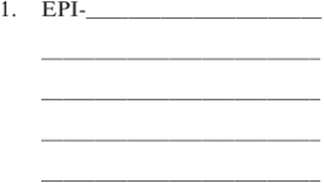
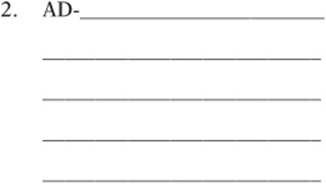
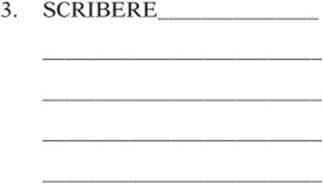
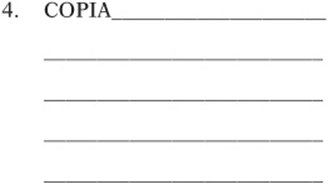
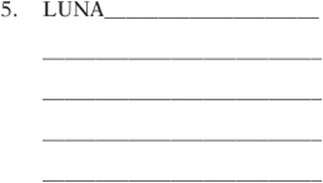
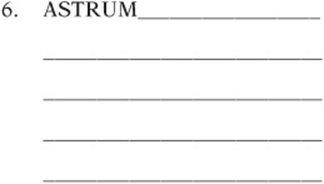
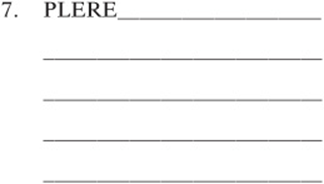
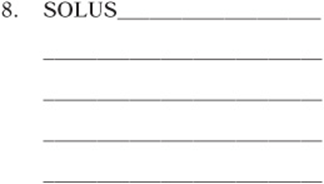
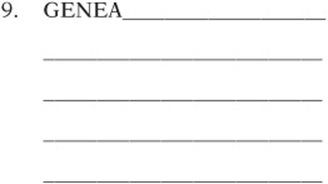
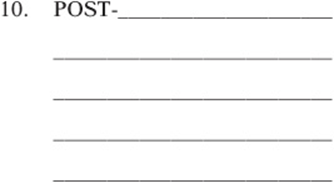
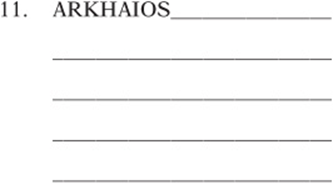
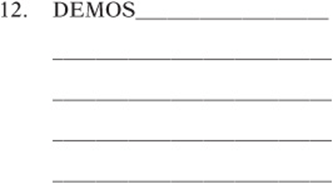
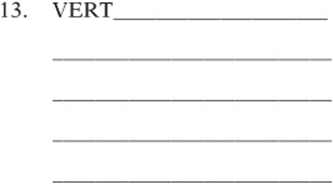
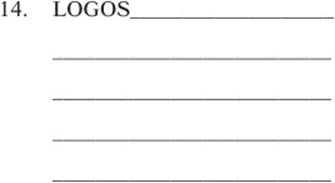
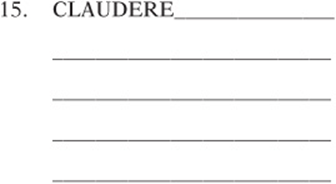
Vocabulary Unit 7 Exercise Set III
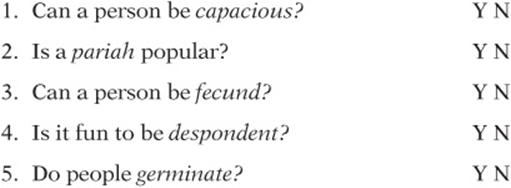
Write the word with the given meaning.
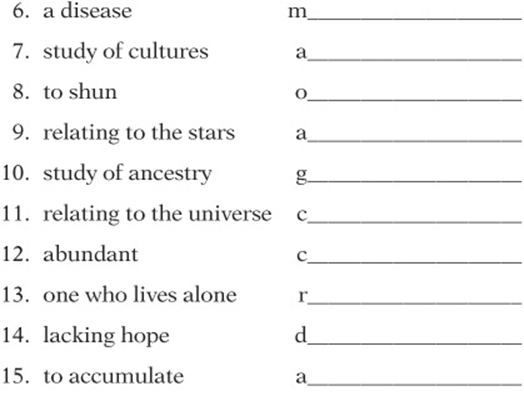
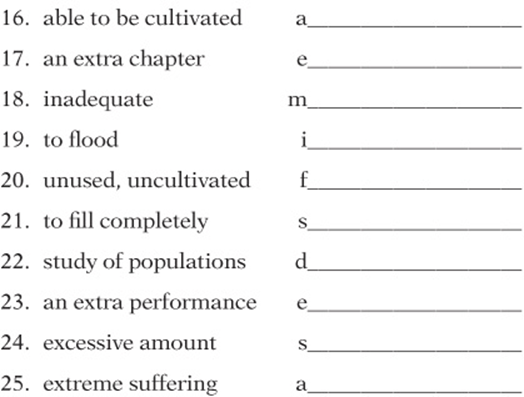
Write the correct form of the italicized word.
26. having anemia
_____________________________________________
27. one who studies sociology
_____________________________________________
28. the act of ceding
_____________________________________________
29. in solitude
_____________________________________________
30. the act of proliferating
_____________________________________________
Write the word with the given root.
31. relating to the sky (celum)
_____________________________________________
32. to swell (dis-)
_____________________________________________
33. a poem (legos)
_____________________________________________
34. an inscription (taphos)
_____________________________________________
35. study of insects (entomon)
_____________________________________________
36. a scarcity (paucus)
_____________________________________________
37. tiny (minuere)
_____________________________________________
38. banishment (ex-)
_____________________________________________
39. high praise (eu)
_____________________________________________
40. to multiply (pro-)
_____________________________________________
41. to make greater (aug)
_____________________________________________
Unit 7 Exercise Set I Answer Key
1. E While indicates a contrast. If she is upbeat and optimistic, it must be that most people would be the opposite: depressed.
elated = extremely happy
diminutive = tiny
defamed = slandered
anemic = weak
despondent = lacking hope
2. C The professor lacks scruples (moral standards), so he must have done something bad to the work of his students. If he is publishing papers on topics that he has not researched, he is probably stealing the work.
isolated = secluded
relegated = banished
appropriated = taken as his own
annexed = added on to
eulogized = praised
3. D The fact that it is shocking implies that the two words should contrast with each other.
belittle = to put down; malady = illness
disparage = to put down; pariah = outcast
saturate = to fill completely; exile = outcast
lionize = to worship; outcast = someone excluded
ostracize = to exclude; recluse = loner
4. B If it is difficult to maintain plentiful harvests, it must be because there is too little usable land.
desiccated = dry
arable = fertile
fallow = unused
celestial = relating to the sky
arid = dry
5. A An entrance that can accommodate entire clans must be pretty large.
voluminous = large; capacious = having lots of room
enormous = huge; scanty = inadequate
cavernous = large; meager = inadequate
fecund = fertile; spacious = full of room
astral = pertaining to stars; copious = abundant
6. C Although indicates contrast. Although many think it”s hard, Tommy must not have had difficulty with it.
arduous = difficult, strenuous; exertion = effort, strain
pedestrian = ordinary, mundane
pragmatic = practical, concerned with results
7. A Zach had knowledge of insects that allowed him to identify the creature. Entomology is the study of insects.
entomology = study of insects
etymology = study of the origin of words
ethics = study of moral choices
pathology = study of disease
sociology = study of social institutions
8. E If a country catches a spy pilfering (stealing) information, they will send the spy back to his country of origin.
quarantined = isolated
secluded = left alone
disseminated = spread out
distended = swollen
deported = banished
9. B If the desert is now barren (infertile), it would be hard to imagine it filled with farms and wildlife.
doleful = filled with grief
replete = filled
germinated = sprouted
rarefied = thinned out
afflicted = suffering
10. C The section of a novel that follows the main story is called an epilogue.
elegy = song or poem about death
epitaph = inscription found on a tombstone
epilogue = extra chapter added at end of novel
encore = an extra performance at the end of a show
eulogy = high praise, speech given at funeral
Unit 7 Exercise Sets II and III Answer Key
Exercise Set II
1. EPI-: over ephemeral, epitaph, epicenter, epidemic, epidermis, epilepsy, epitome
2. AD-: to, towards add, annex, adduct, adjure, adhere
3. SCRIBERE: to write inscribe, circumscribe, conscription, description, inscription, subscription
4. COPIA: abundance cornucopia, copious, copy
5. LUNA: moon lunacy, lunar, lunatic, lunate
6. ASTRUM: star astral, astronomy, astrology, disaster, astronaut
7. PLERE: to fill accomplish, complement, deplete, manipulate, replete, supplement
8. SOLUS: alone sole, soliloquy, solitaire, solitary, solitude, solo
9. GENEA: descent generation, genealogy, congenital
10. POST-: after posterior, posterity, posthumous, postpone, postscript
11. ARKHAIOS: ancient archaic, archaeology, archives
12. DEMOS: people demographics, democracy, epidemic, pandemic
13. VERT: to turn diverge, divert, revert, pervert, convert
14. LOGOS: study of psychology, anthropology, oncology, geology
15. CLAUDERE: to close claustrophobia, conclude, exclude, recluse, seclude
Exercise Set III
1. N
2. N
3. Y
4. N
5. N
6. malady
7. anthropology
8. ostracize
9. astral
10. genealogy
11. cosmic
12. copious
13. recluse
14. despondent
15. amass
16. arable
17. epilogue
18. meager
19. inundate
20. fallow
21. saturate
22. demographics
23. encore
24. surfeit
25. anguish
26. anemic
27. sociologist
28. cession
29. solitary
30. proliferation
31. celestial
32. distend
33. elegy
34. epitaph
35. entomology
36. paucity
37. diminutive
38. exile
39. eulogy
40. propagate
41. augment